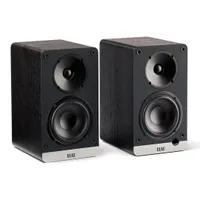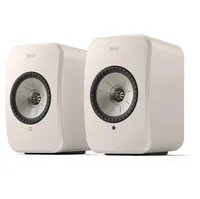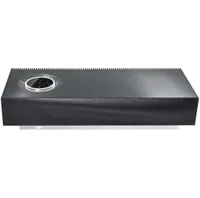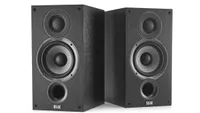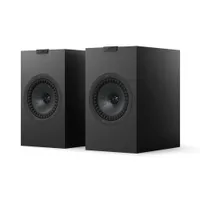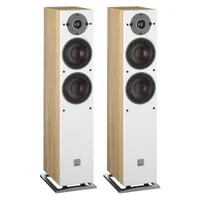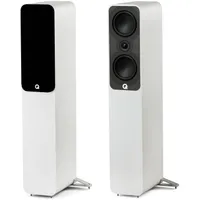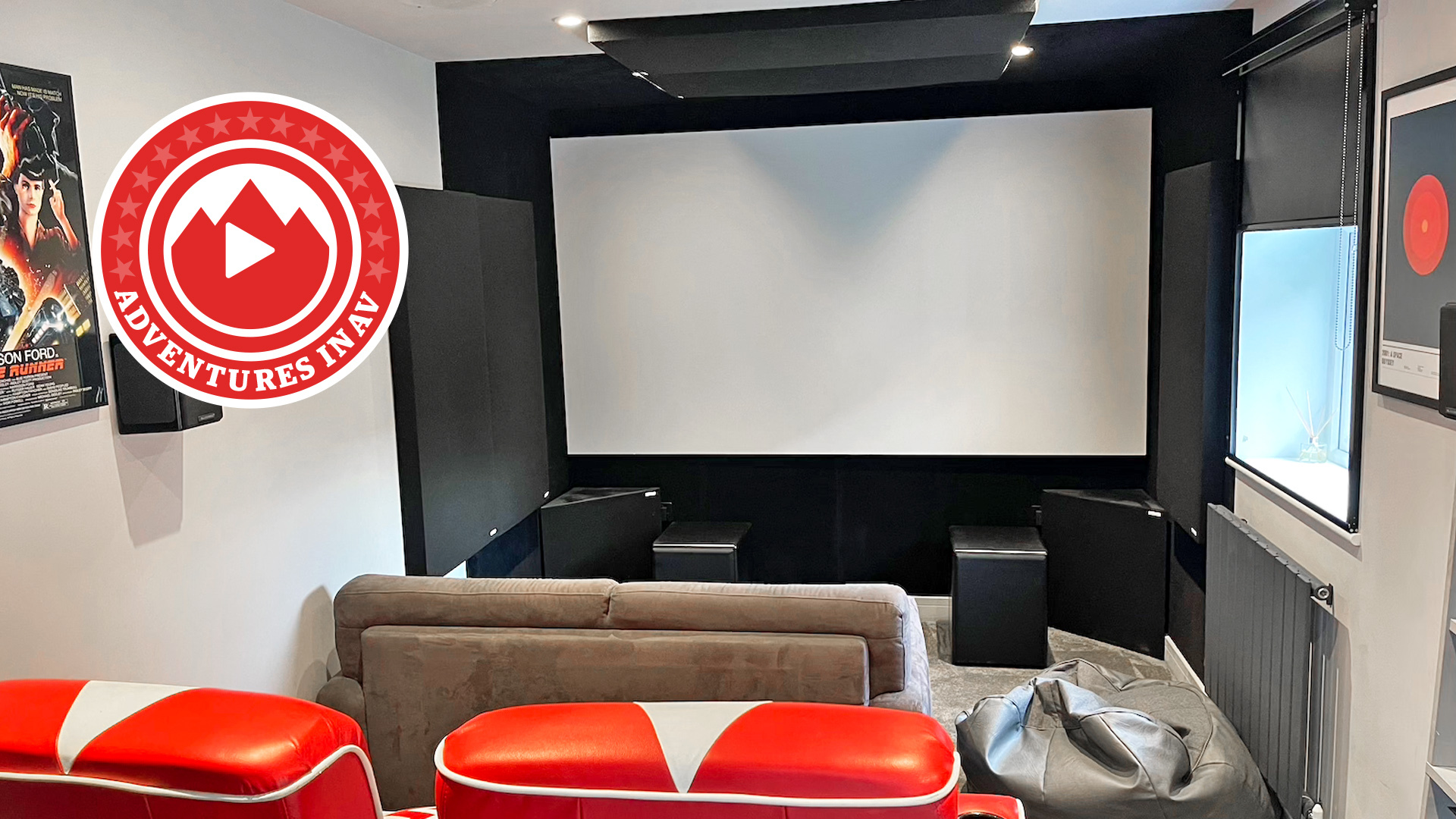Best turntable speakers 2026: top options for your record player
Active, budget and wireless speakers to pair with your vinyl system
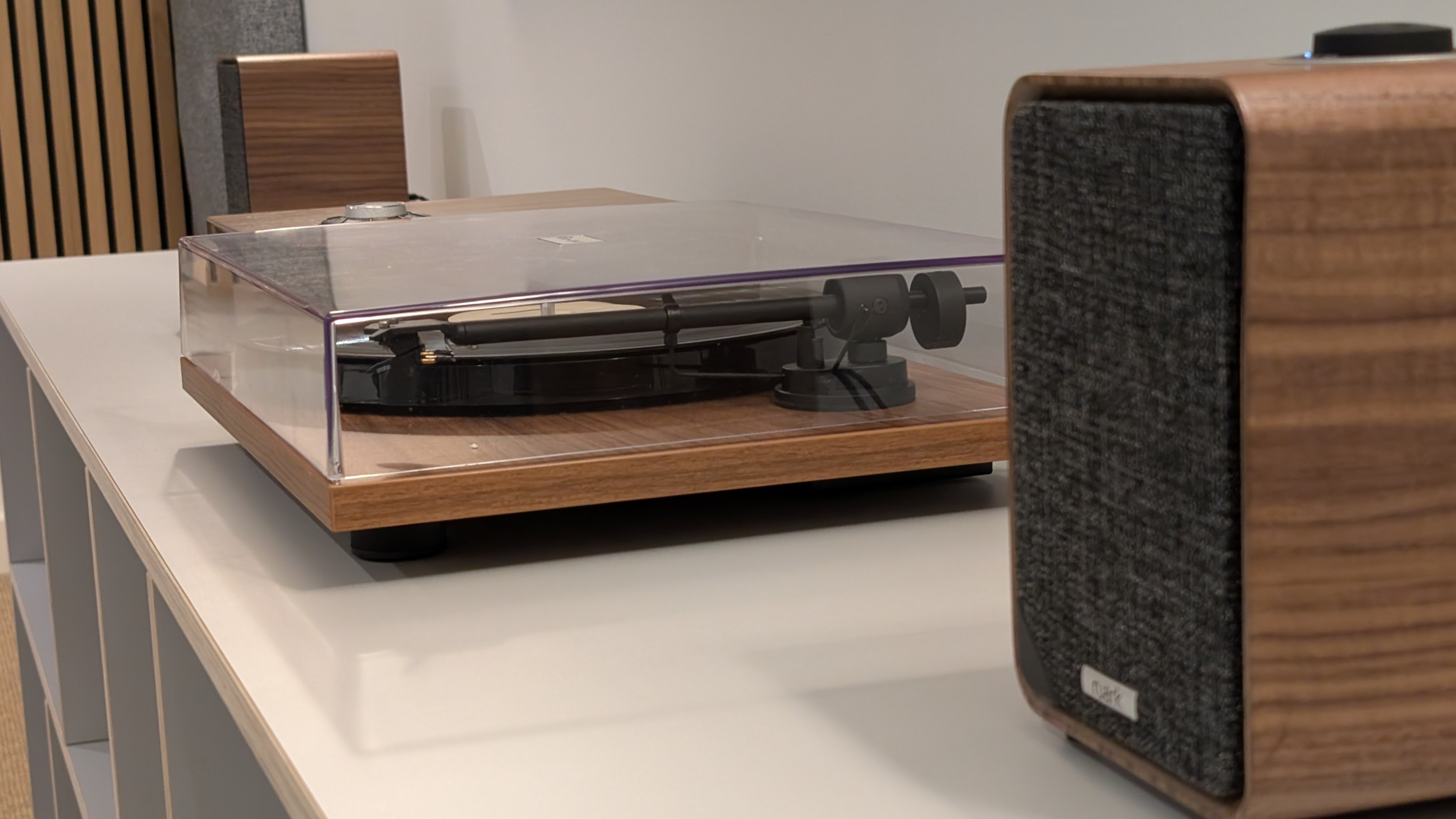
The latest hi-fi, home cinema and tech news, reviews, buying advice and deals, direct to your inbox.
You are now subscribed
Your newsletter sign-up was successful
Looking to buy a new set of speakers to complement your turntable, but not sure which to get? You’re not alone.
While it may look simple enough, there are all manner of technical and physical factors to consider when picking a pair of new turntable speakers.
Does your turntable have a phono stage? If not, you’ll need one. Do you have a separate stereo amplifier or a system with amplification built in? If not, you will need powered speakers.
Those elements aside, you need to make sure the parts you pick are a good sonic match and will comfortably fit into your listening space.
All in all, there’s a lot of complexity to deal with. Which is why we’re on hand, constantly updating this guide with all the latest speakers we have tested and recommend, for every type of vinyl setup.
Every pair of speakers on this list has been rigorously tested by the team of experts at What Hi-Fi? in our dedicated, bespoke listening rooms with the best turntables, ensuring you can trust our buying advice to the letter. You can read more about how to choose the right turntable speakers or scroll straight down to see our recommendations to inspire you.

I've been reviewing turntables, speakers and a variety of hi-fi products at What Hi-Fi? for over a decade, and have my own modest turntable set up at home. As part of my ongoing vinyl obsession, I've explored the various combinations of a turntable system – from full hi-fi separates to active speakers and even a Bluetooth set up. Modern turntable systems can take many shapes and forms, but the principles remain the same: good build quality and great sonic performance for the price. In this list, I've picked a variety of speaker suggestions that will work with most types of turntables on the market today, in various combinations and across all budgets.
Best desktop speakers
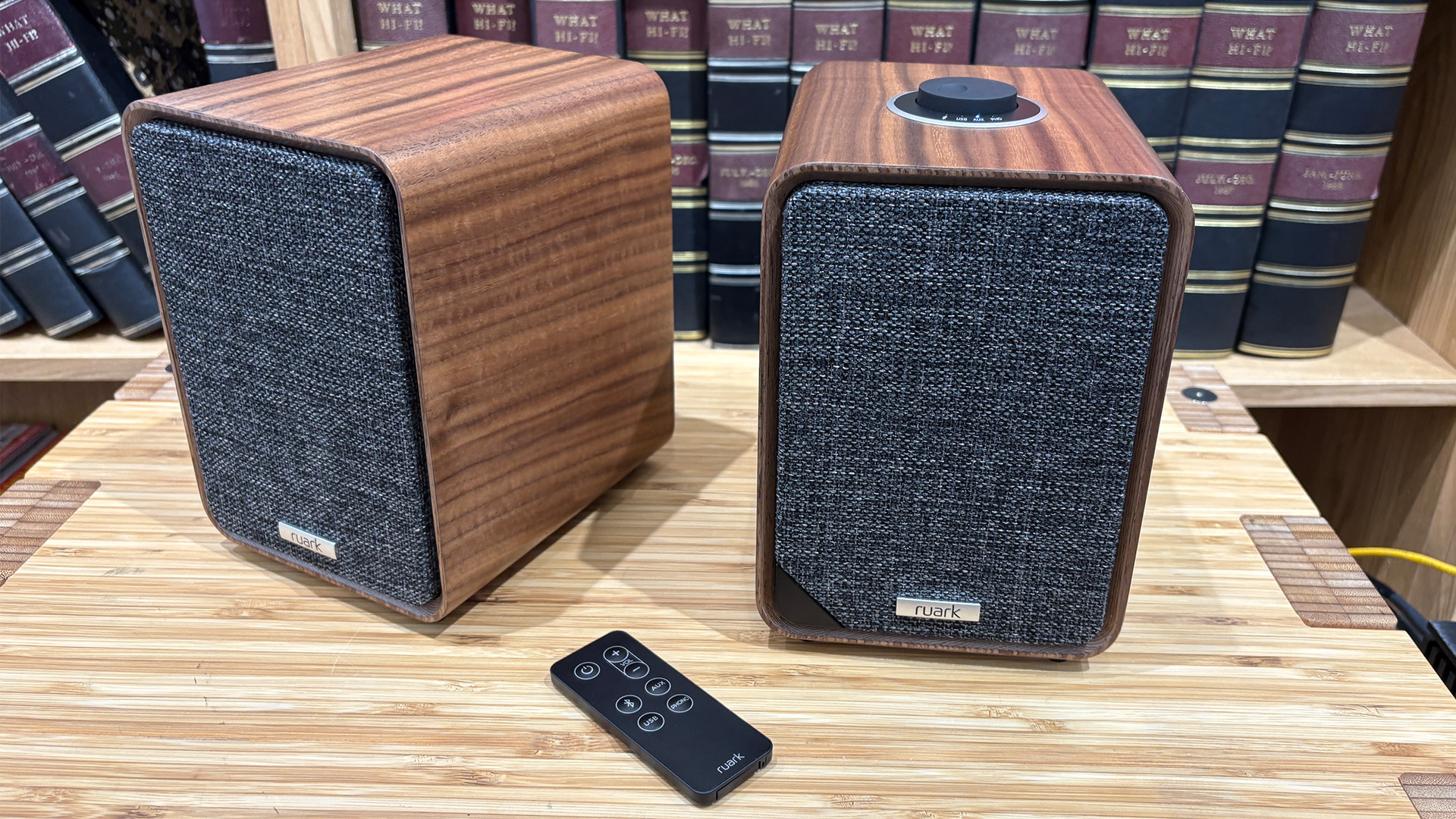
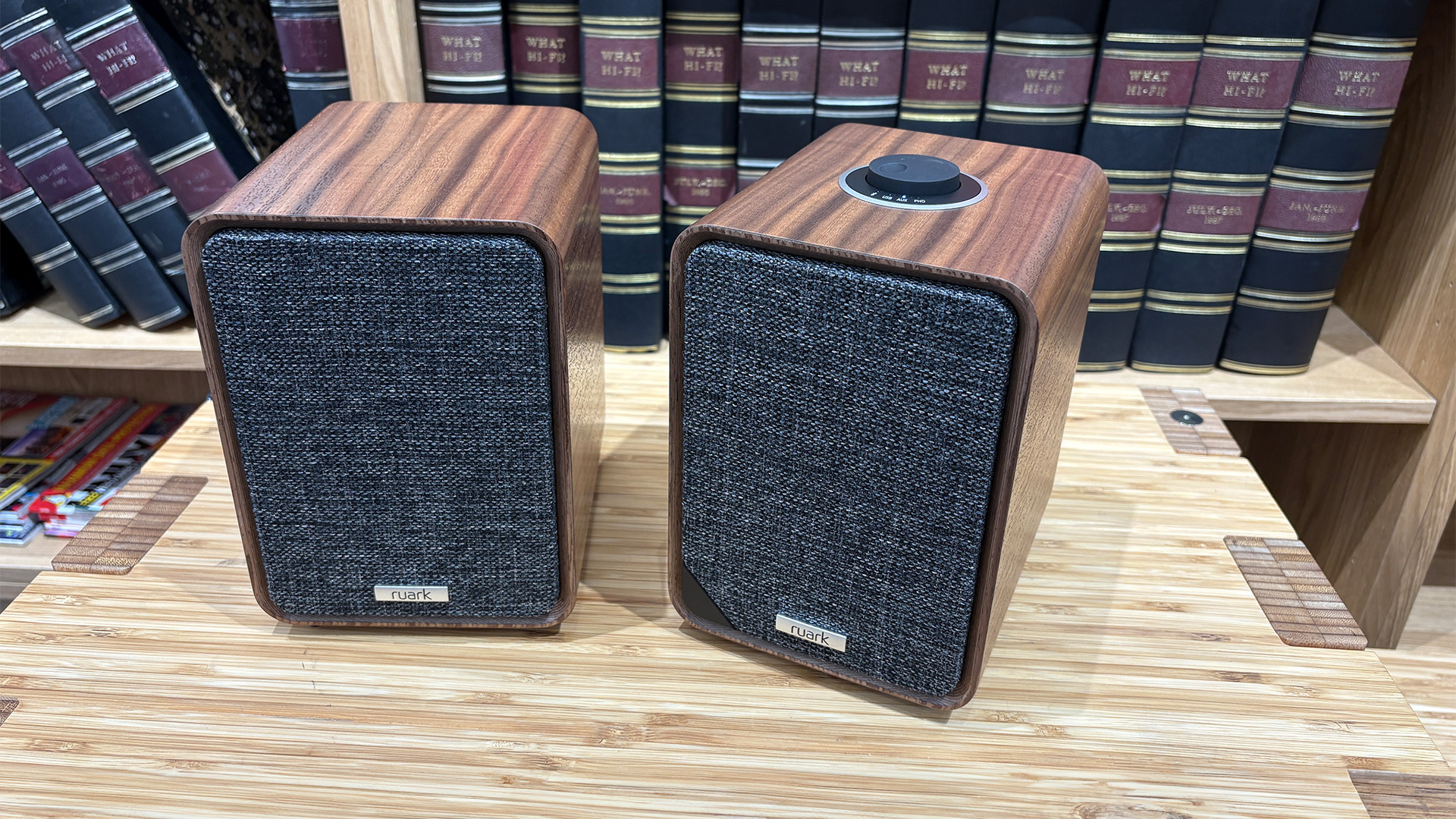
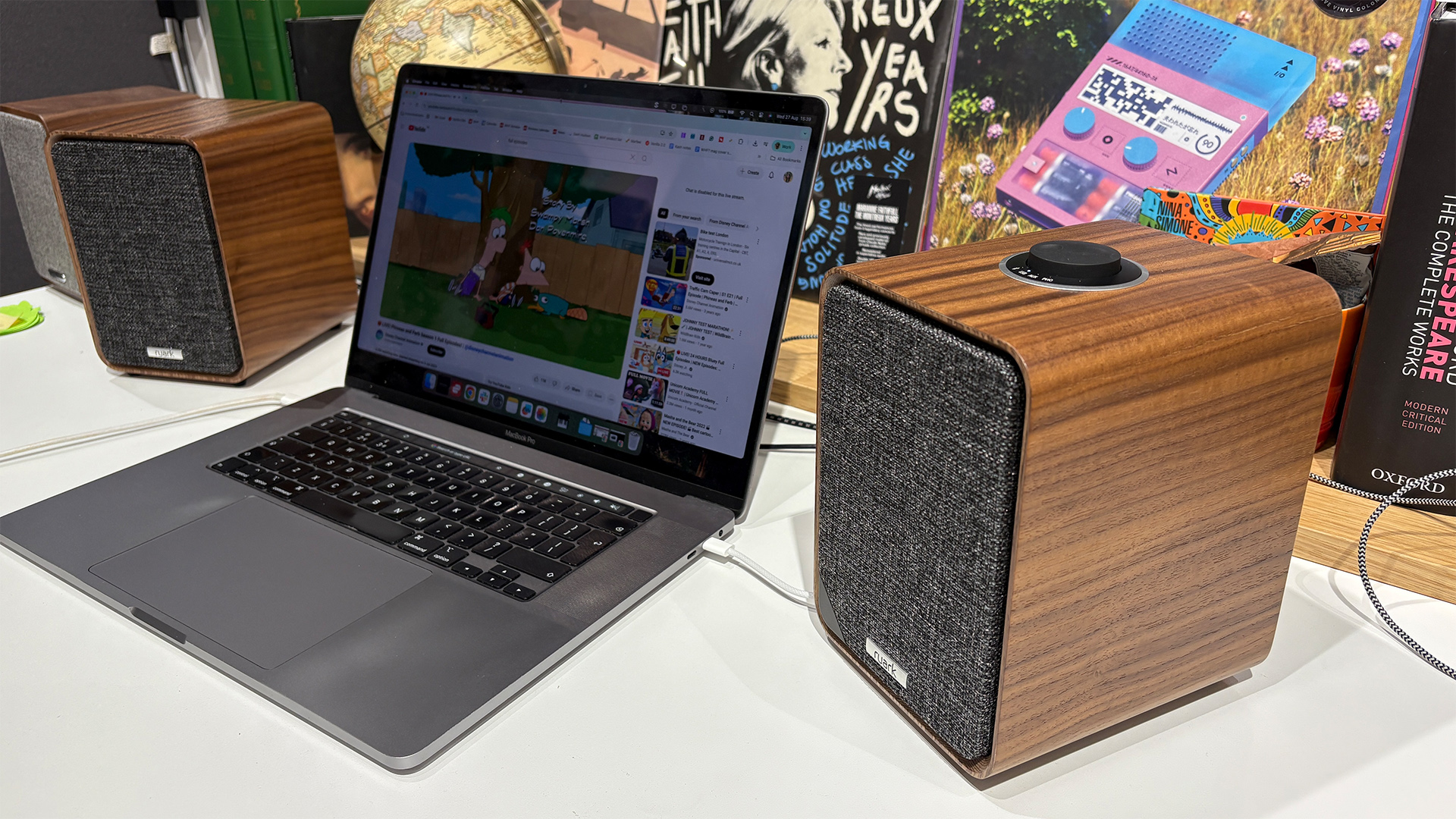
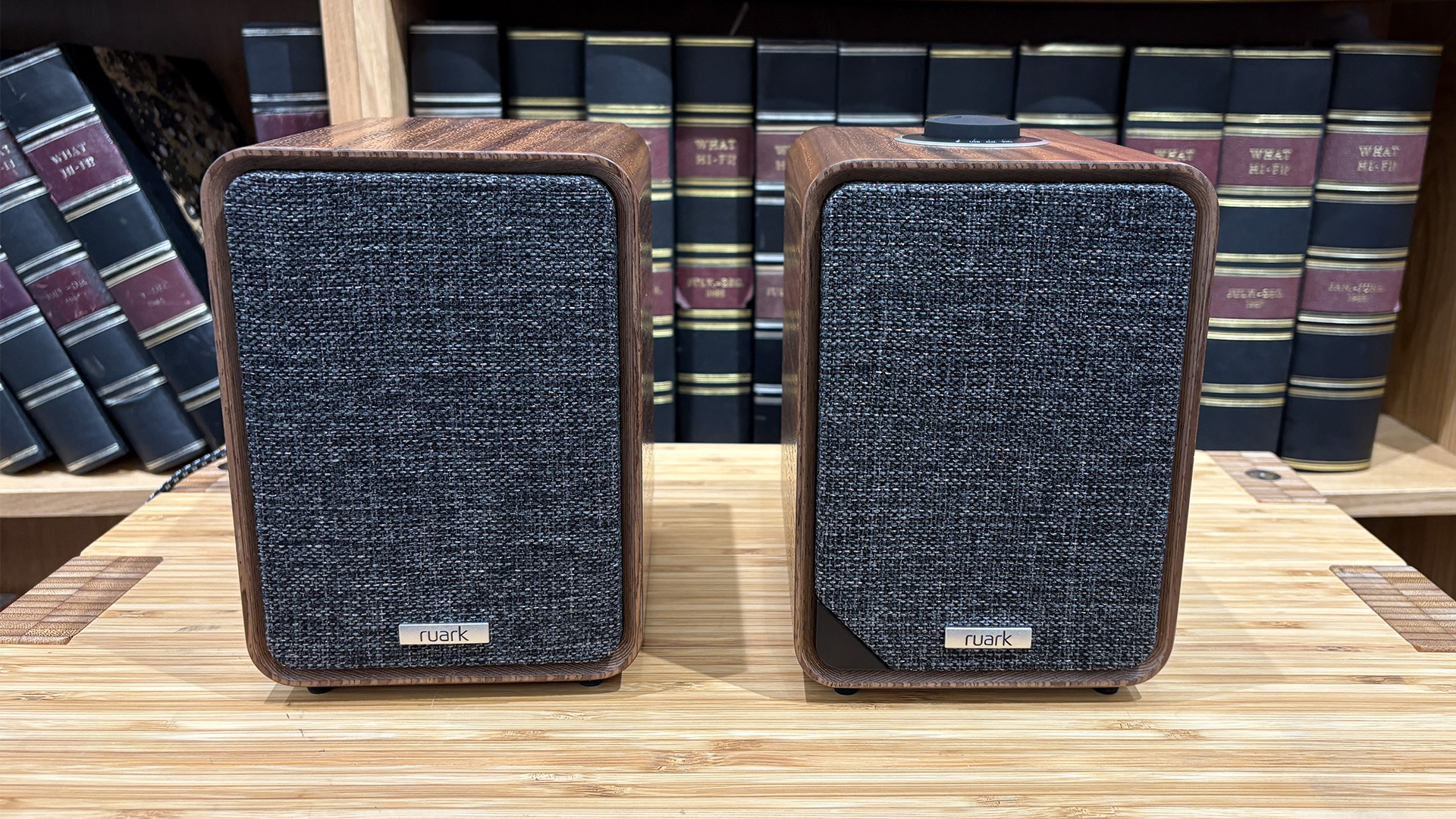
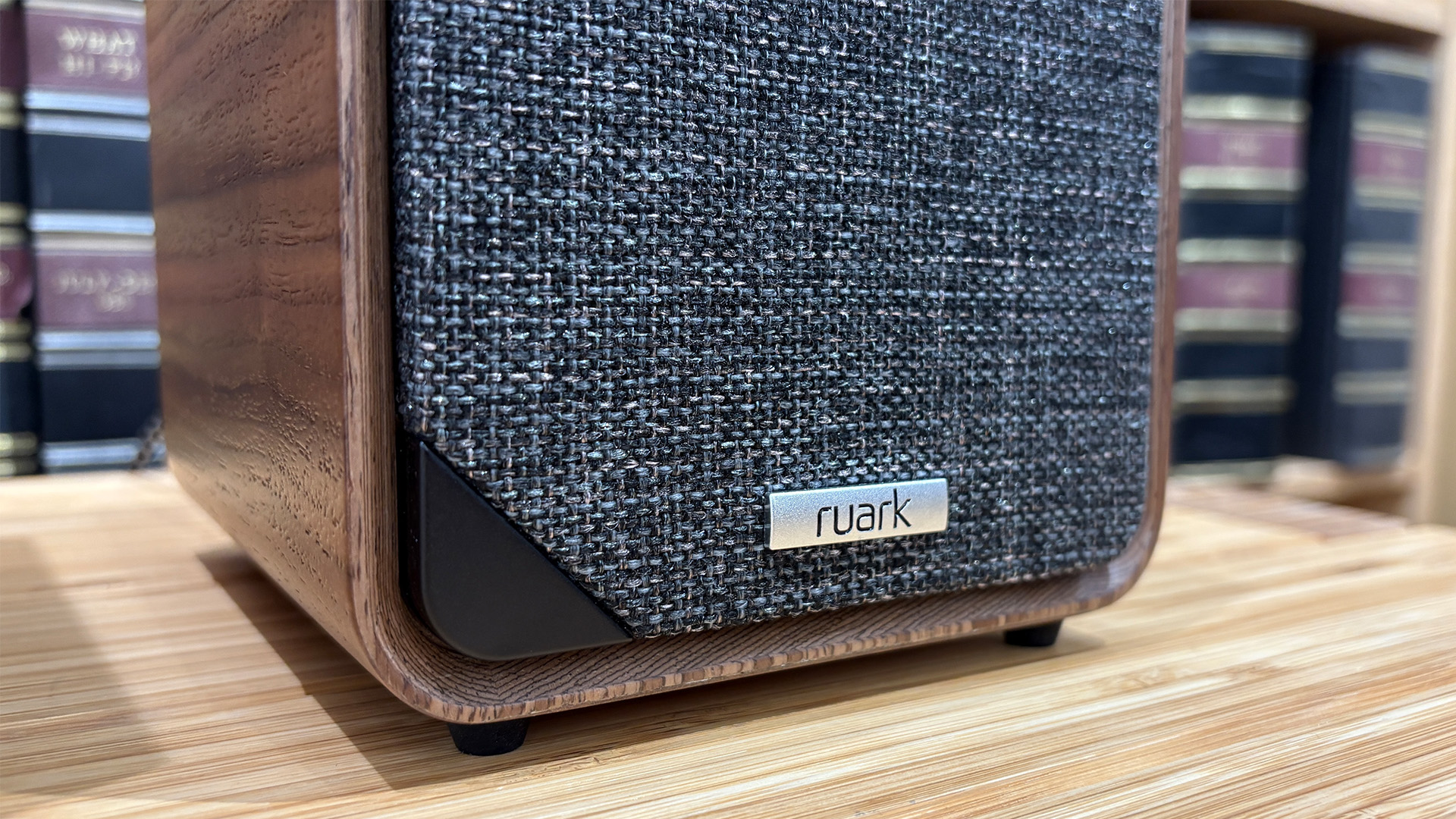
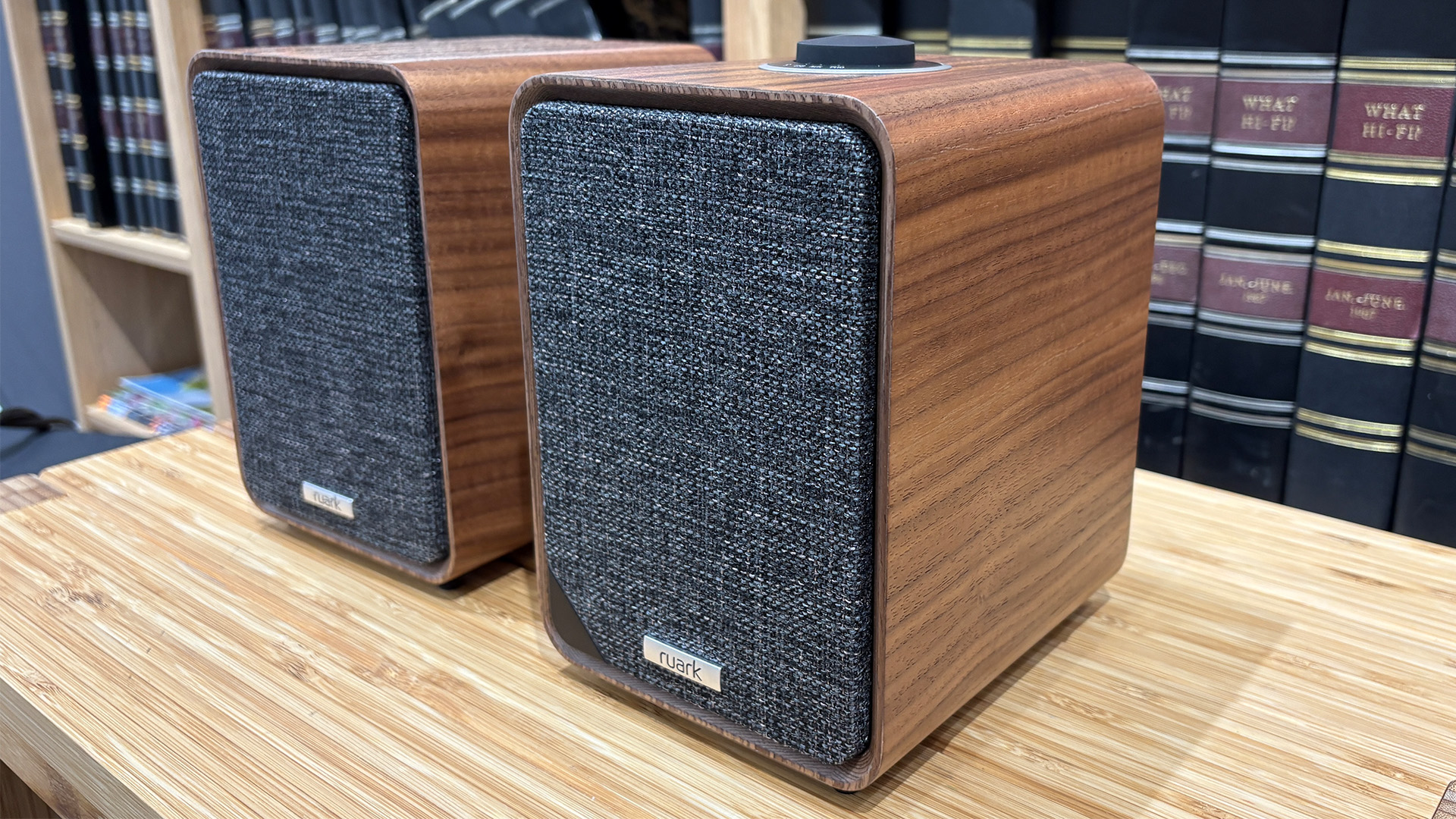
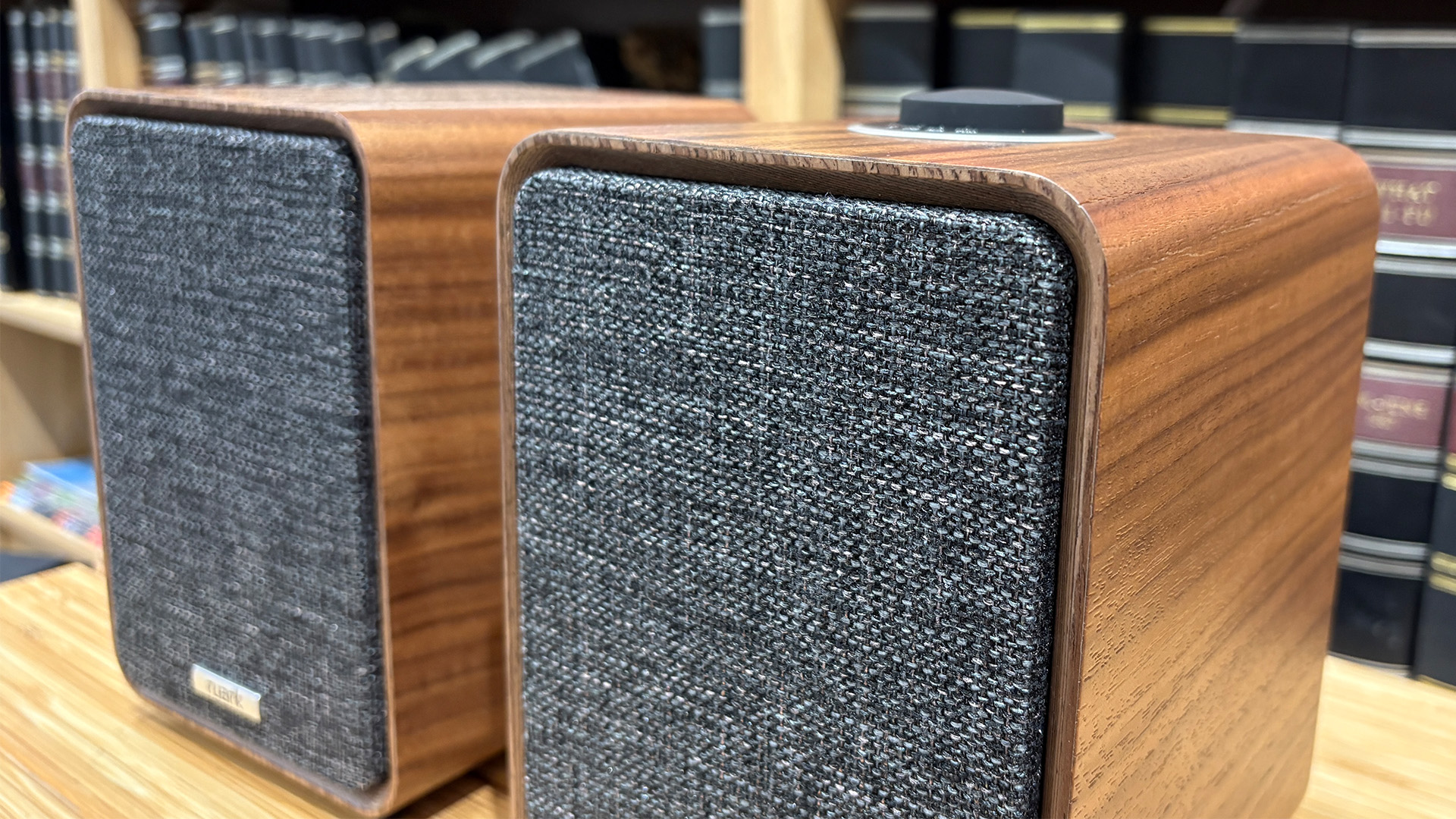
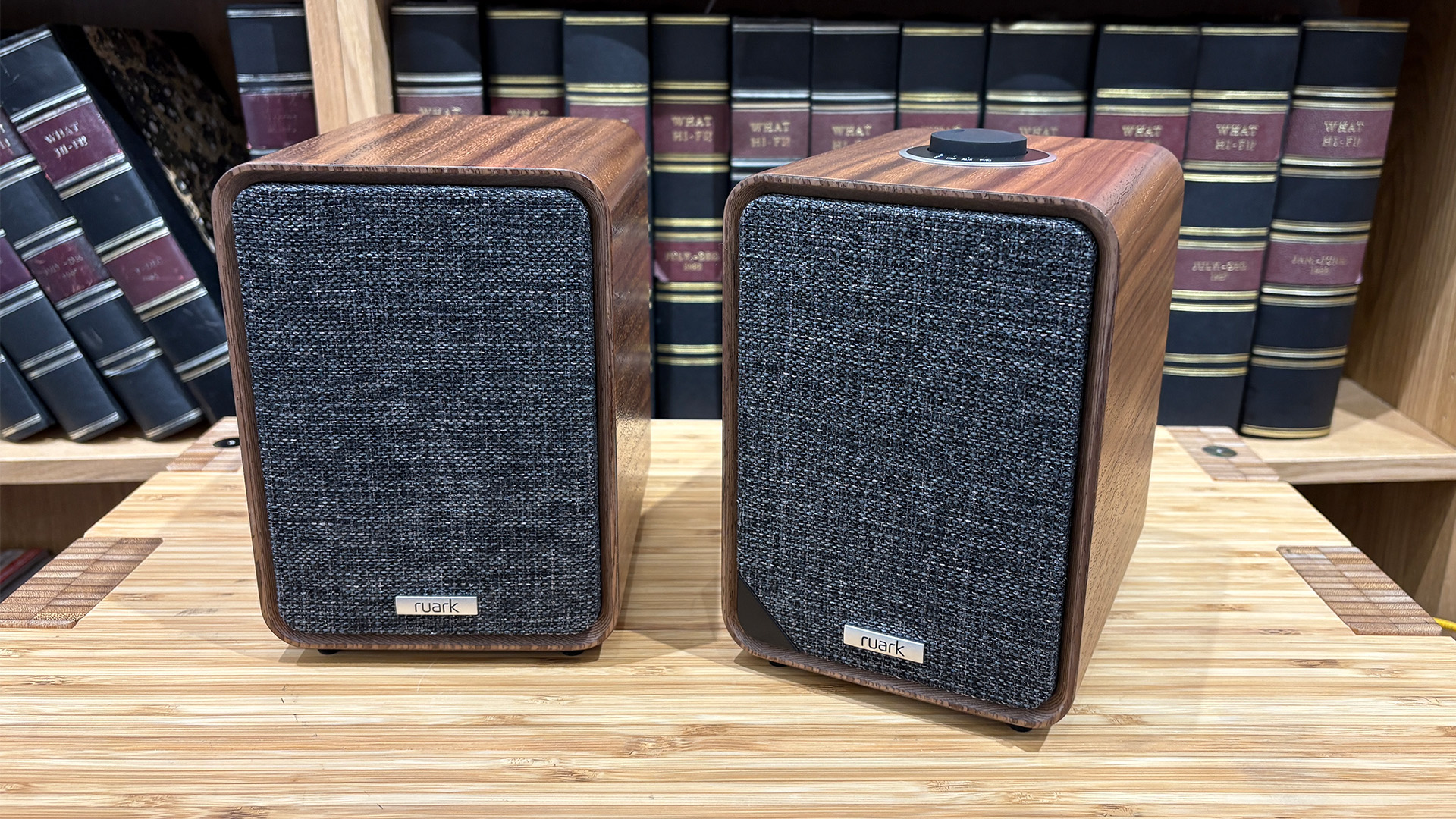
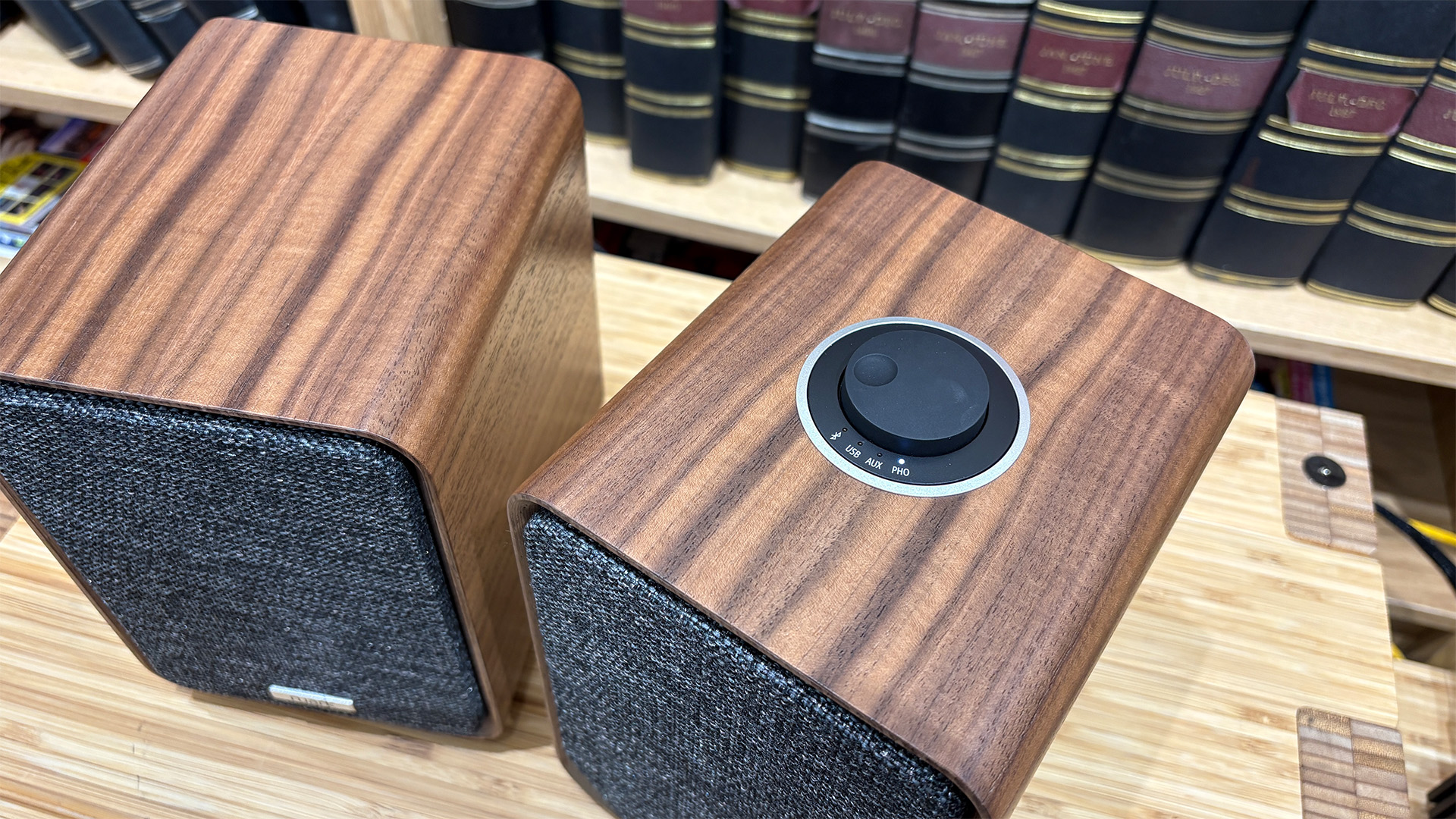
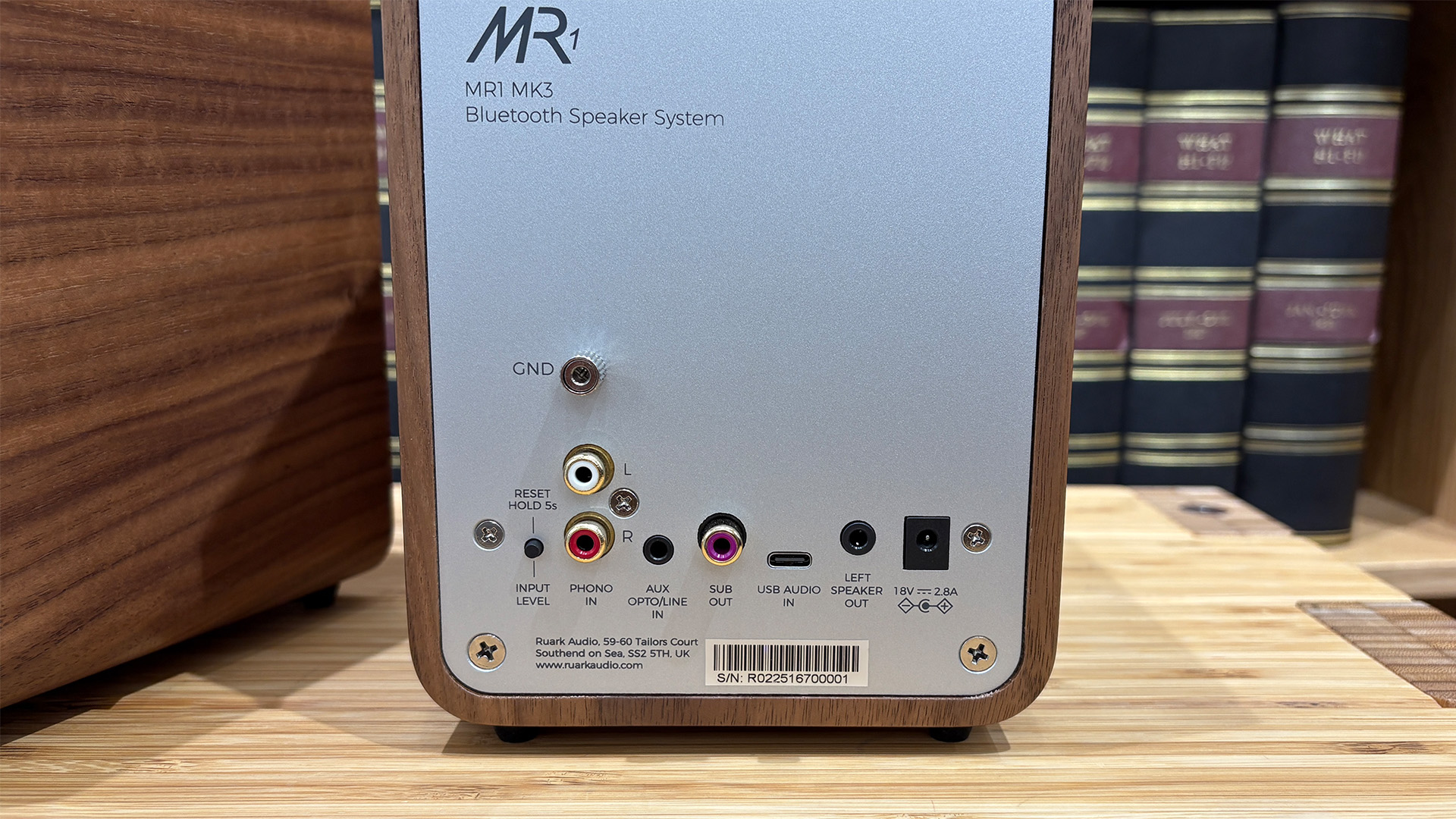
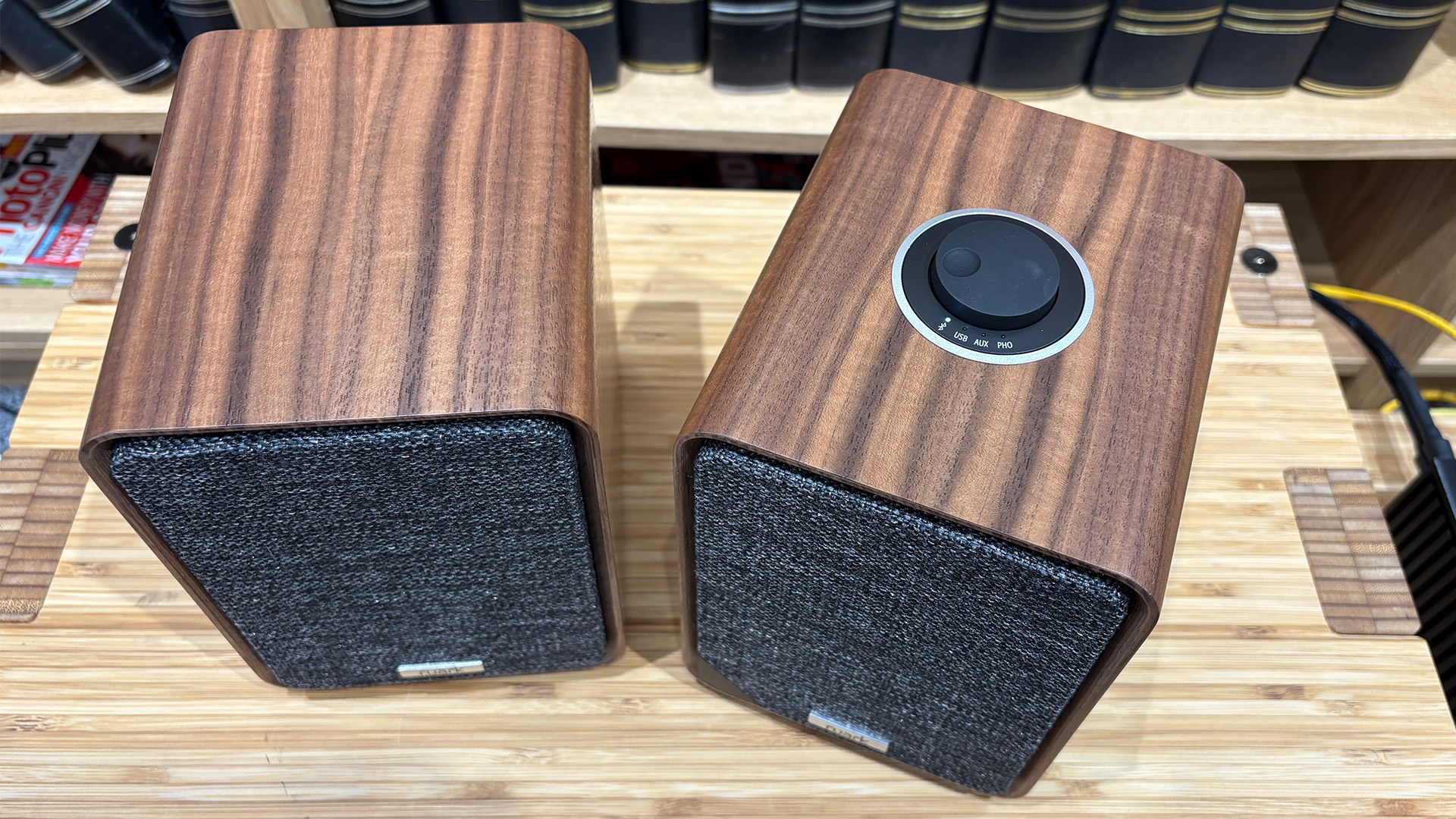
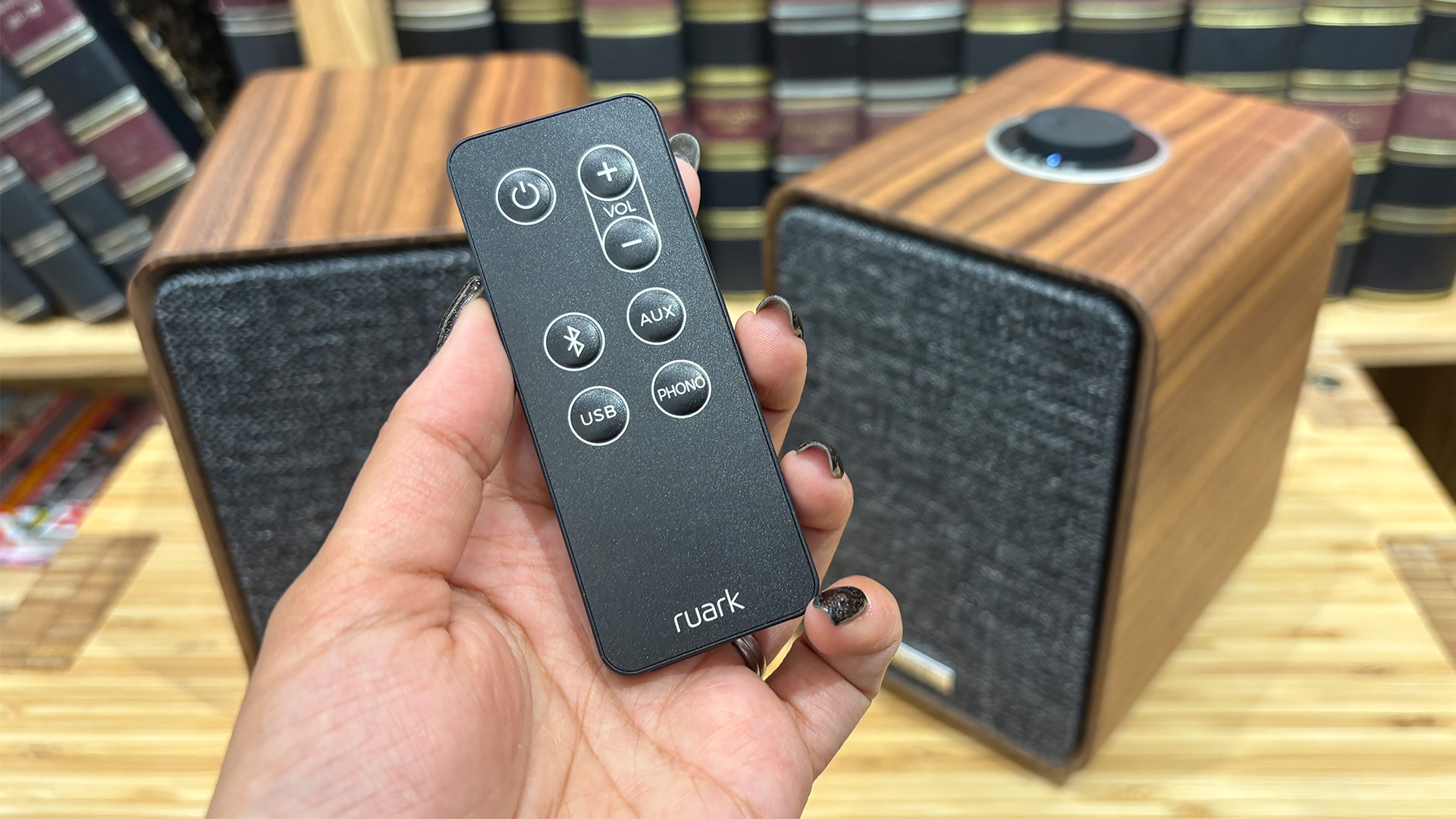
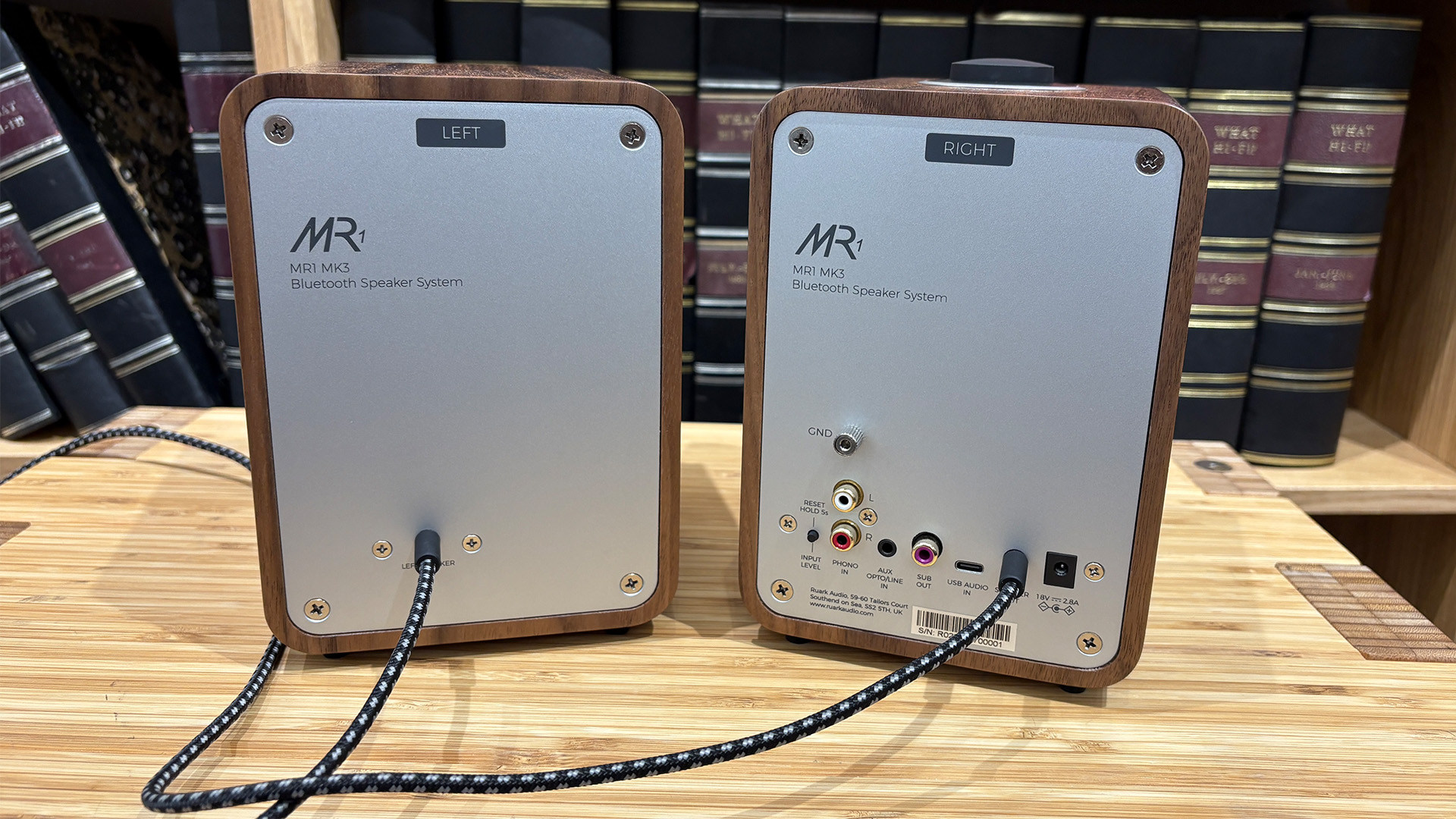
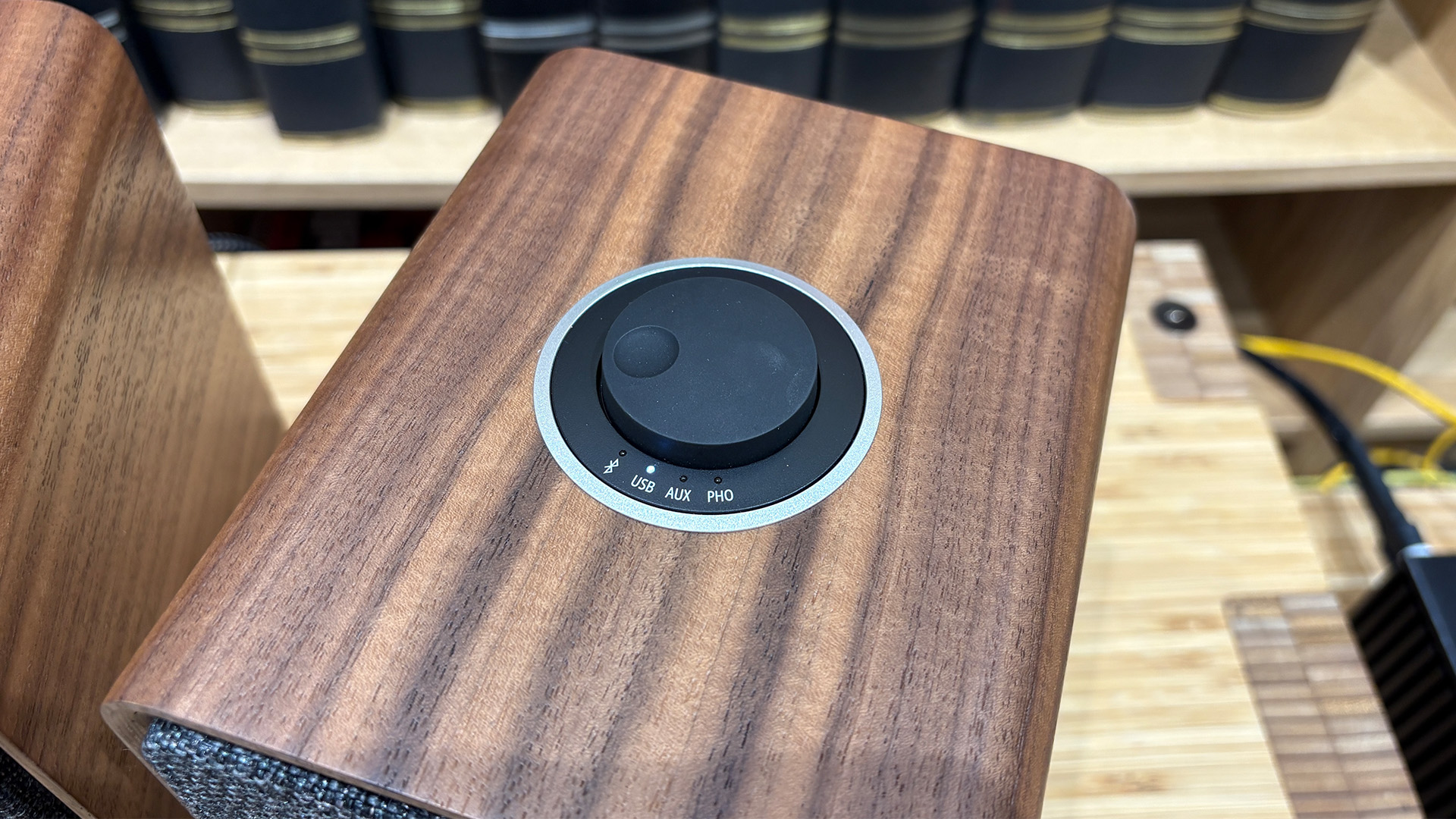
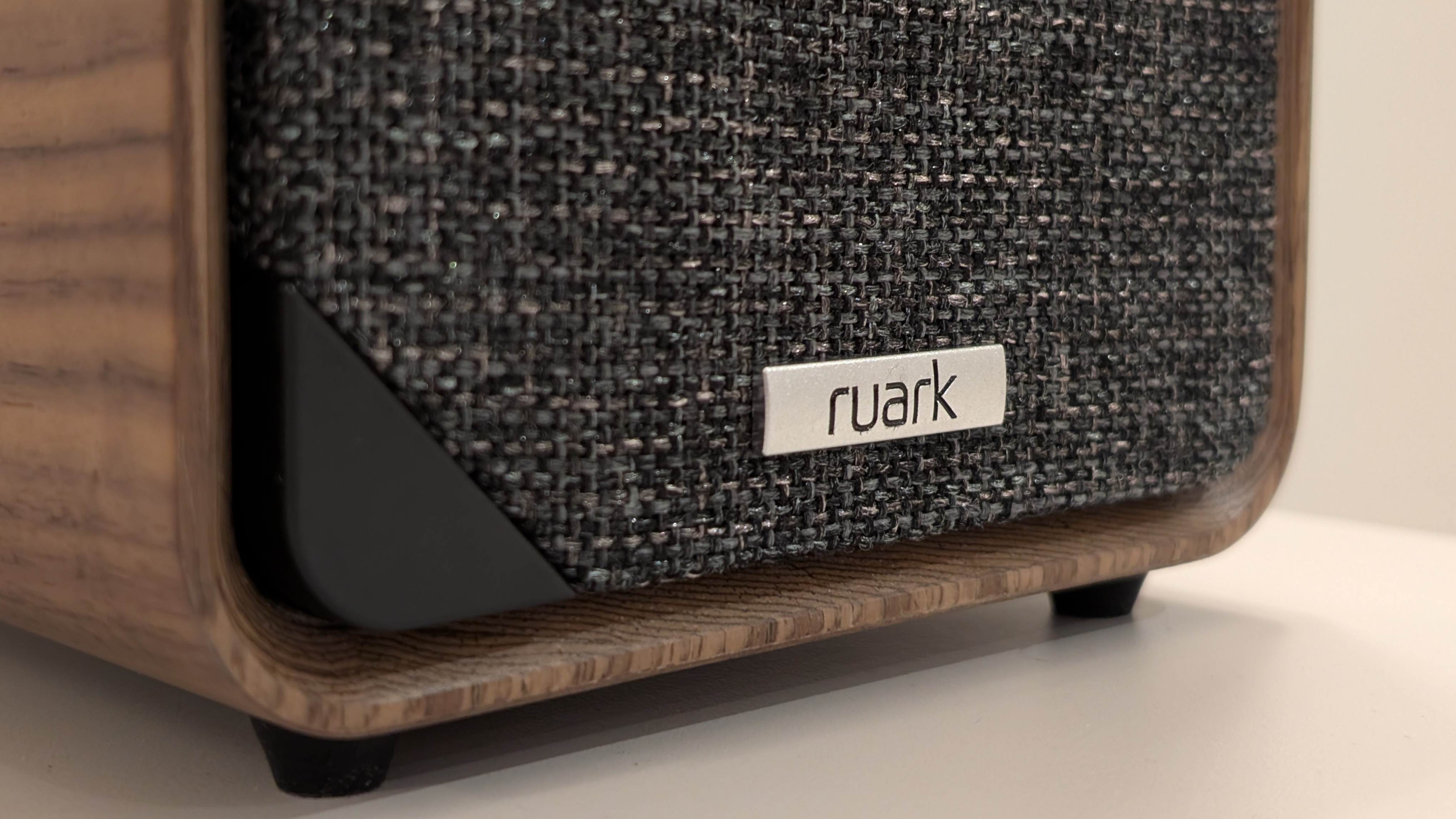

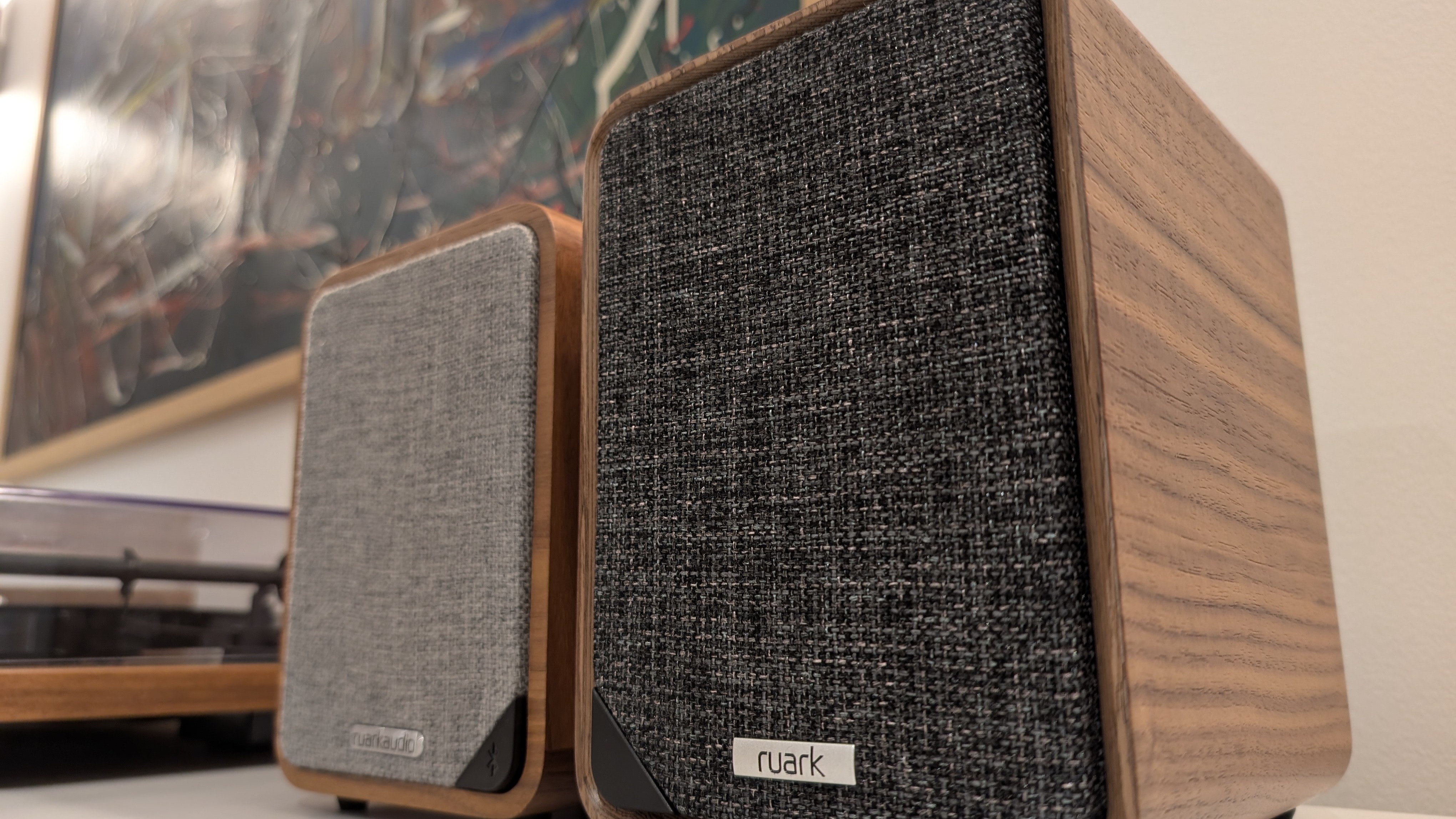
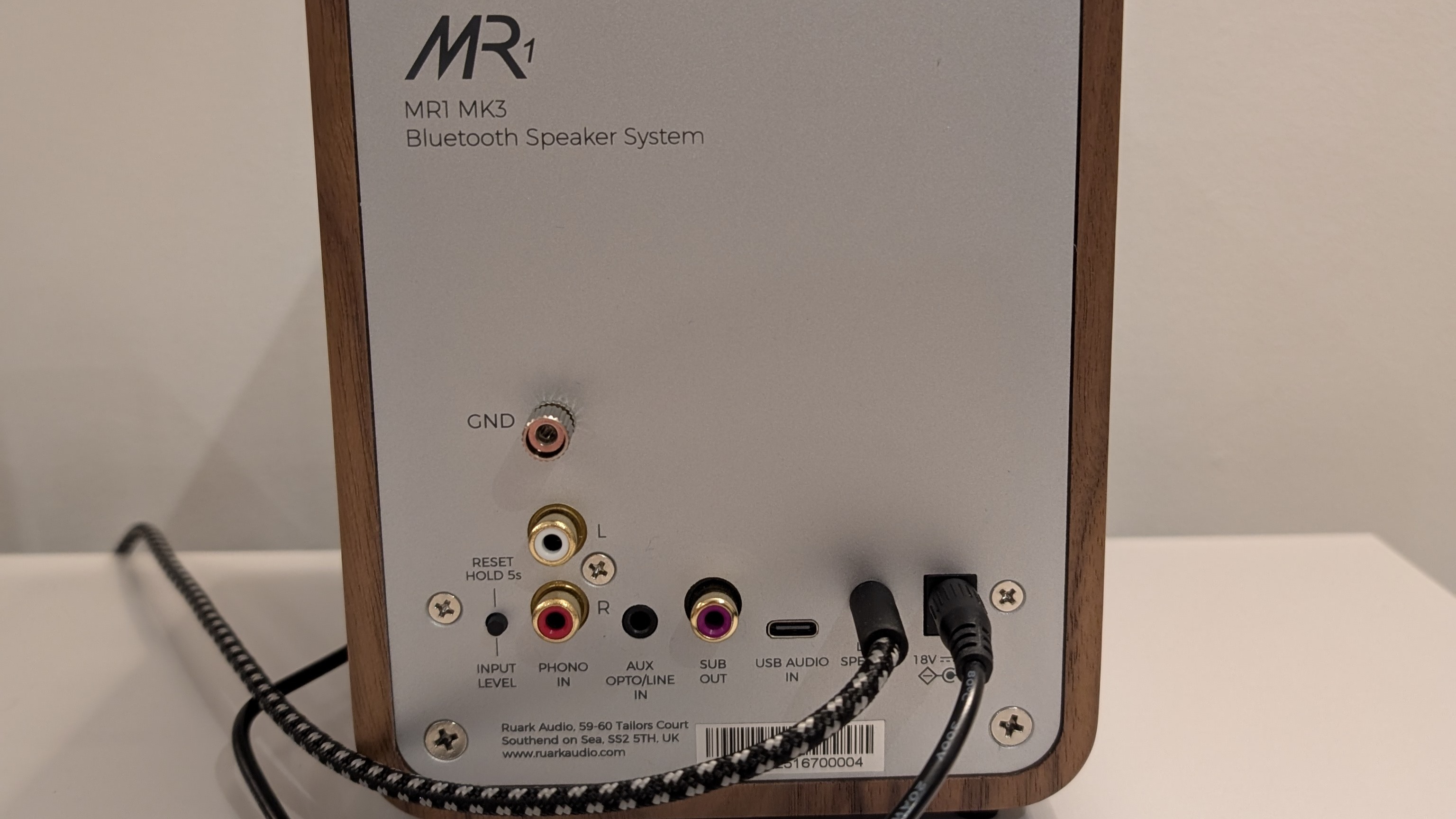
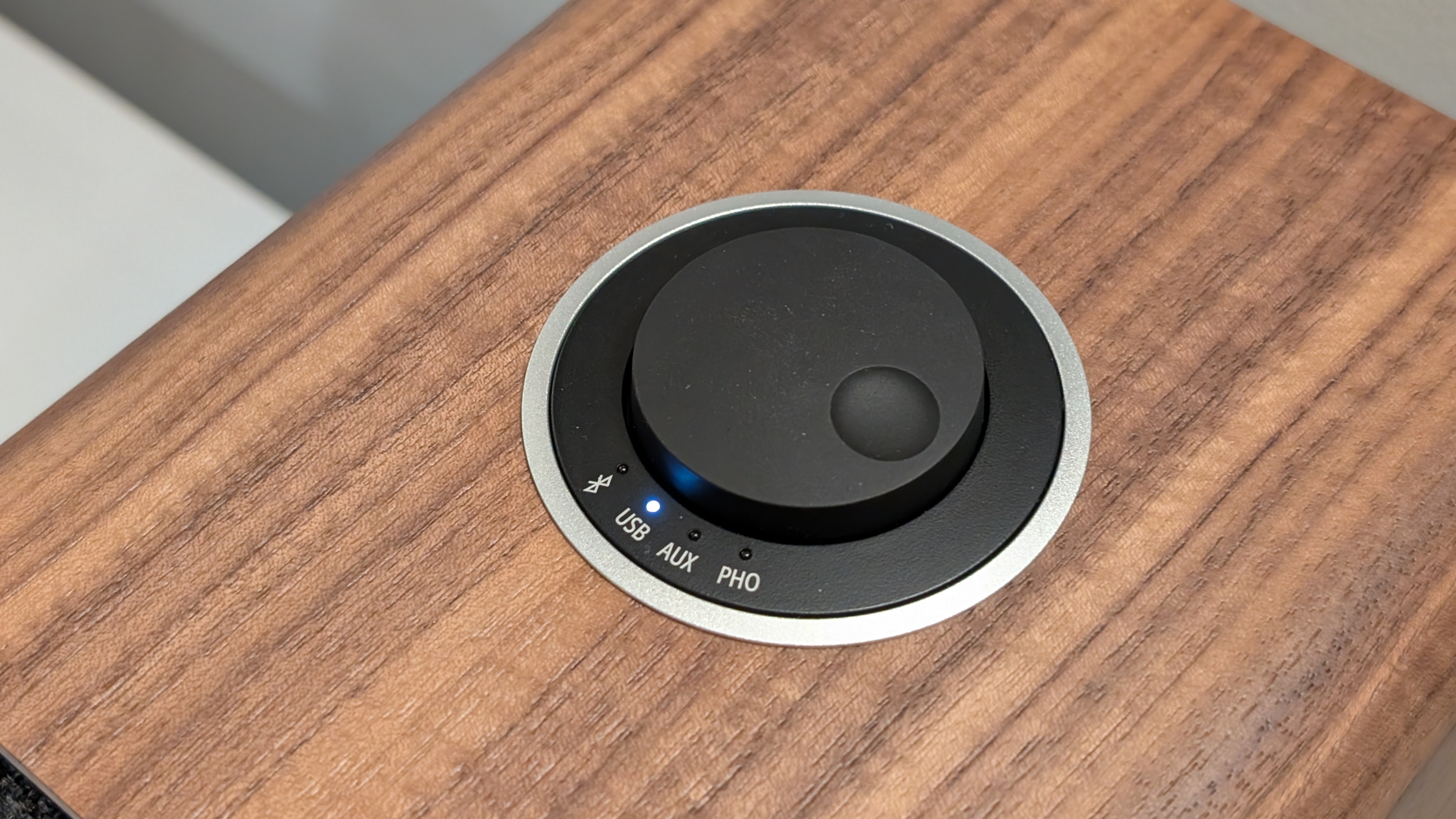
Specifications
Reasons to buy
Reasons to avoid
The Ruark MR1 Mk3 are the speakers we recommend if you need a compact set of desktop units that won’t take up oodles of space, don’t require any separates to work, but still sound great.
Standing at just 18.5cm tall and 13.5cm wide, the MR1 Mk3 are the smallest powered speakers on this list, designed to sit on desks and in smaller spaces.
Despite their compact design, the units pack a surprising amount of hardware. This includes Bluetooth streaming support, a USB-C input for connecting laptops and the like and, most importantly for the purposes of this guide, a great-sounding moving-magnet phono stage.
During testing, the phono proved incredibly capable, and the speakers match extremely well with price-appropriate turntables – including the Rega Planar 1 and Pro-Ject Primary E used while reviewing them.
Powered by 25W of Class-D amplification, the speakers deliver surprisingly solid volume levels and a generally enjoyable listen. Whether it was epic movie scores or modern pop, the MR1 Mk3 pumped out a powerful, punchy and dynamic sound, with excellent rhythmic drive and stereo imaging.
Add to this their appealing looks, which have won many of our reviewers over, and they easily earn a place as the best desktop option for vinyl fans. Our only minor quibble is that we wish they offered a little more subtlety at low frequencies.
Read our full Ruark MR1 Mk3 review
Also consider: If you're after something a little different and have enough space to accommodate something a little bigger, then we'd suggest considering the Elac Debut Connex DB41. Though the speakers' phono stage isn't as capable as the Ruark's, they're still a solid option that's capable of delivering a balanced, insightful performance when partnered with a good, price approriate turntable.
The best active speakers with phono
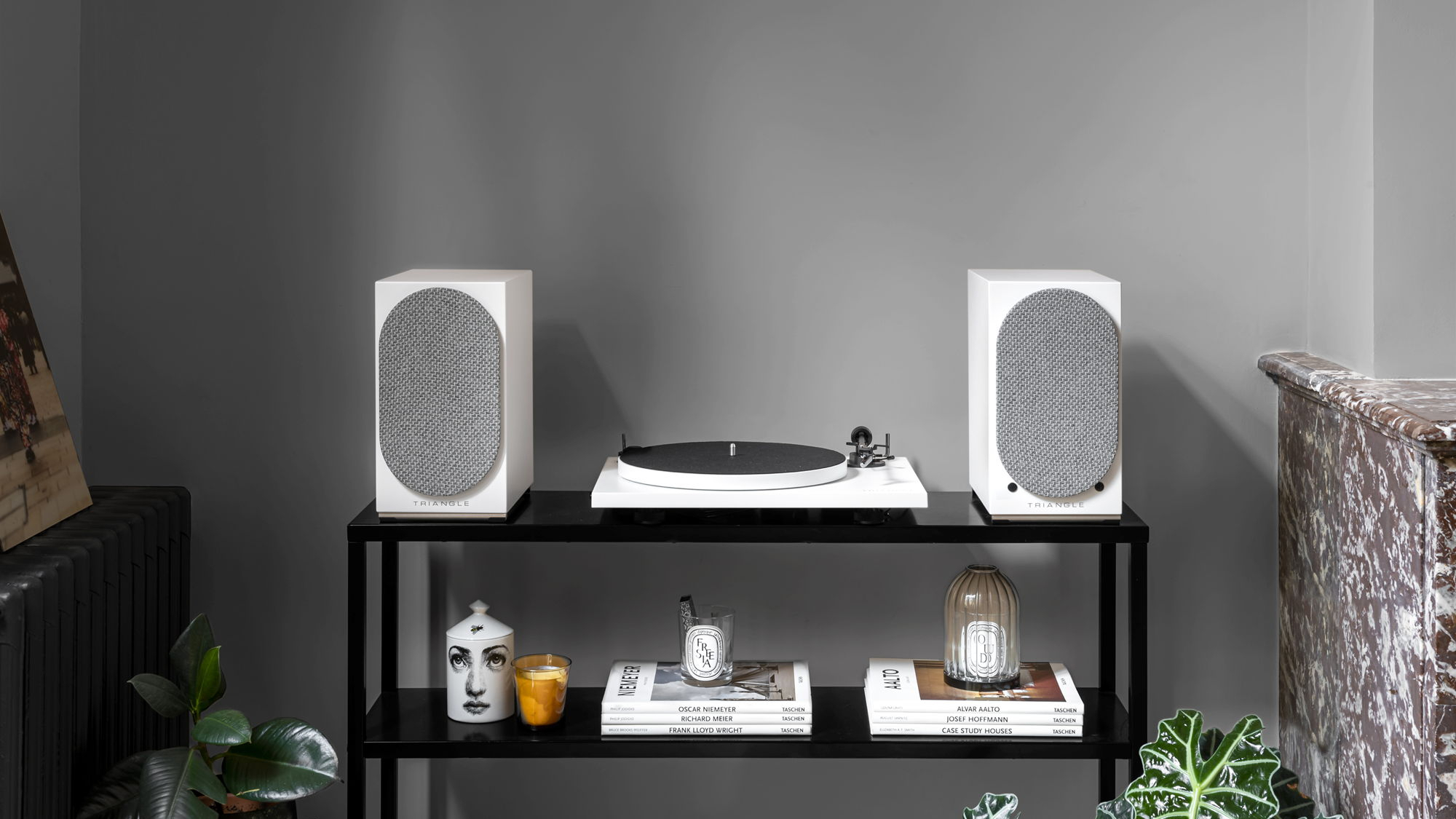
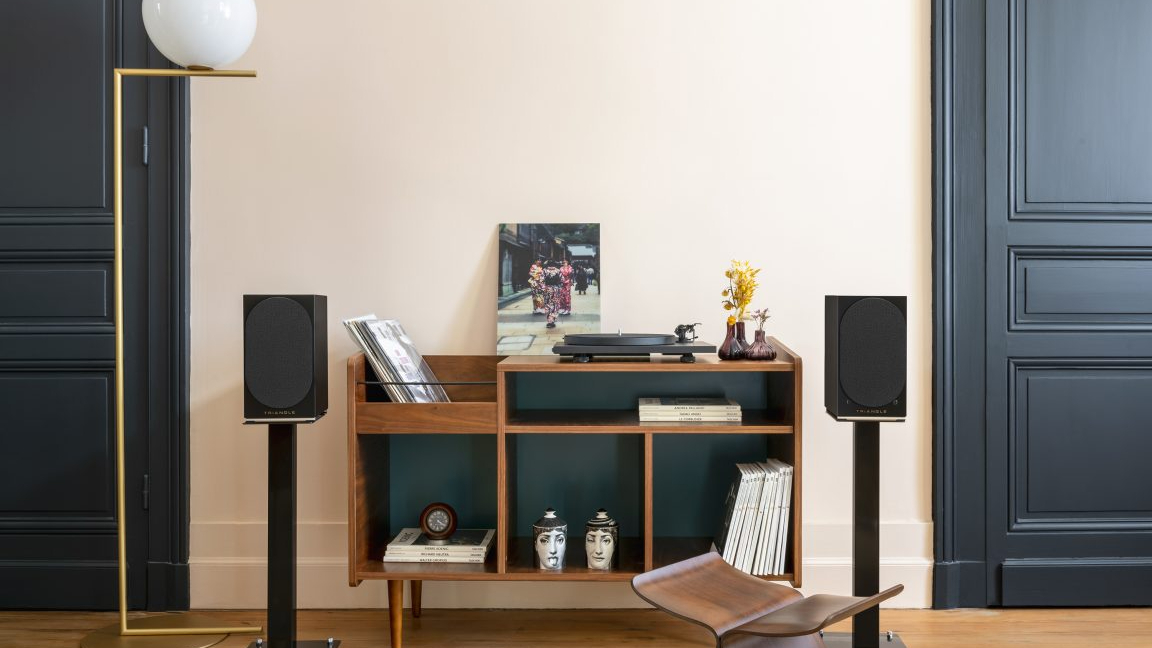
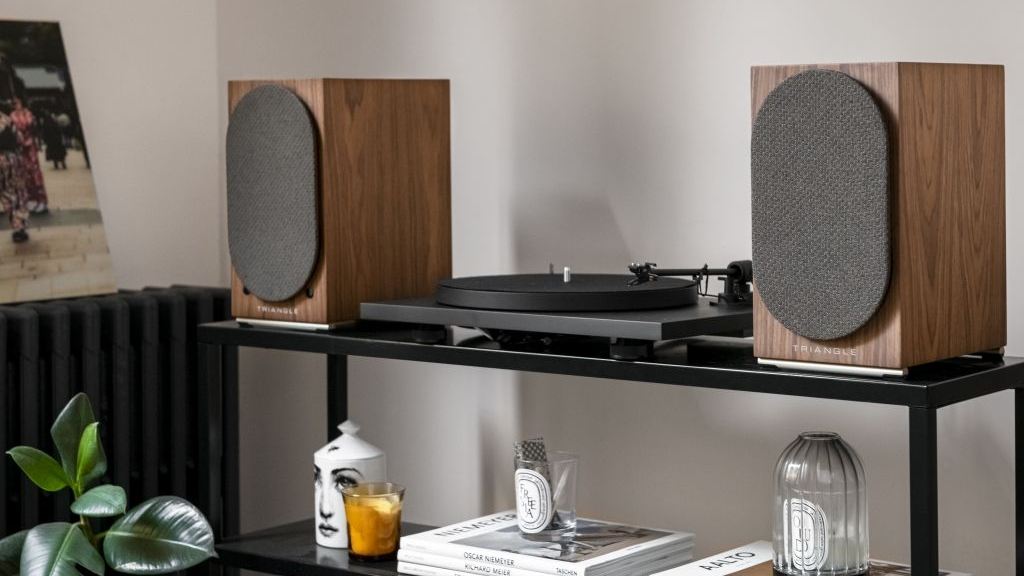
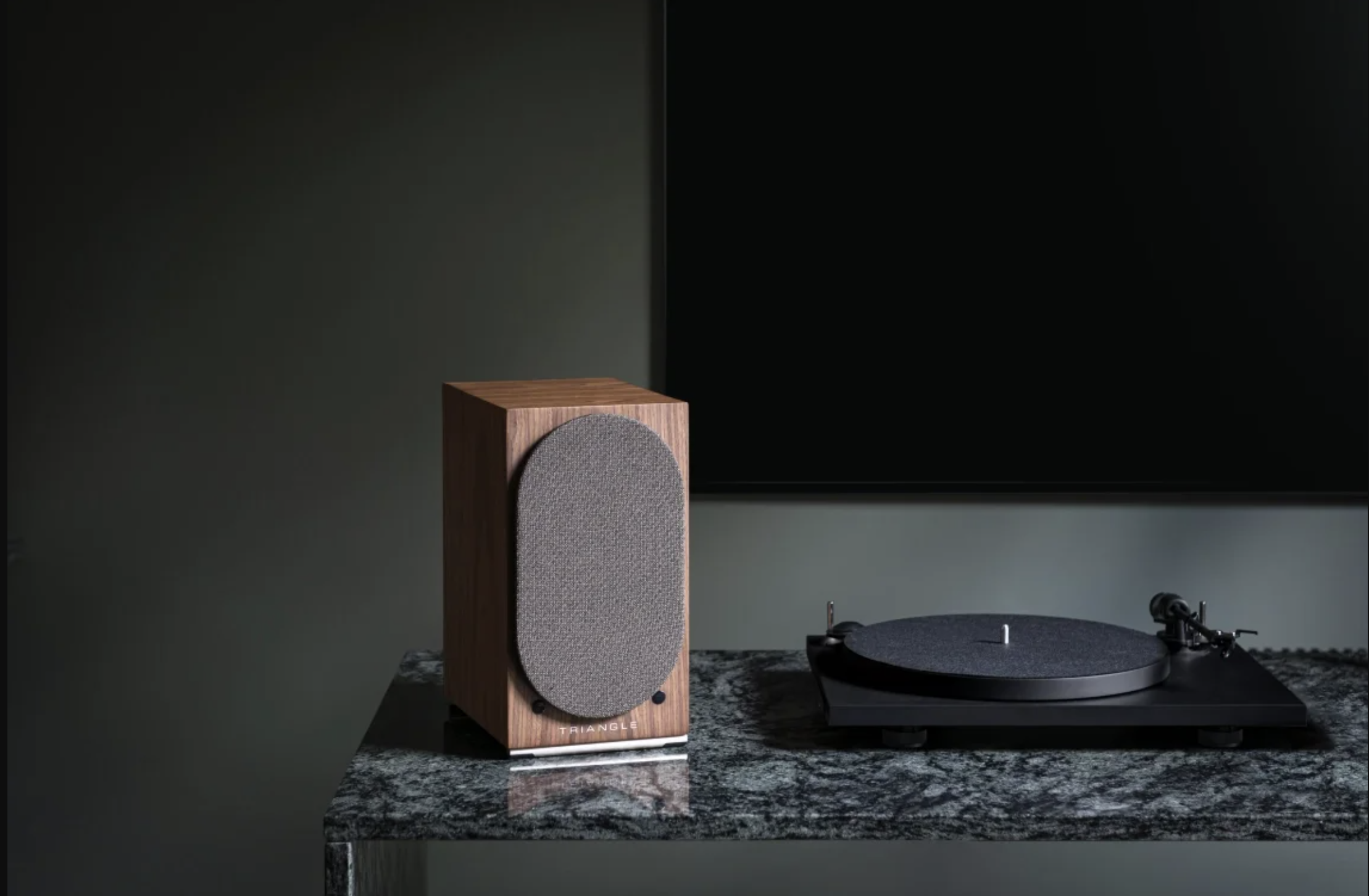
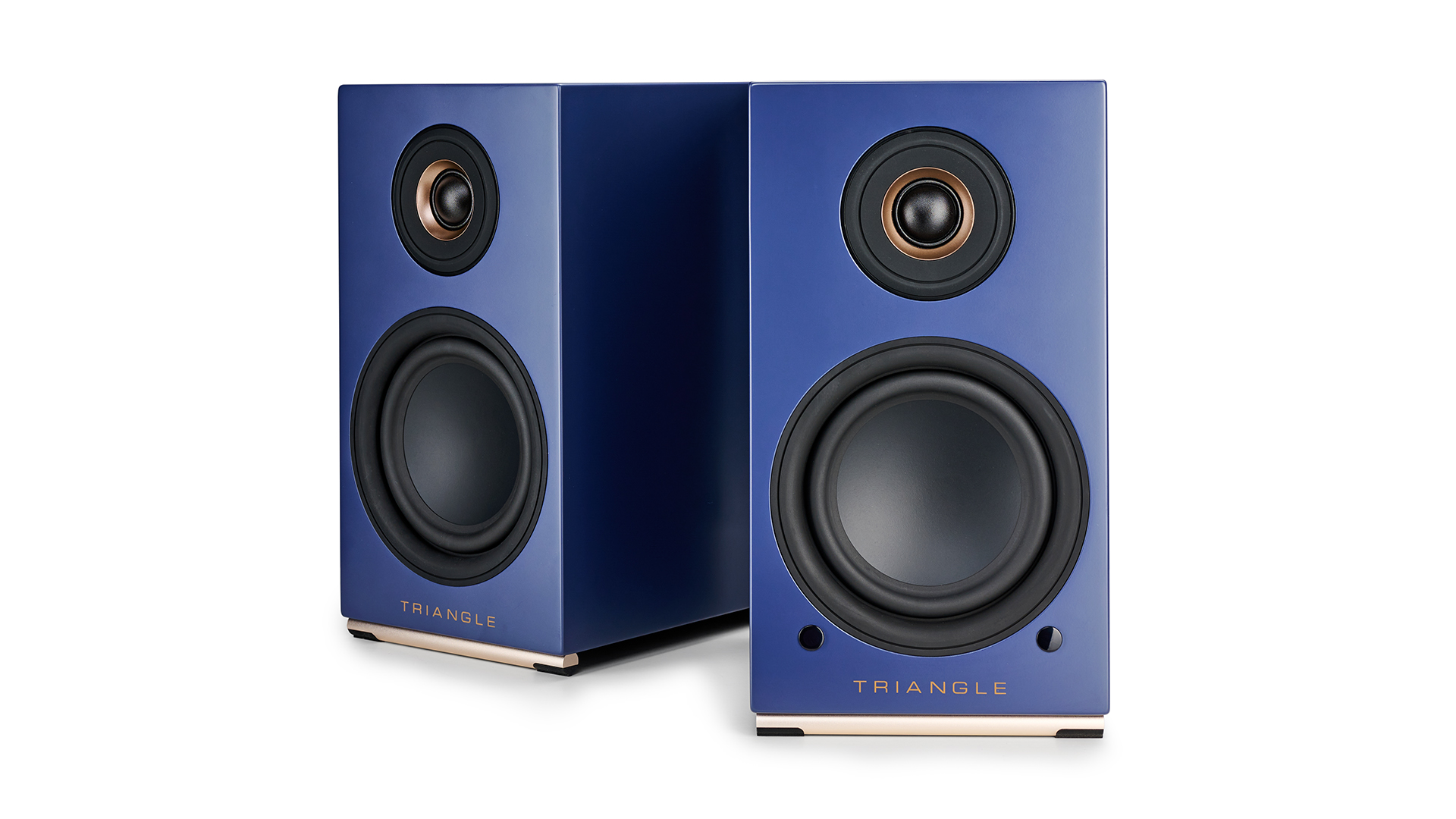
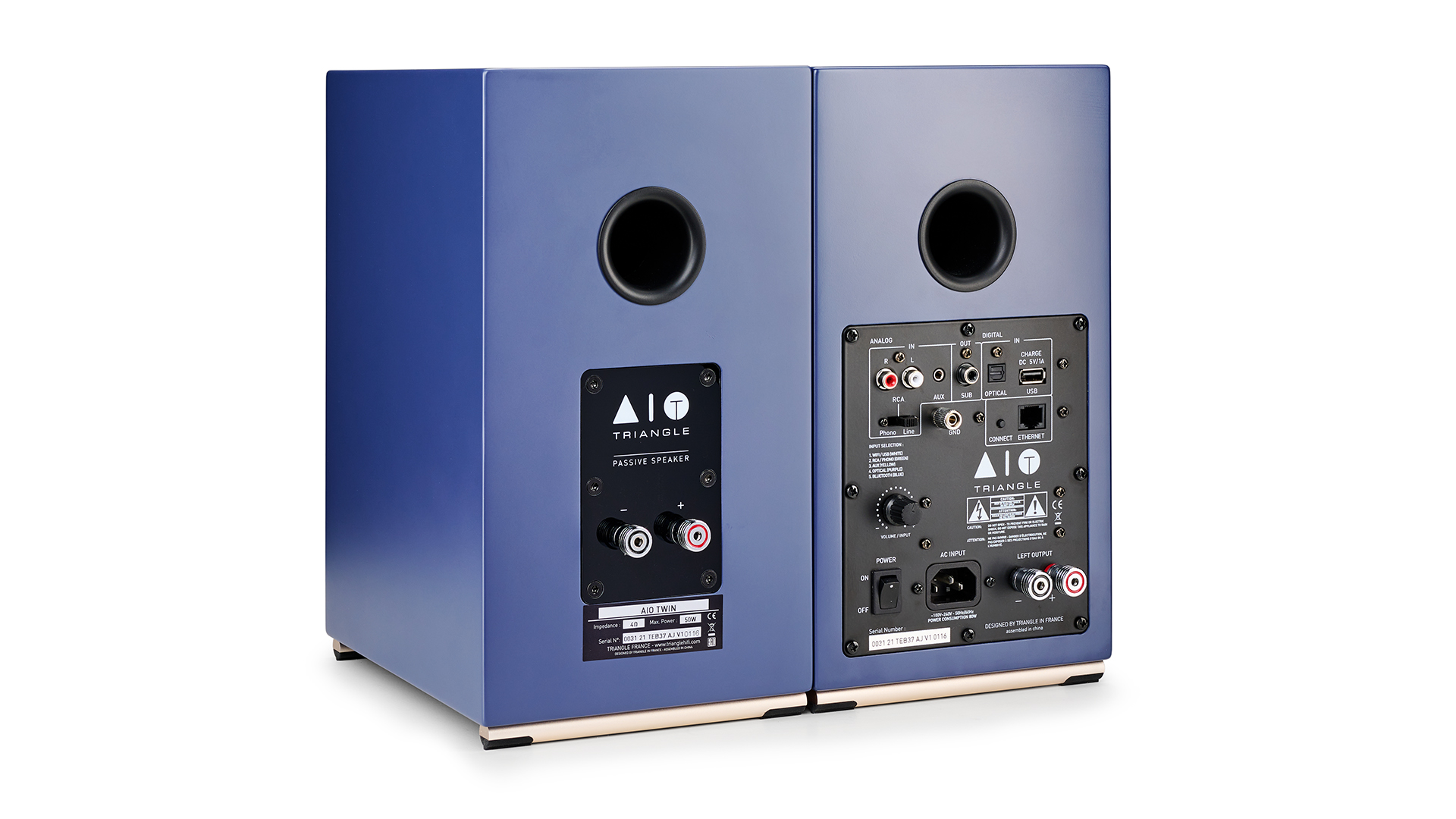
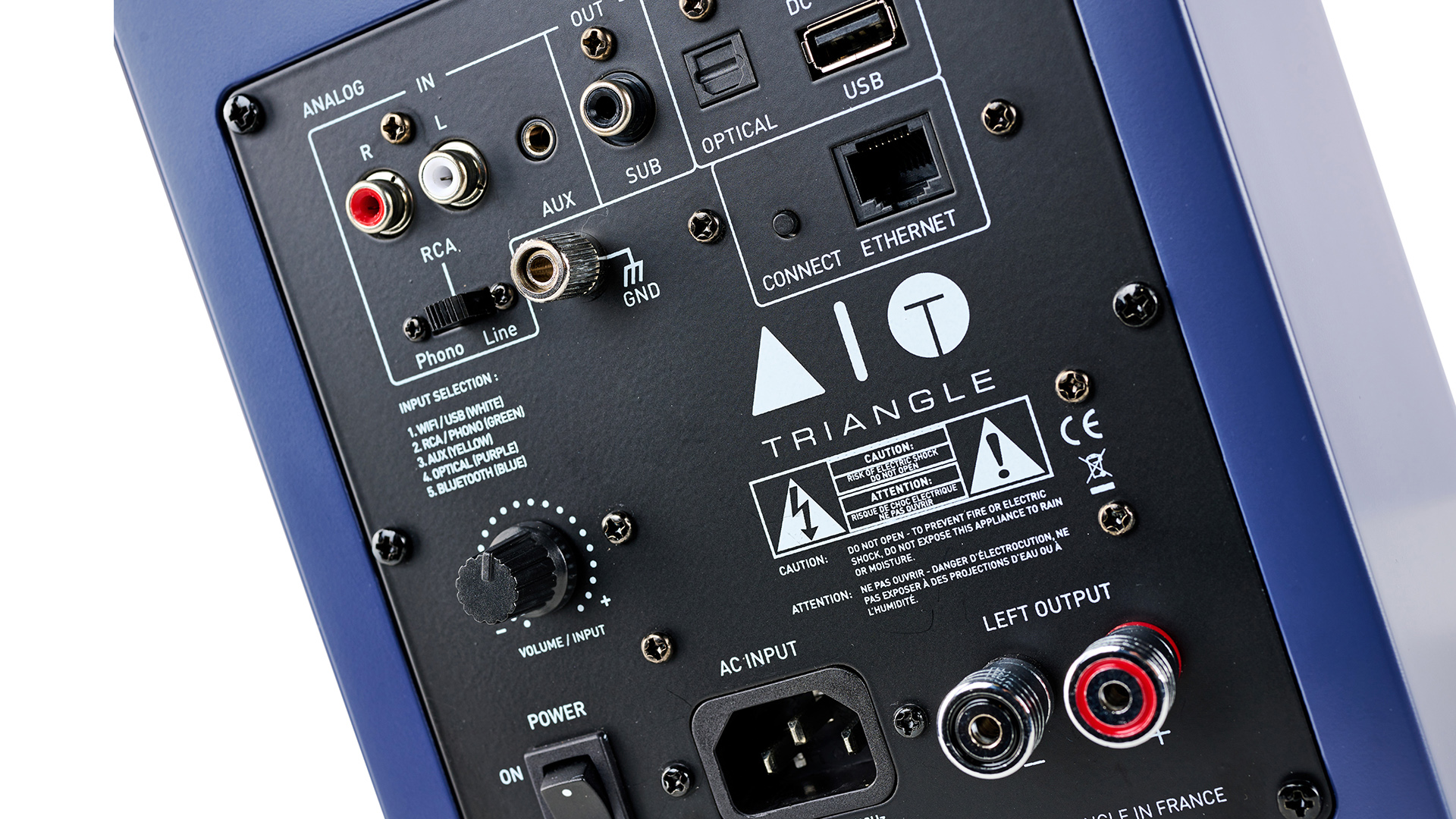
Specifications
Reasons to buy
Reasons to avoid
If the turntable you own doesn’t have a phono stage and you want to keep your setup as simple as possible, look no further than the Triangle AIO Twin.
This is a neat, elegant system that does it all (nearly), with a built-in phono stage meaning you can simply connect your deck to the dedicated phono inputs and you're good to go. It puts on the kind of sonic performance that makes you want to keep on listening – and you don’t have to pay over a grand for it.
All of the amplification, streaming circuitry and connectivity is situated in the ‘master’ speaker, with a cable to connect the second passive unit, but both house 13cm mid/bass drivers and 25mm tweeters. They’re classy and compact cabinets, which are available in six fetching colours.
The inputs are all neatly labelled, with a key that corresponds to the LED on the front, which changes depending on which source is active. As well as the RCA analogue inputs, there are also optical, ethernet and 3.5mm sockets, plus wi-fi and Bluetooth if you’d prefer to ditch the cables.
It’s all easy to set up and manage thanks to the Triangle AIO app, which also allows you to create a multi-room system if you have other compatible Triangle products. The only thing it’s really missing is some customisable EQ settings.
All the major streaming services are supported – Spotify, Tidal, Deezer, Amazon Music, Qobuz – and hi-res audio support goes up to 24-bit/192kHz.
Paired with a decent turntable, such as the five-star Rega Planar 2/Nd3 or Pro-Ject Debut Evo 2, these speakers sound peppy enough to get you singing along, but they perform even better when streaming over wi-fi.
It’s a system that’s incredibly fun to listen to, with a confident and composed delivery. There’s also ample power, space and bass, especially considering the speakers’ dimensions.
It’s also worth noting that they have rear-firing ports, so while you can be pretty flexible with where you position them, you’re advised not to place them too close to a wall as they need a bit of space to breathe.
Read the full Triangle AIO Twin review
Also consider: If you want a more affordable pair of active speakers with a built-in phono stage, the £339 Elac Debut ConneX DCB41 are a great option for budget turntables such as the Pro-Ject Primary E or Rega Planar 1. The five-star Elacs don't have streaming smarts built in, but they are versatile speakers with Bluetooth, USB, optical, HDMI and the analogue inputs can be switched to phono or line level. You could, for instance, plug in the superb Rega Planar 1 Plus, whose built-in phono stage is of a better quality than the Elacs'. Unfussy, insightful and balanced sound are the highlights of the Debut ConneX's performance.
The best active speakers
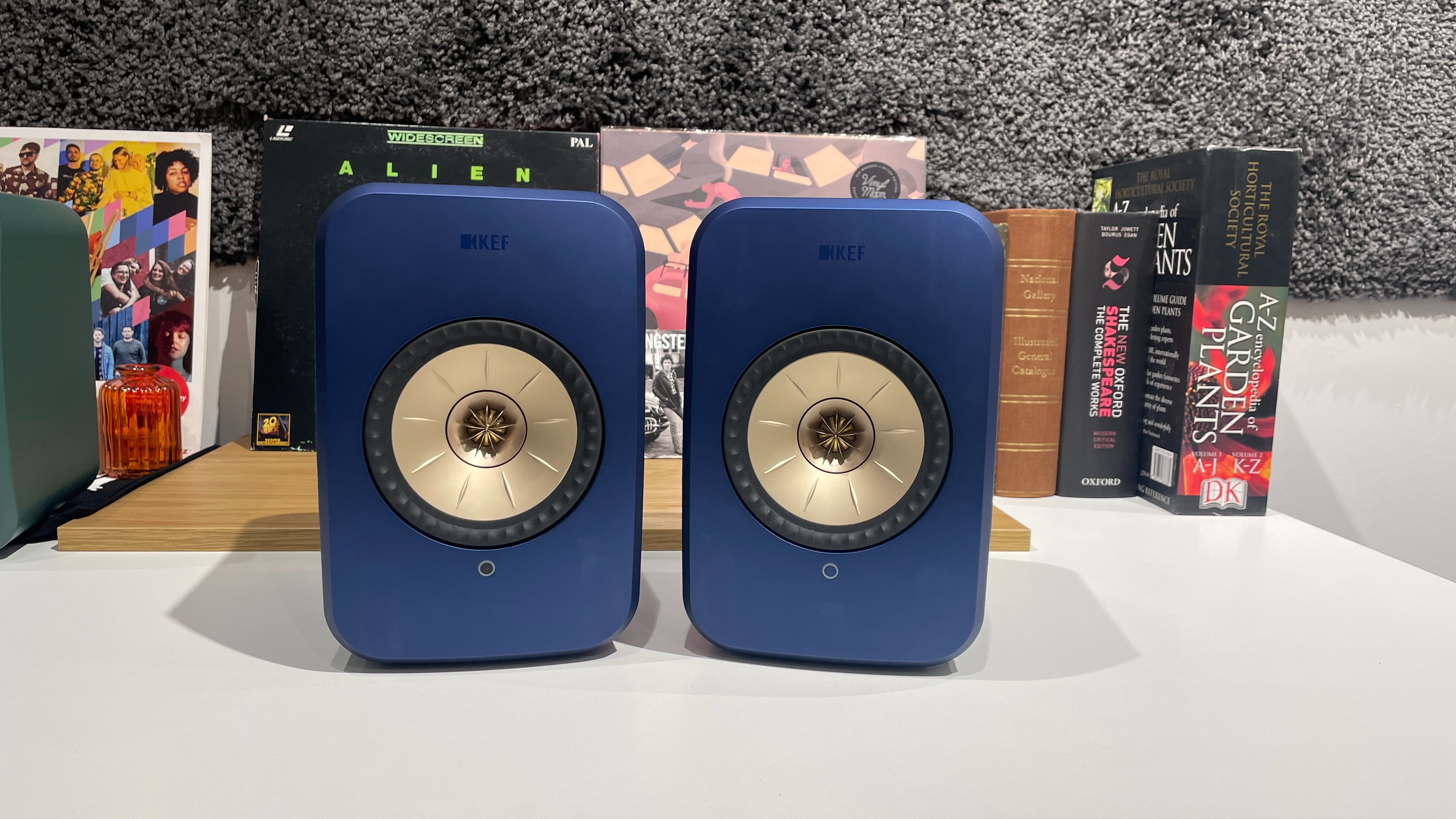
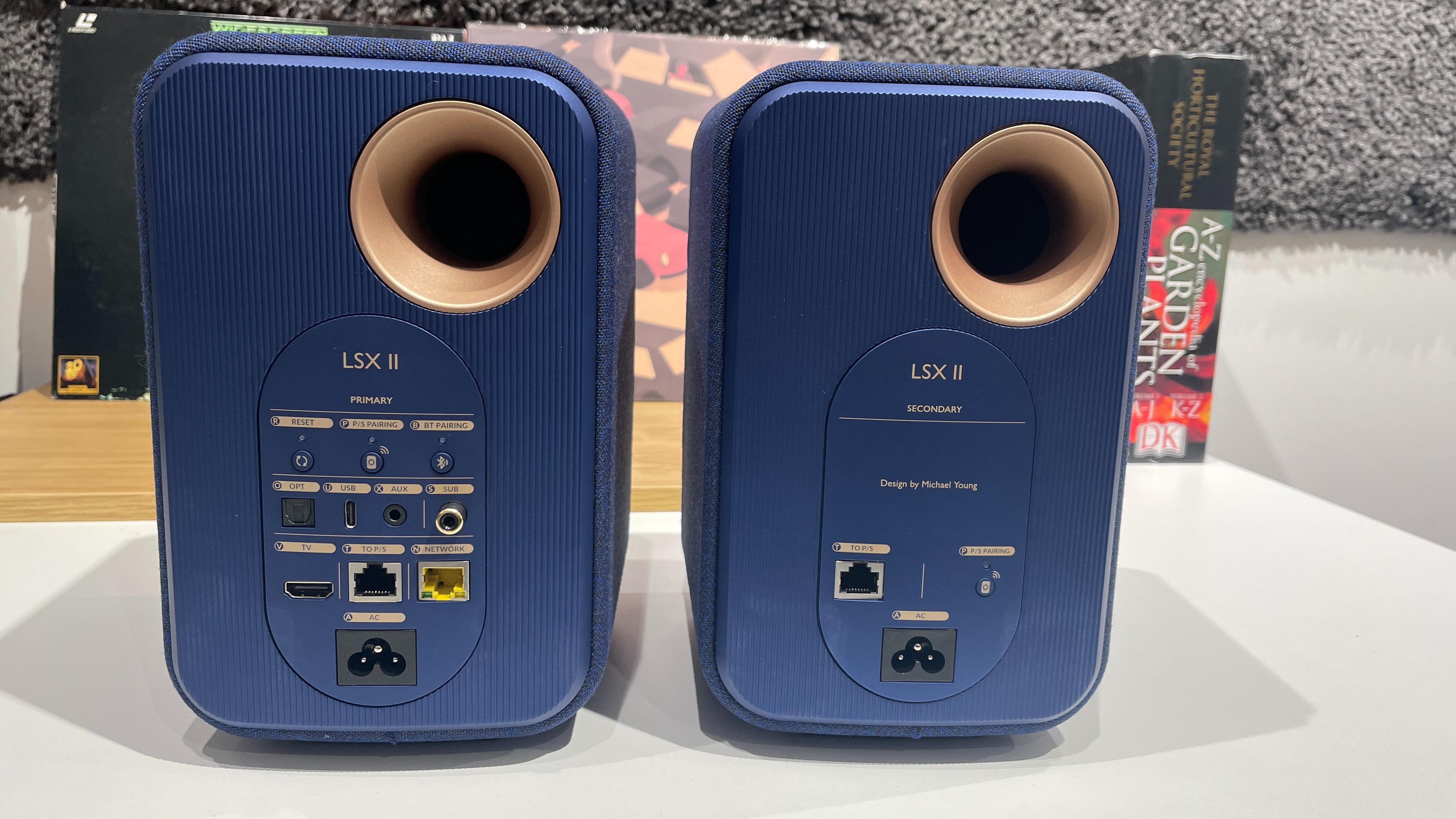
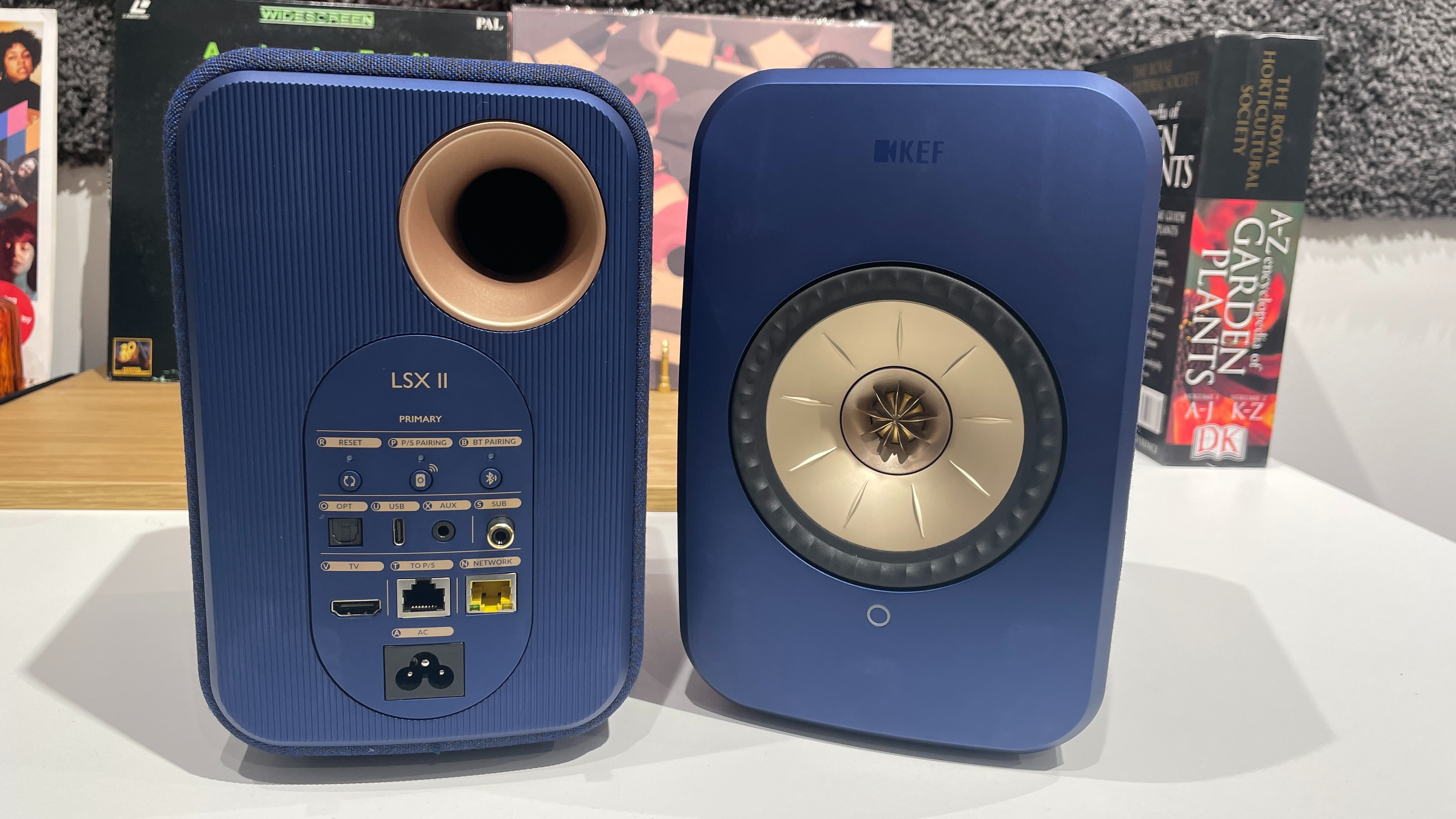
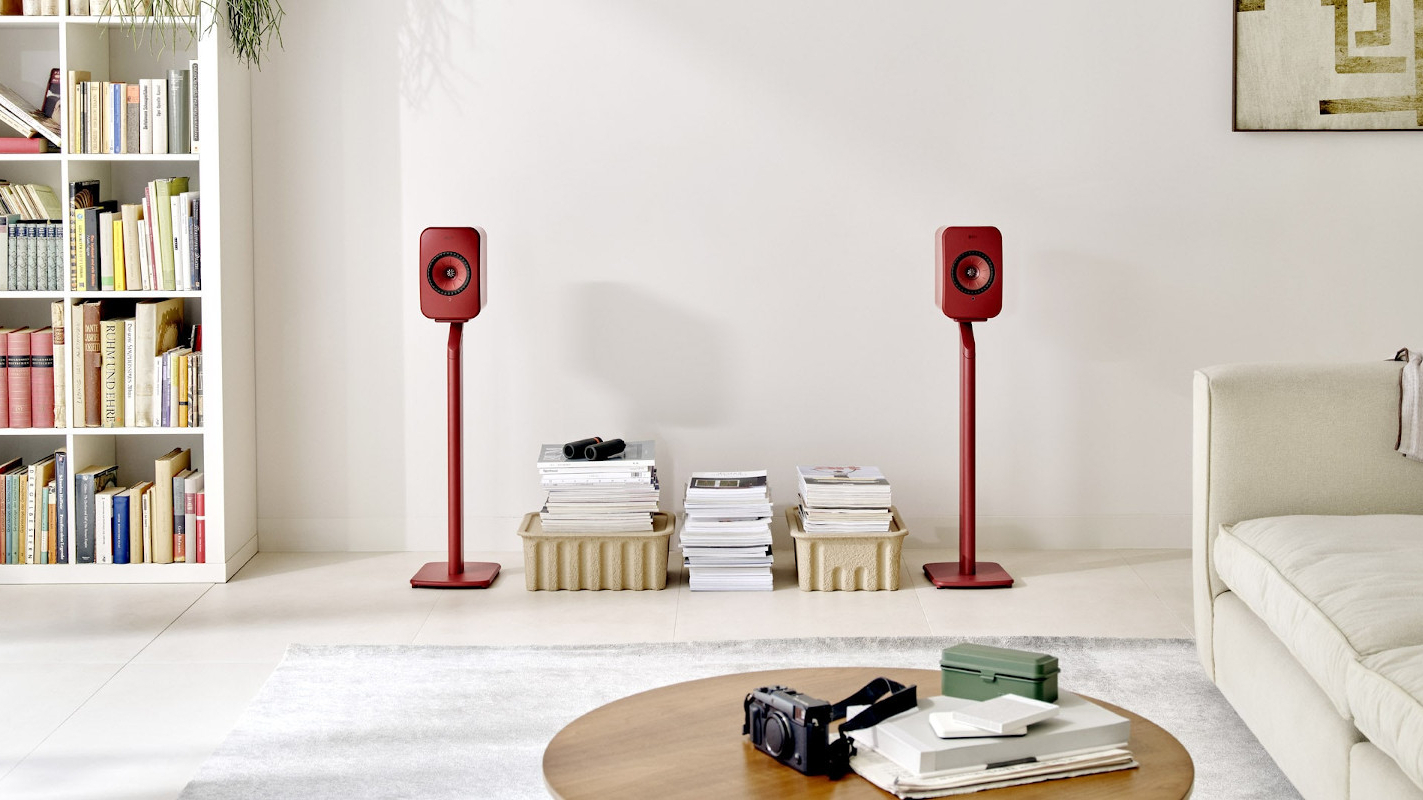
Specifications
Reasons to buy
Reasons to avoid
The KEF LSX II don't have a phono stage, which means you will need to own a turntable with one, such as the Rega Planar 1 Plus we paired them with during our review. But if you do, they're a fantastic option, especially if you want streaming smarts as well as stellar audio.
The Award-winning KEF LSX II is a stylish streaming system that comes with none of the baggage and multiple boxes that a separates set-up brings. Comprising a network streamer, a Bluetooth receiver and an amplifier all built into a pair of stereo speakers, the LSX II is a great option for those looking for convenience and musicality in two compact boxes. Nothing else really comes close at this level.
If you’re used to hi-fi kit coming in black, silver and various different wood finishes, the options KEF offers with the LSX II will come as a pleasant surprise. You can choose Carbon Black or Mineral White, but the Olive Green, Cobalt Blue and Lava Red are all rather fetching.
These 200-watt speakers run on KEF’s W2 wireless streaming platform, so while the original LSX offered plenty of choices when it came to sources – streaming over DLNA or from Tidal, Spotify Connect and Apple AirPlay 2 – the LSX II expands on this with wider streaming support and the modern-day addition of HDMI ARC and USB-C for TV and laptop connectivity respectively. There’s no phono stage, but if you have a record player with one built in, the LSX II’s integrated amp means you can just plug it straight in.
An Ethernet port allows native playback of 24-bit/96kHz digital music files, plus KEF’s own low-latency wireless connection supports anything up to 24-bit/48kHz (anything above either is simply downsampled for playback). They can also decode DSD256 and MQA files.
You don’t have to listen to the KEF LSX II for long to realise you’re in the presence of some very capable speakers. There’s a real sense of refinement and maturity to the sound without being showy; laid back but expressive when required.
The UniQ drivers produce a bubble of sound with vocals that hang right in the middle of the soundstage. Tonally, the whole presentation is extremely inviting and shows a lot of natural warmth. And this rings true whether you’re listening to the speakers in a more conventional set-up on the stands or you’re sitting more up close and personal using them on a desktop.
Their size limits how low they can go, but there’s enough weight for the bass notes to feel full and wholesome. Bass is tight and controlled, too, with a nice layer of texture on the surface of the notes. It's a satisfying performance and a neat, stylish system overall.
Read the full KEF LSX II review
Also consider: If you’ve got the extra cash to spend and could be tempted into something a bit more hefty, the KEF LS50 Wireless II are £1999, but they don’t come in as many colours. If you want a more affordable alternative, the five-star KEF LSX II LT offer the same performance and design but fewer connections for £899 / $999 / AU$1695. Bargain.
The best all-in-one
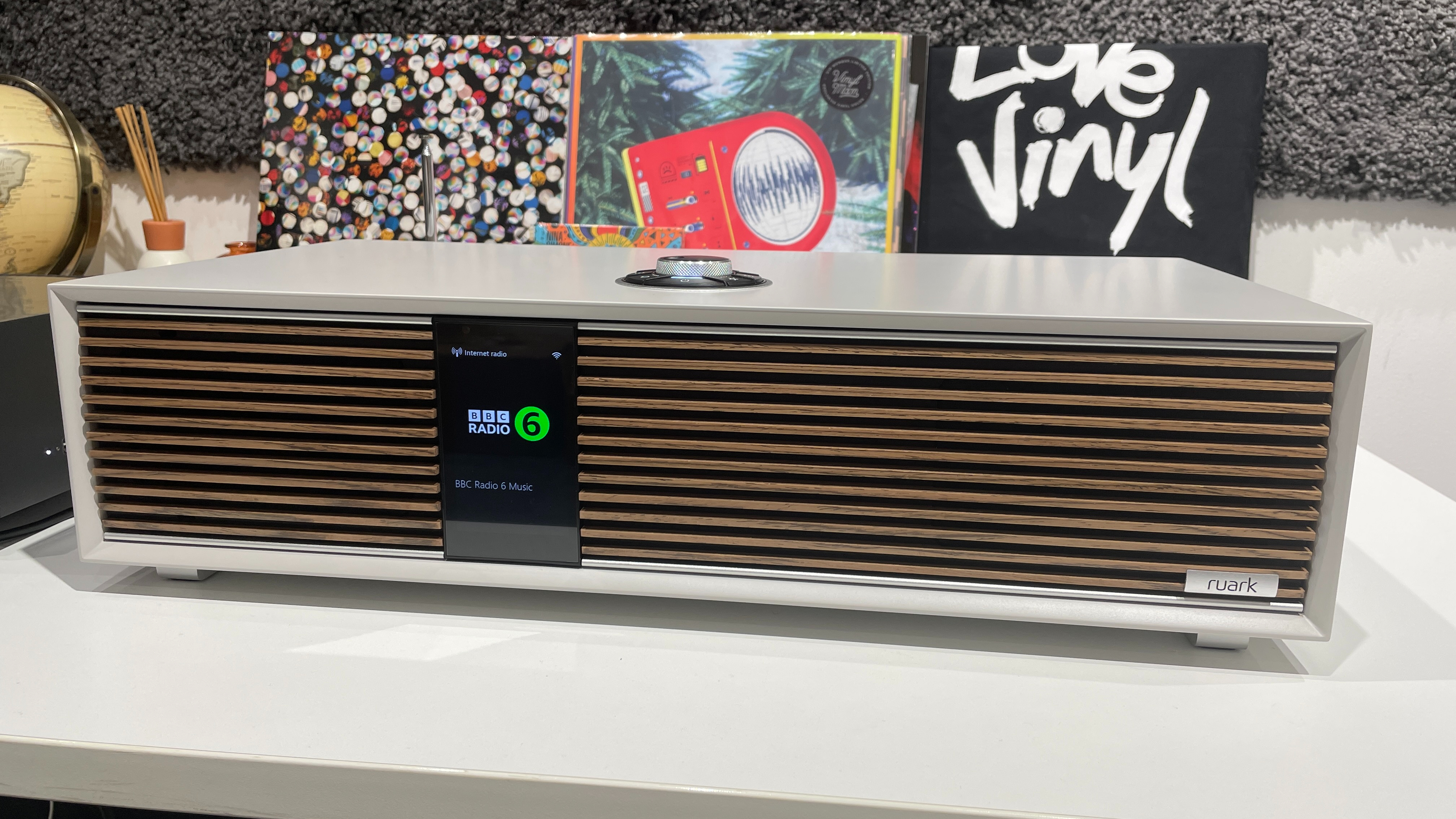
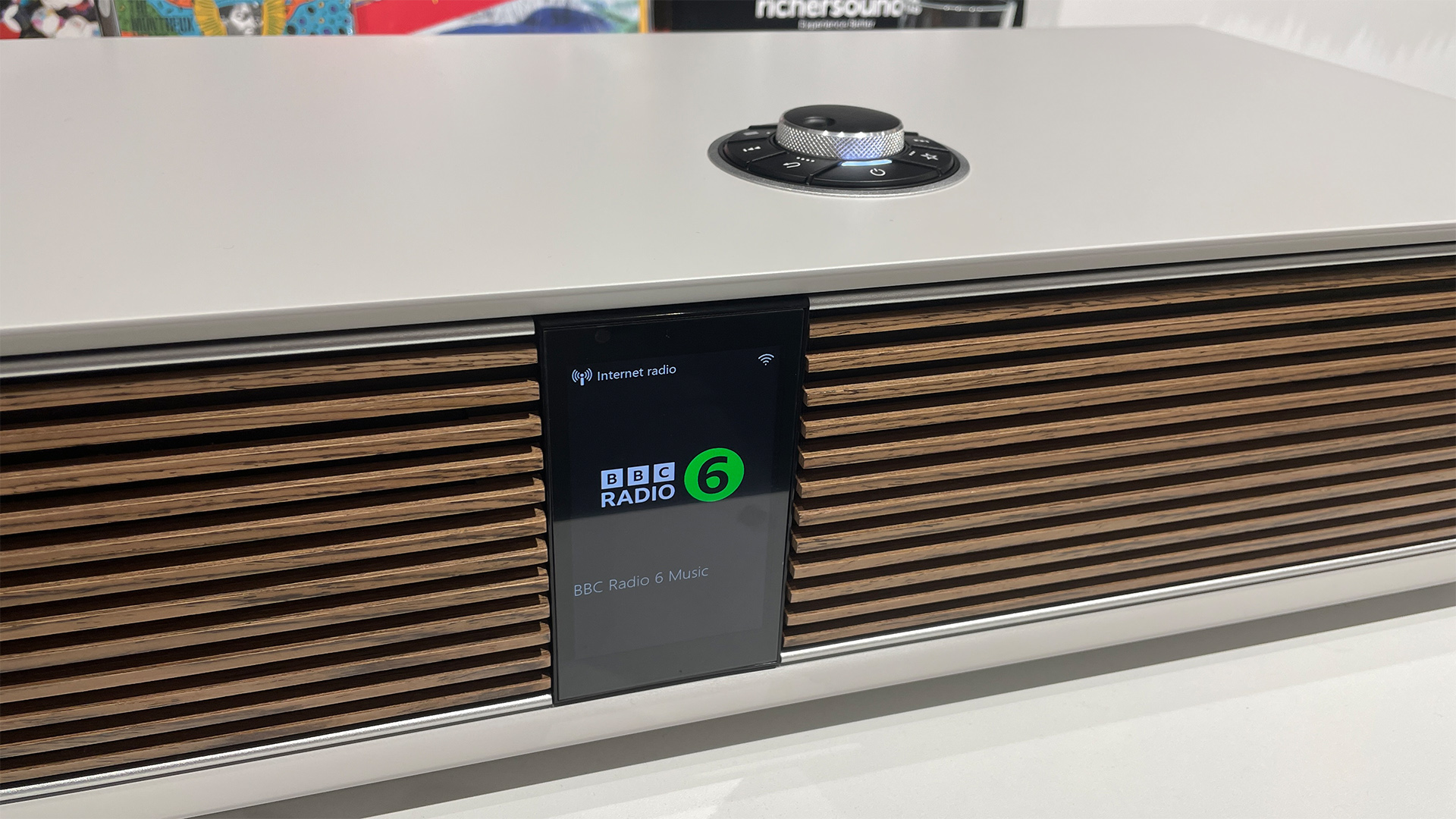
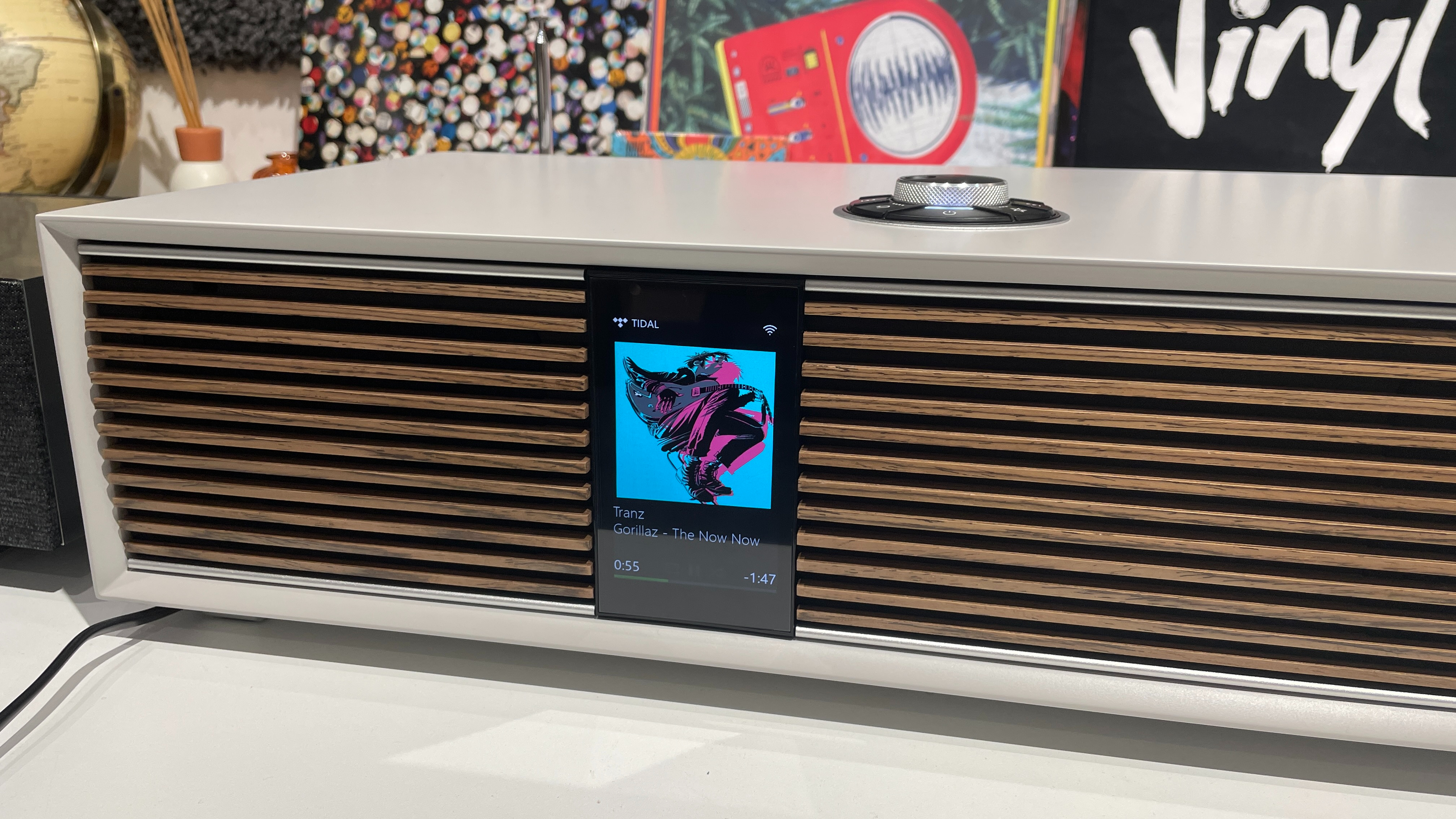
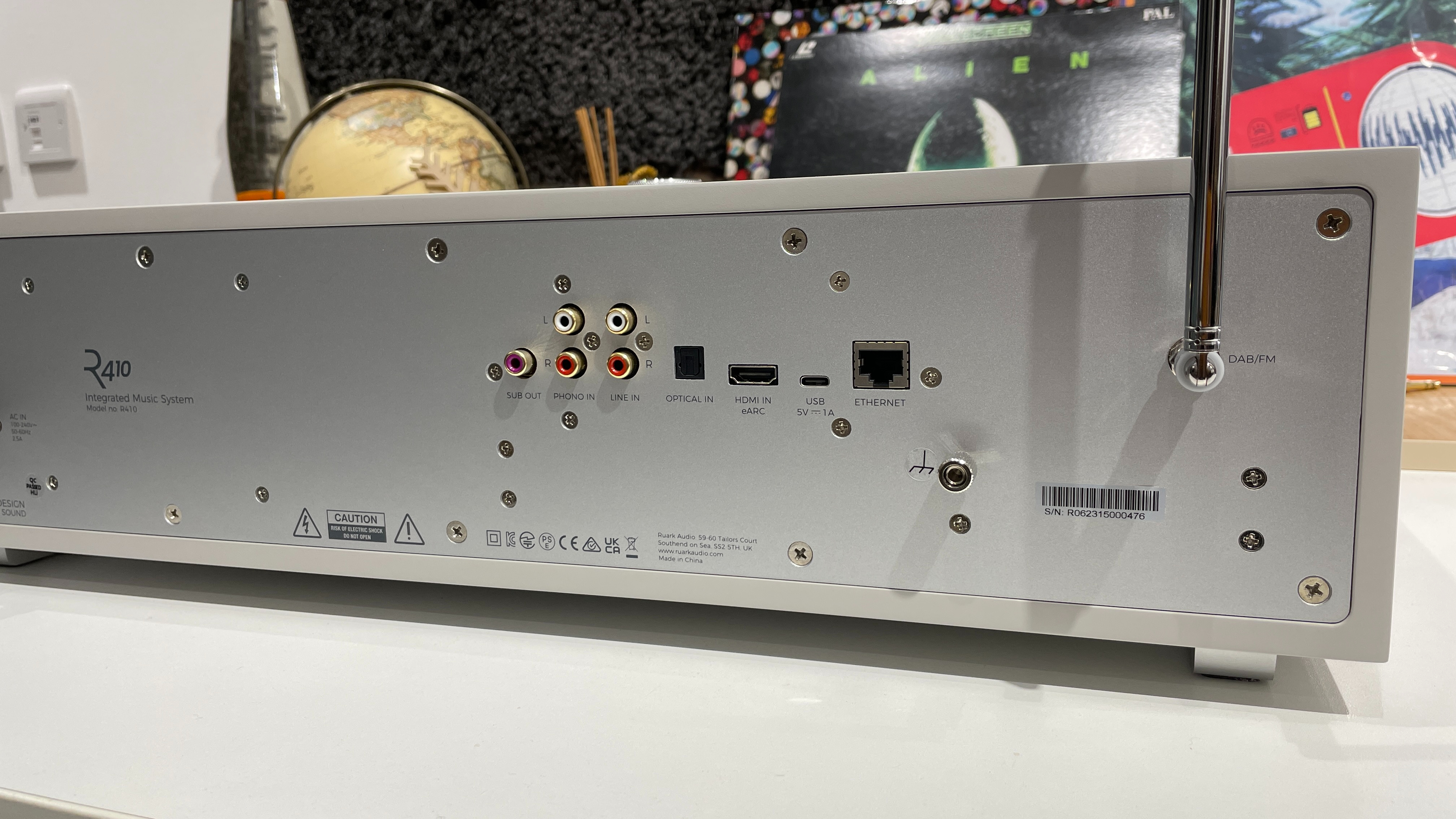
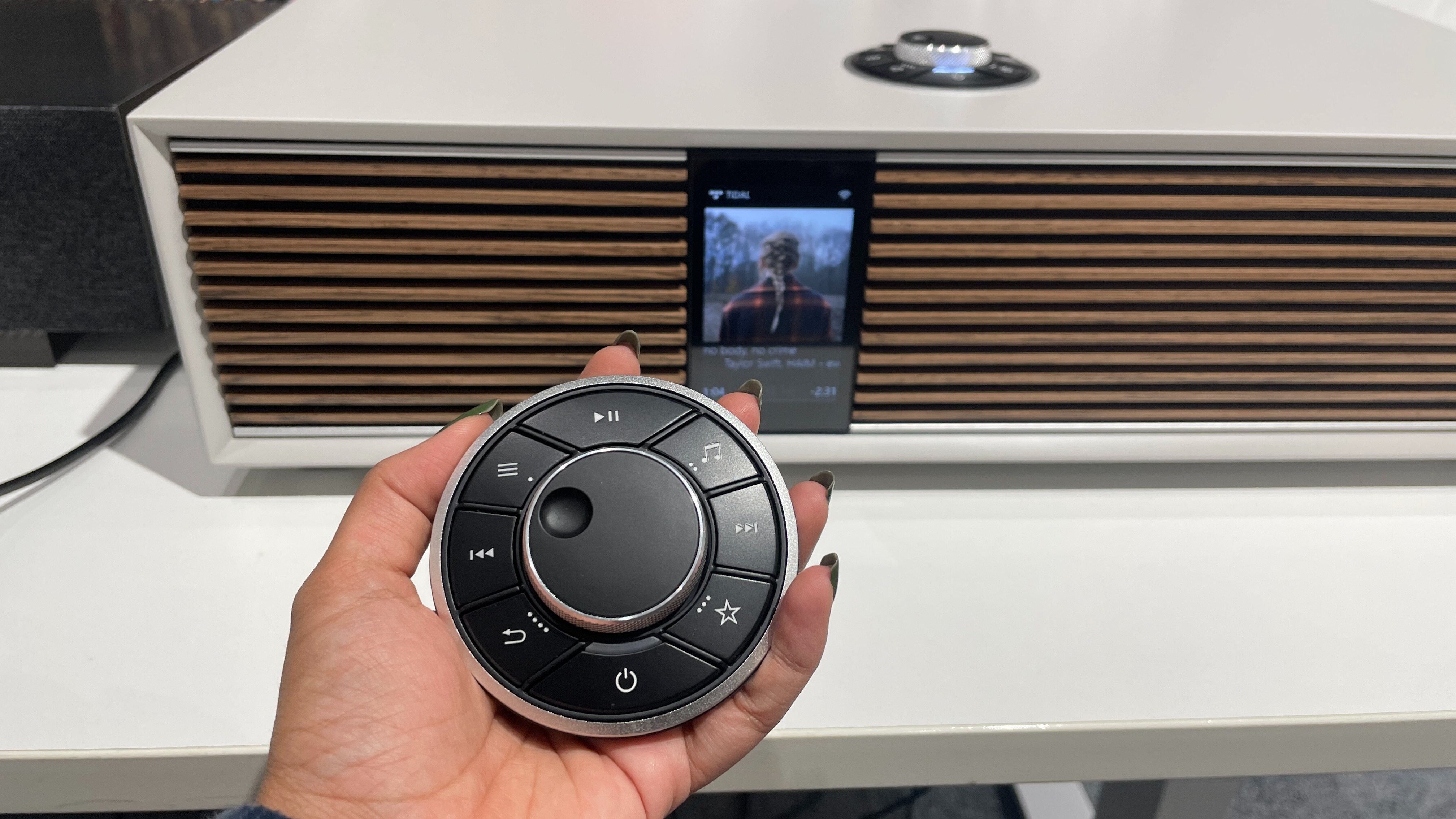
Specifications
Reasons to buy
Reasons to avoid
The concept of an all-in-one music system might seem a little old-fashioned to some, but if you’re looking for something that looks every bit as good as it sounds the Ruark R410 certainly ticks both boxes – and with a moving magnet phono stage onboard you don’t need anything else to connect your turntable either.
The Ruark R410 is available in two finishes – walnut and soft grey – but whichever one you choose it’s guaranteed to attract attention and elicit admiring comments. Build quality is equally impressive.
There’s certainly nothing old-fashioned about the R410’s feature set either. There’s dual-band wi-fi, Bluetooth 5.1 (with support for SBC, AAC and aptX HD codecs), FM/DAB/DAB+ and internet radio, and even HDMI eARC in case you want to use it with your TV as well.
With all those options it could do with more controls on top, and a dedicated control app wouldn’t go amiss, but the 4-inch portrait-style screen on the front is bright and crisp, if a little on the small side.
Behind the wooden grille is a pair of 20mm silk dome tweeters and a couple of 10cm paper cone mid/bass drivers, with two bass reflex ports on the bottom to provide low-frequency reinforcement. They’re all powered by 120 watts of Class D amplification.
The result is remarkably consistent no matter the source, offering a genuine sensation of unity and singularity to its sound, and no obvious sensation of crossover. The sonic performance is positive and confident without being brash or overly assertive, although it’s worth knocking a couple of dB off the bass output in the EQ settings.
It’s perhaps not the most dynamic sound you've ever heard, and it doesn’t create the most expansive soundstage either, but there’s decent momentum and good rhythmic expression, and detail levels are high across the whole frequency range. It has no problem filling a room with sound either, even if it can’t quite reach the very loudest volume levels.
Read the full Ruark Audio R410 review
Also consider: If you’ve got a few more quid to spend, the Sonus Faber Omnia and Cambridge Audio Evo One are worth a look, but if you’re not into the wood finish and already have a phono stage, Naim’s excellent Mu-so 2 is a fine alternative for an all-in-one system.
The best budget standmounts
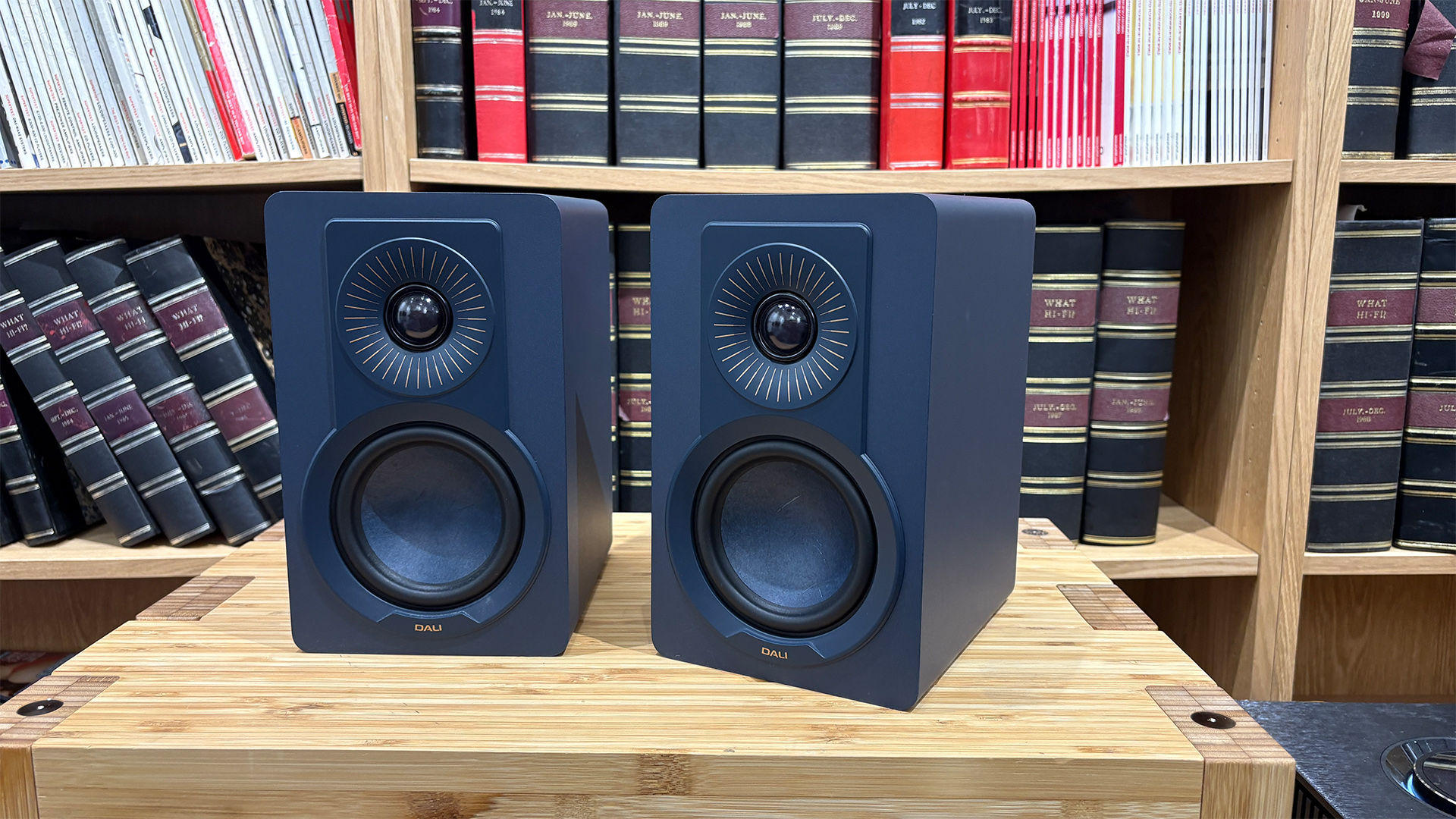
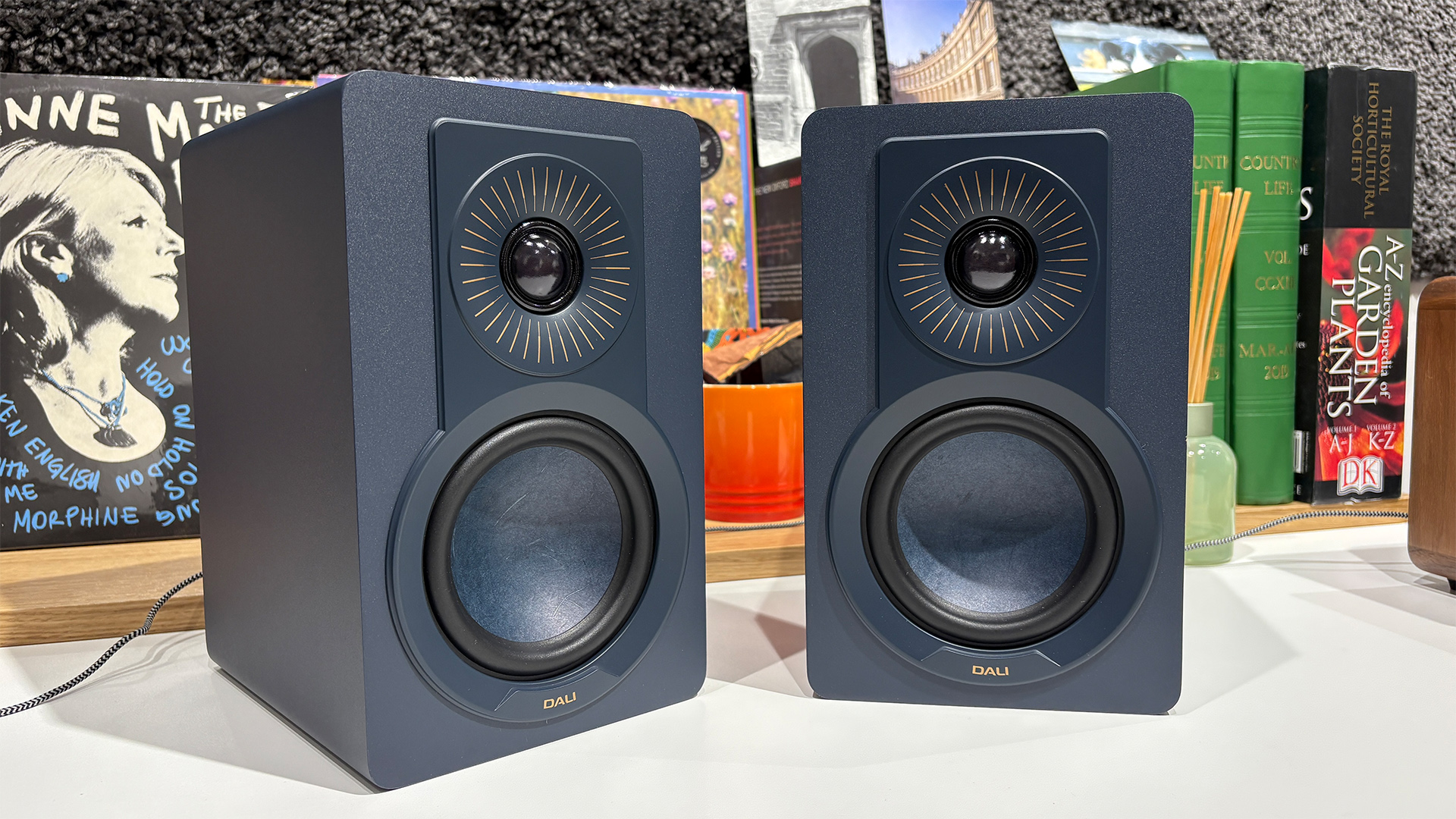
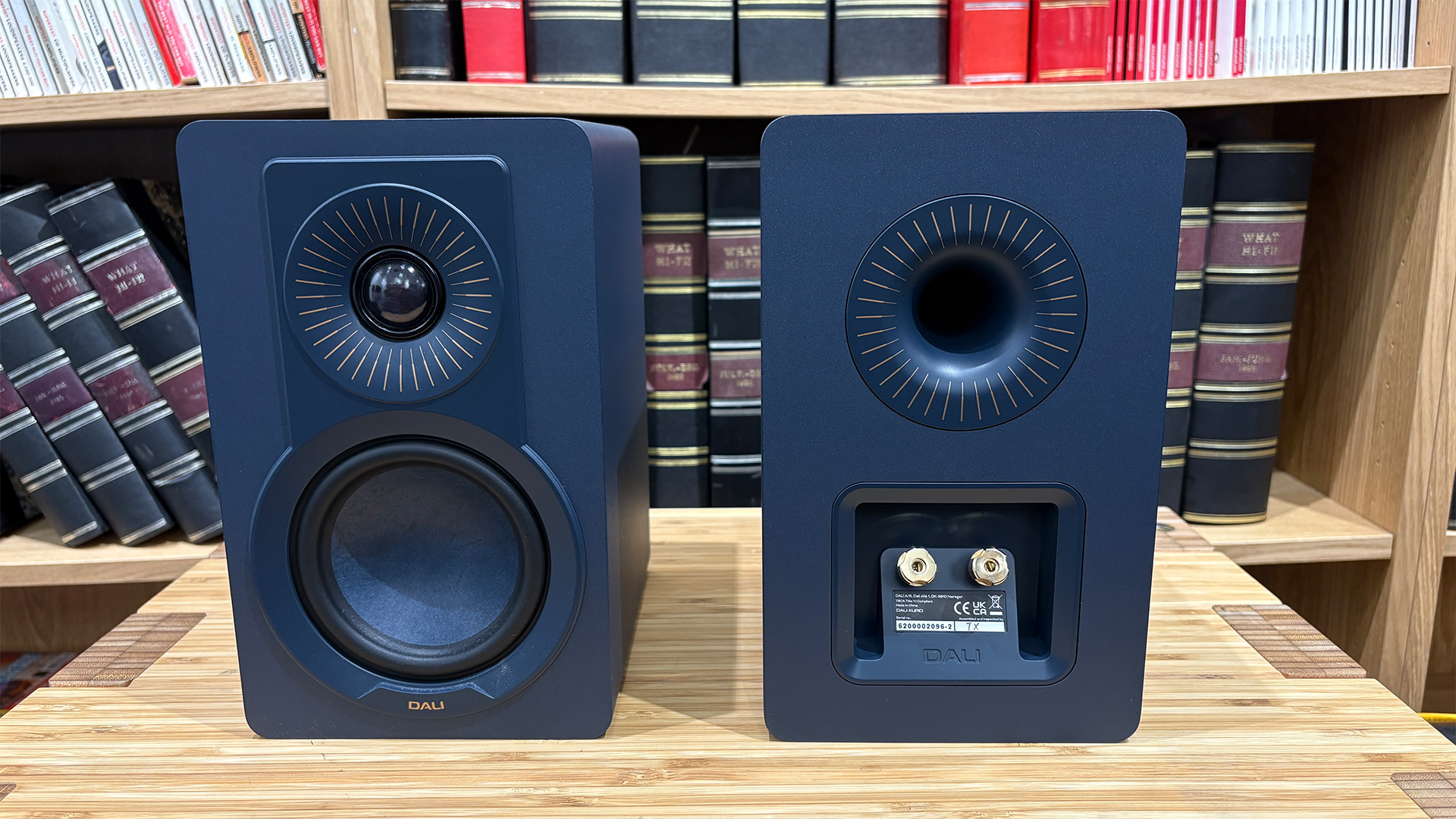
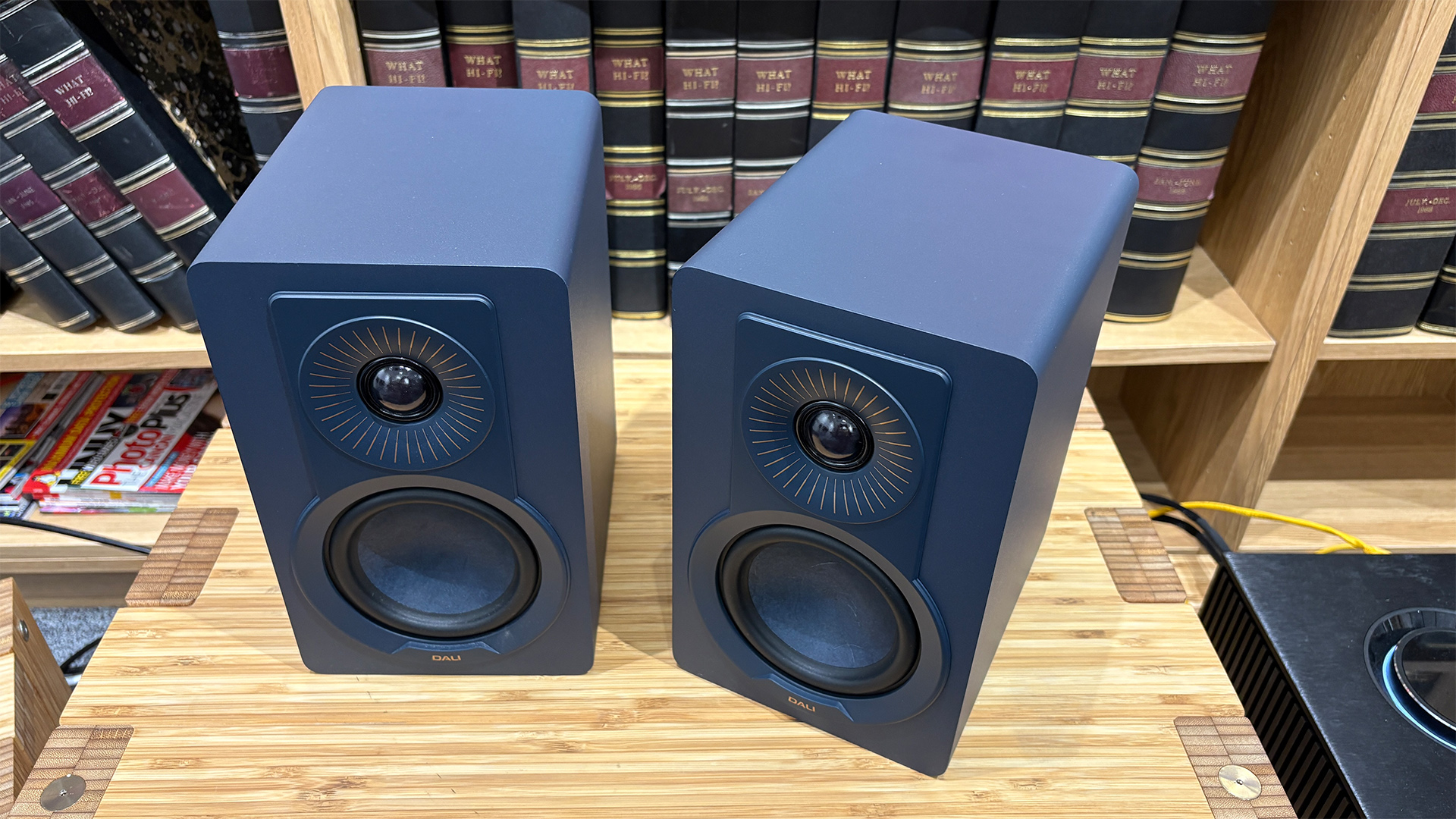
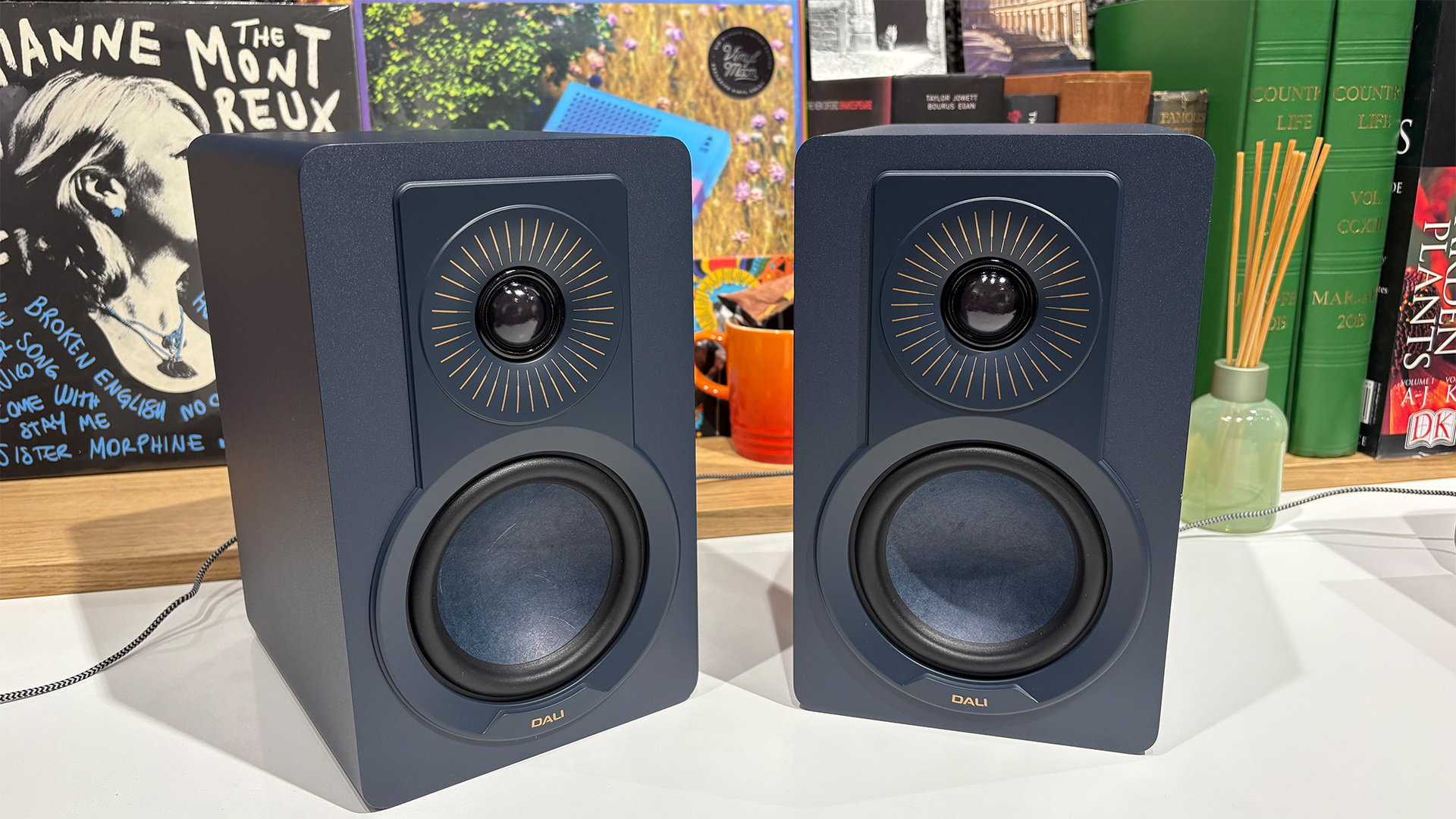
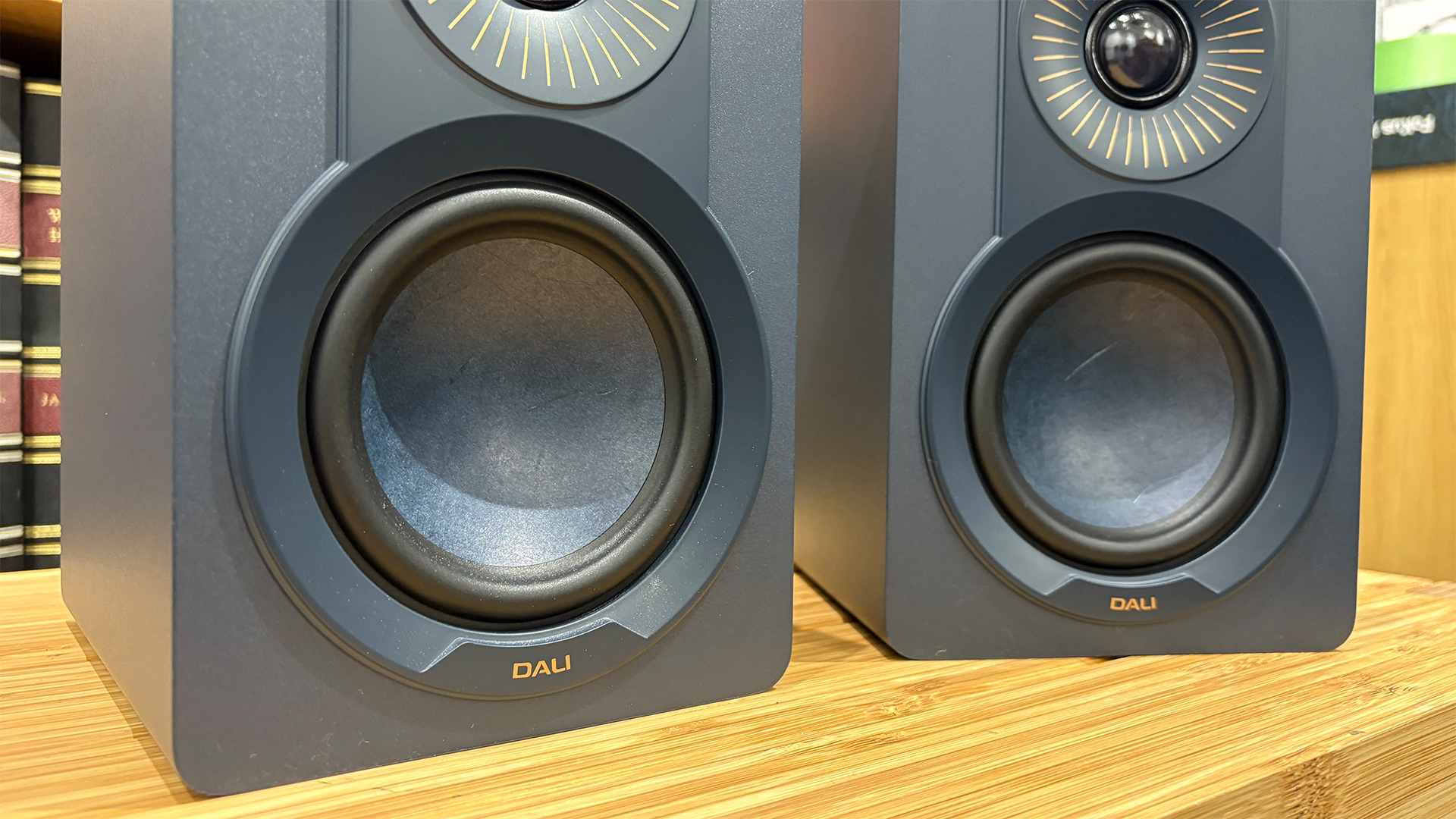
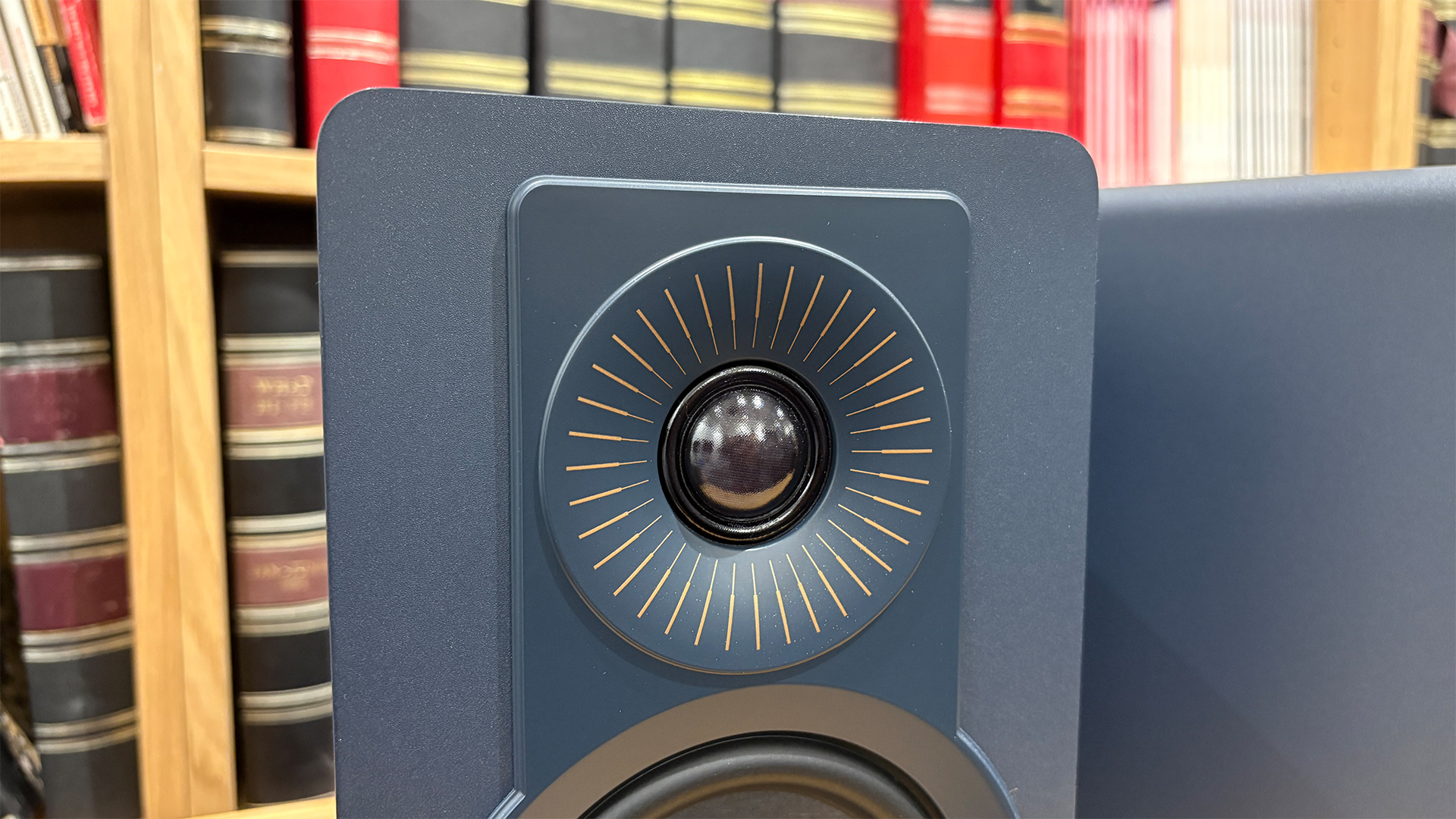
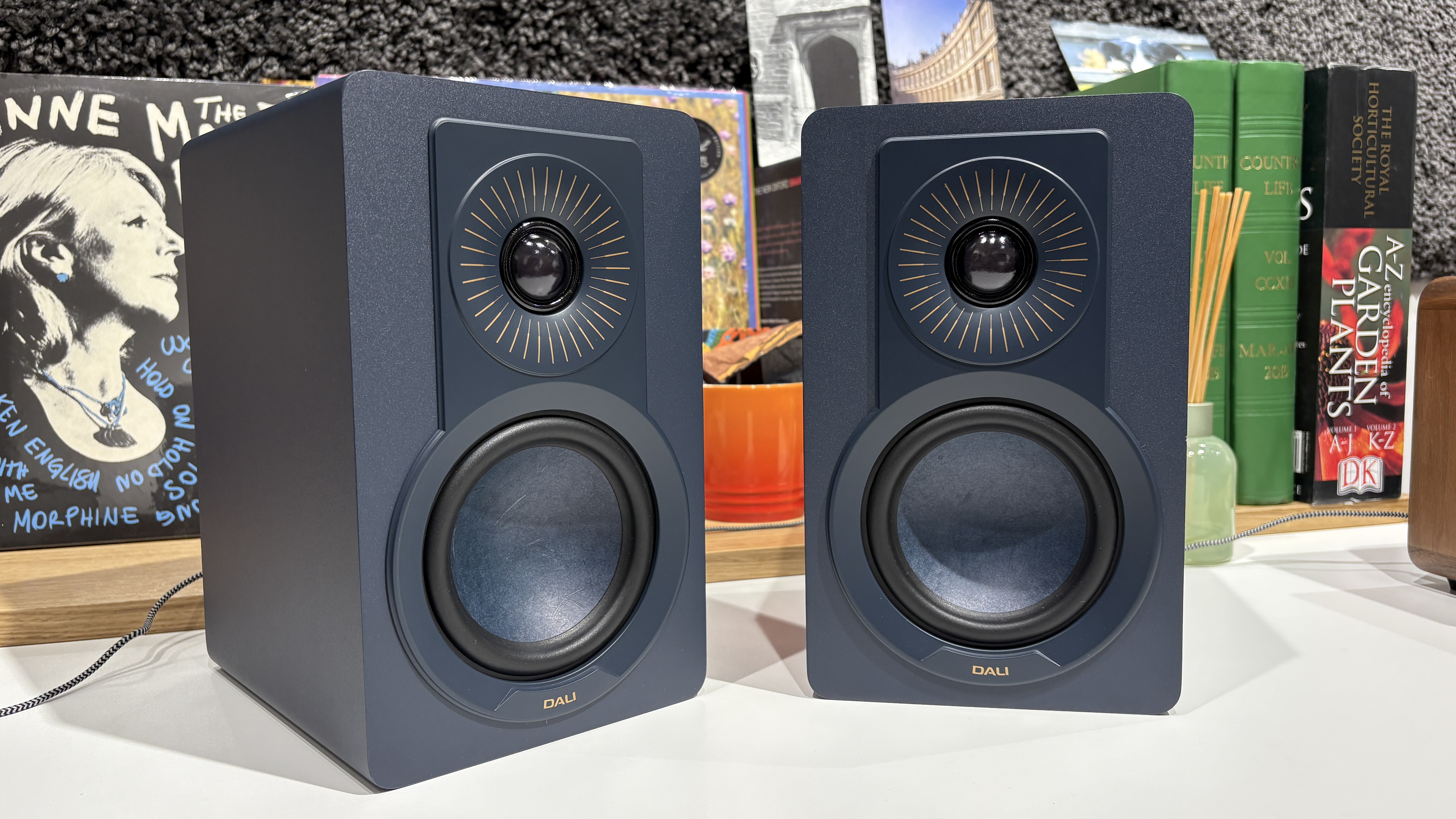
Specifications
Reasons to buy
Reasons to avoid
If you have a system, or a full separates rack covering your amplification and phono stage needs, but are short on space and cash, then the Dali Kupid are the speakers we recommend to any vinyl fan right now.
The tiny, Award-winning speakers have been designed by Dali to be a gateway to “proper hi-fi” for newbies and buyers on a very strict budget.
Standing at 23.7cm tall and 14cm wide, they’re not quite as small as the Ruark MR1 Mk3 further up this list, but they are still incredibly compact compared with the other options in this guide. The only speakers we have tested recently that are even smaller are the Neat Iota II, but they cost a lot more.
Despite their low price and size, the Kupids pack a wealth of classic Dali hardware and design elements. Remove the magnetic grilles and you’ll find a 26mm “ultra-light” soft-dome tweeter and an 11.4cm mid/bass driver.
As is the case with many Dali speakers, the driver is made from a paper and wood-fibre material. The dished tweeter waveguide is also shaped to help it better integrate with the midrange driver and features a custom crossovers designed to help improve timing.
Finally, there is a “dual flare” reflex port at the back of the cabinet, which works to streamline airflow, reduce turbulence and improve bass performance.
Specifications aside, what sets the Kupids apart and earns them a place on this list is their surprisingly capable performance. Powering them up, we found they perform wonderfully when matched with price-appropriate equipment, which in our case included the WiiM Amp Ultra system and Arcam A5 and Rotel A8 amps paired with a Pro-Ject Primary E turntable.
Whether it was K-pop, trip-hop or soft rock, the speakers delivered a fun, punchy performance. Every track held a lively, entertaining and rhythmically agile character with solid dynamics and detail.
Read the full Dali Kupid review
Also consider: If you're not completely sold on the Dali's and can accommodate something a little bigger, you'd do well to check out the Elac Debut B5.2. Though they're getting long in the tooth, the stellar value standmounts are still a great budget option capable of delivering a detailed and organised sound.
The best premium standmounts
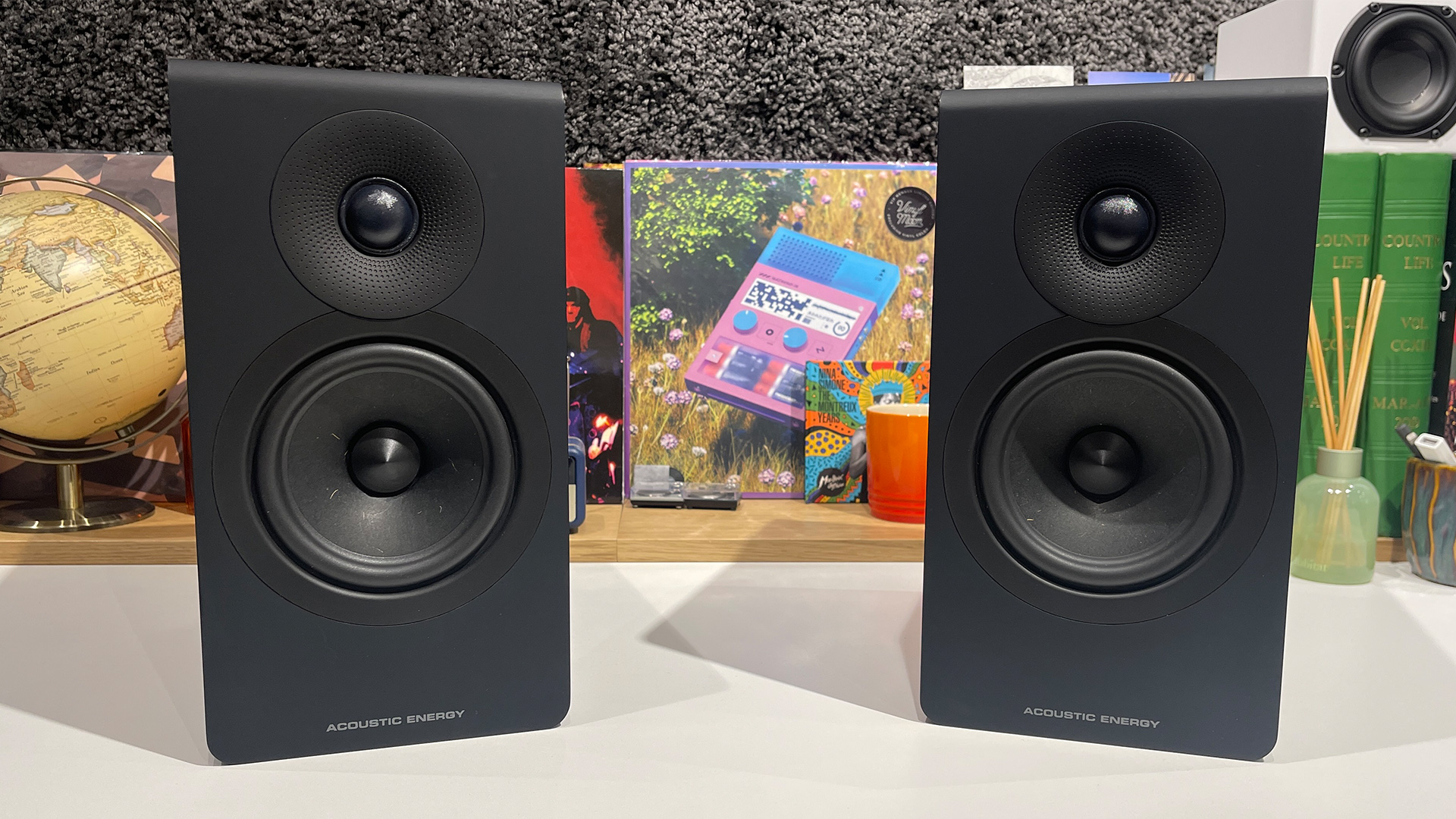
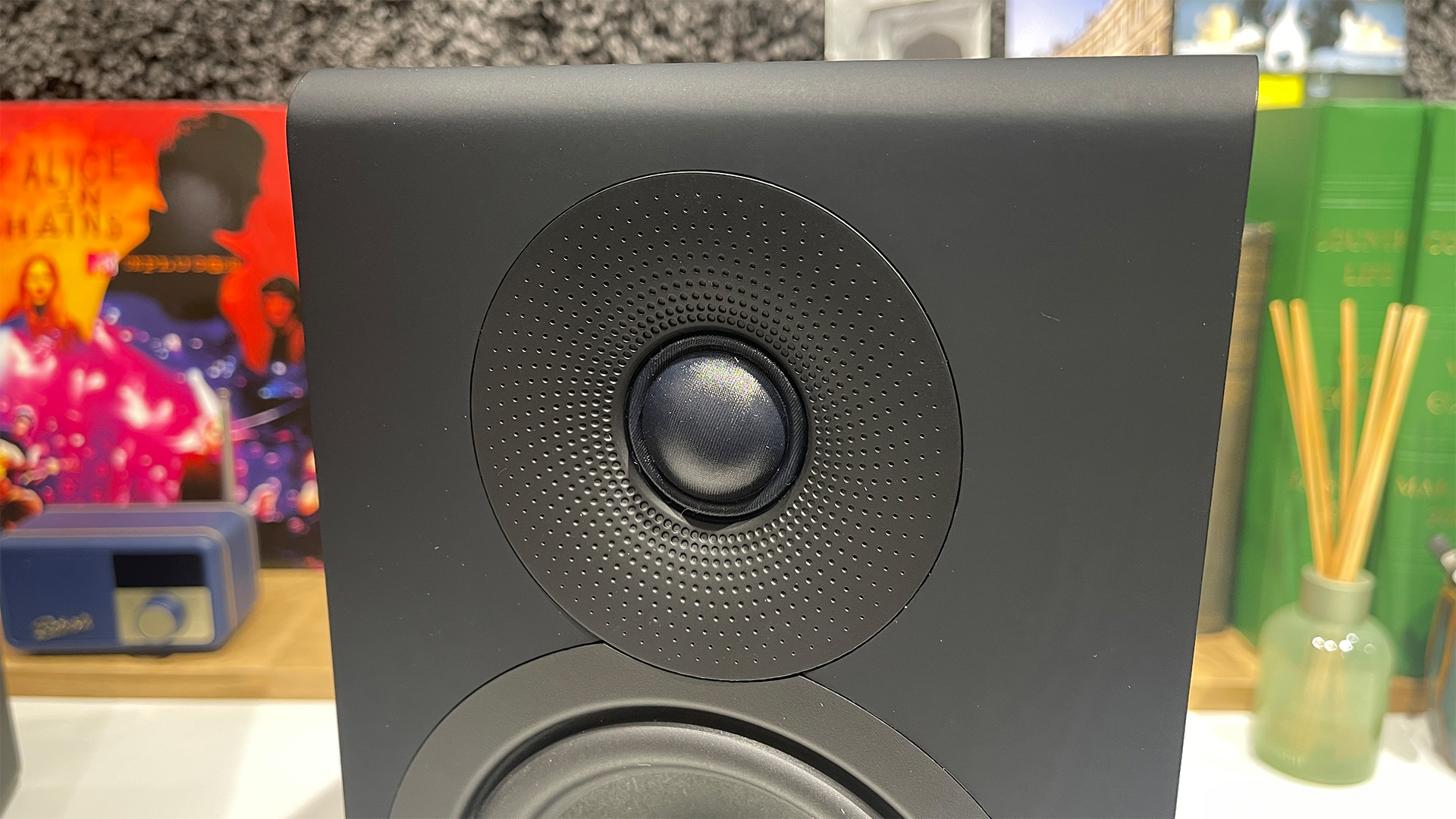
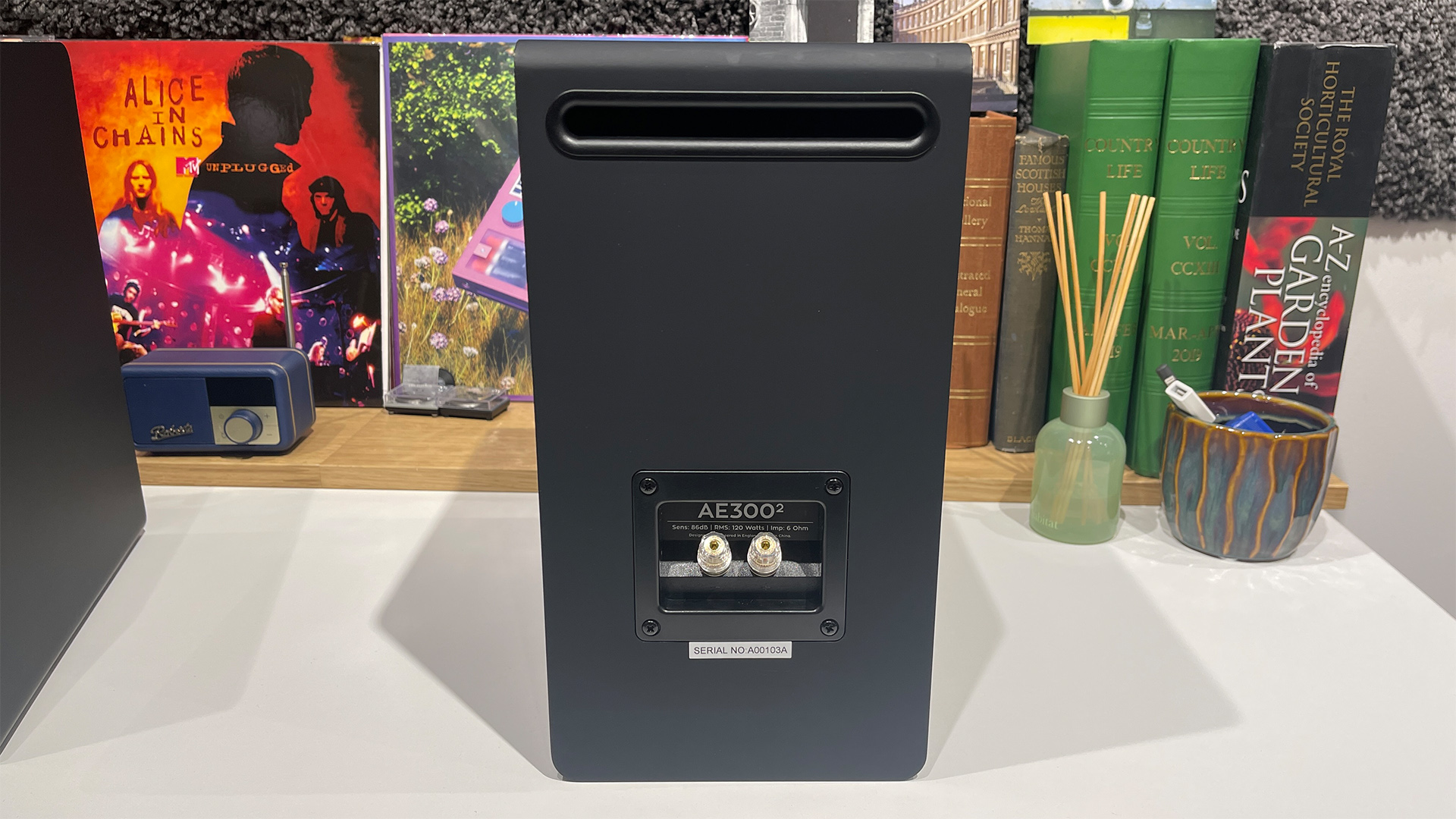
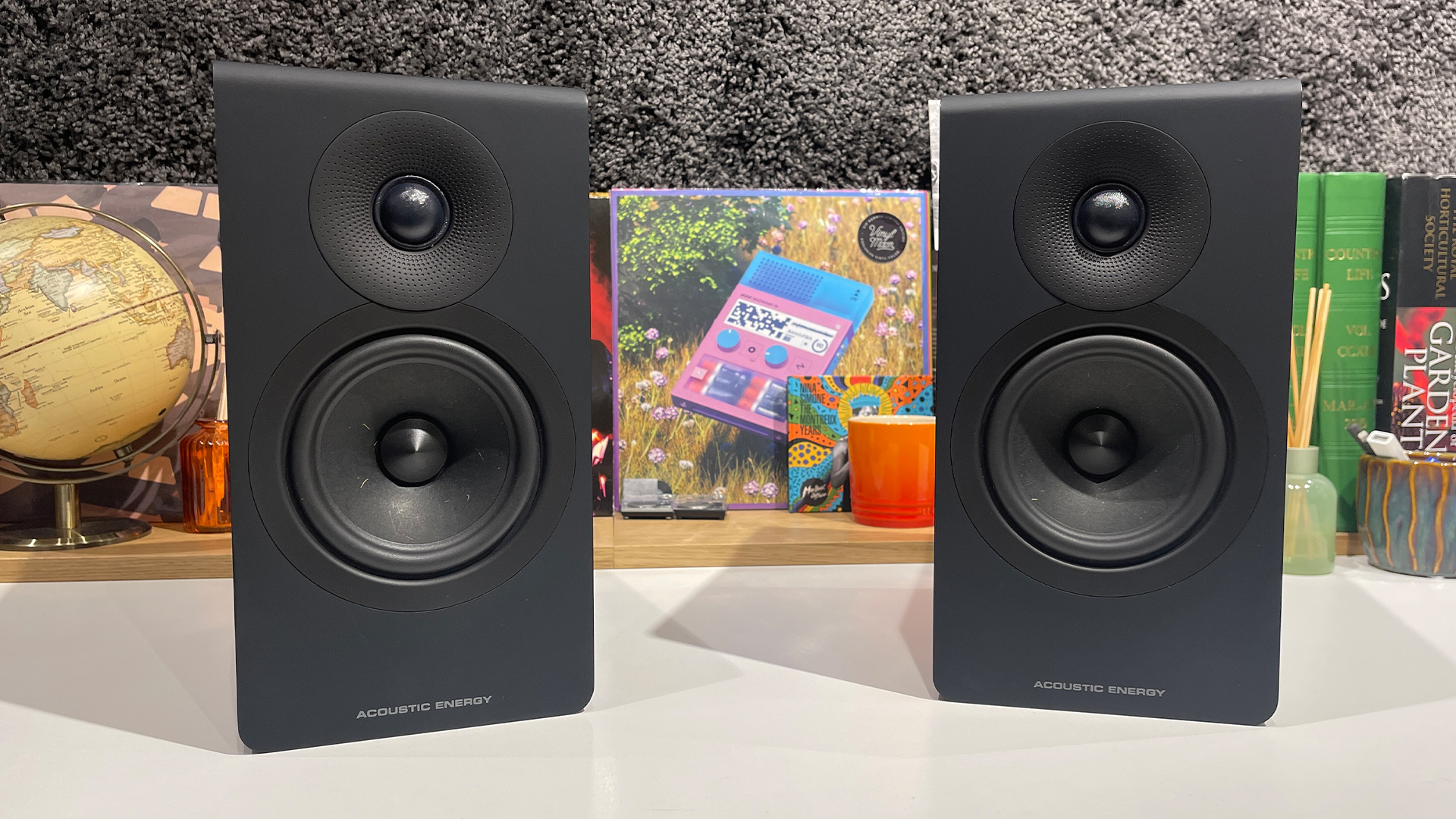
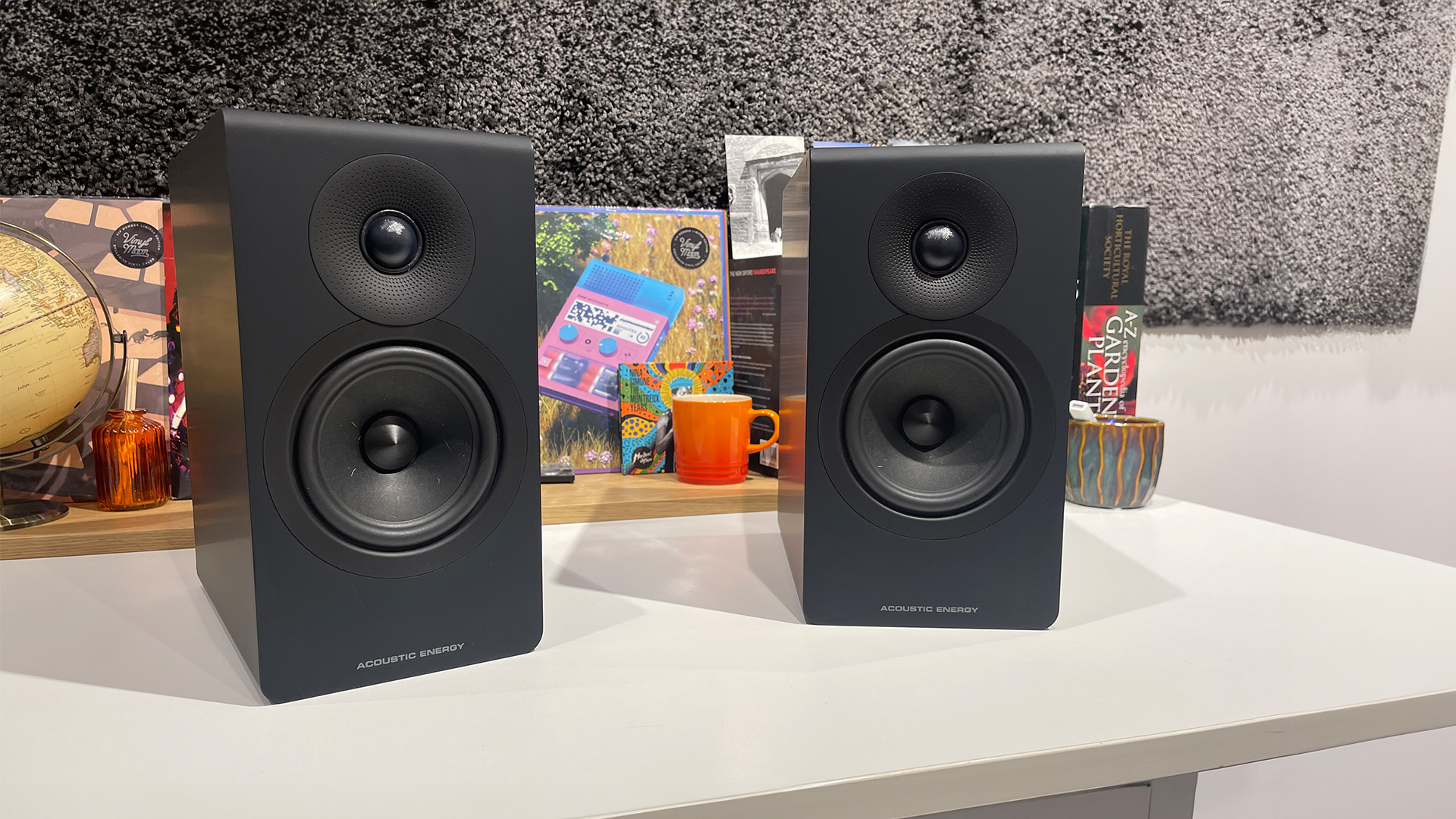
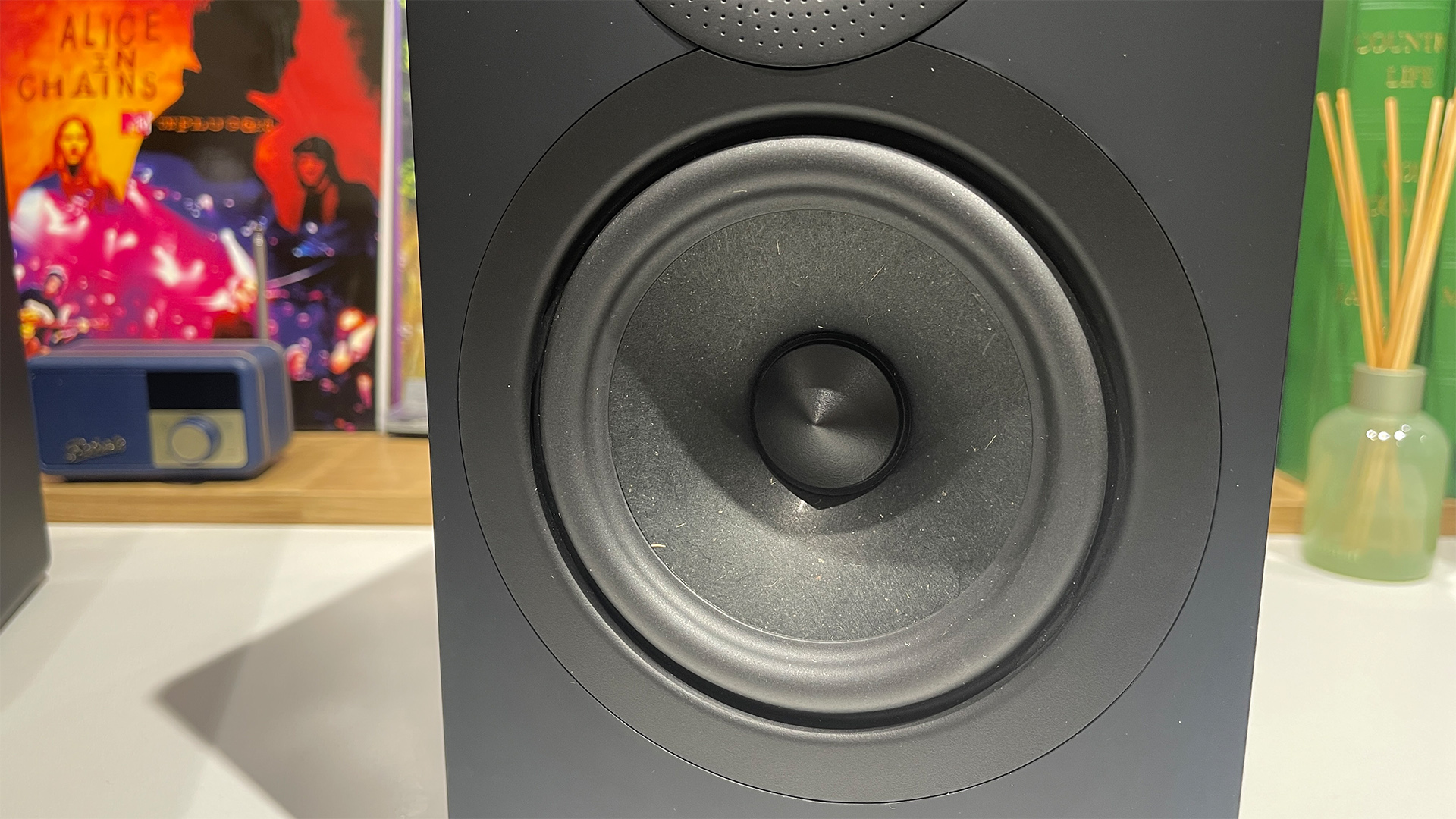
Specifications
Reasons to buy
Reasons to avoid
If you’re looking for standmounts a little more serious to integrate into your system, we can strongly recommend the Acoustic Energy AE300 Mk2.
The passive speakers are the best standmounts we have tested in their price range, and an easy recommendation to any buyer who already has their phono stage and amplification sorted.
The unassuming-looking units feature a wealth of custom hardware and design elements.
For starters, despite looking very unassuming, the speakers have a coconstrained layer construction that combines 18mm MDF with bitumen in a bid to give the drivers a stable foundation to work off.
Under the hood, the two-way speaker combines a large 29mm fabric-dome tweeter with a 12cm paper/coconut-fibre mid/bass, which is reminiscent of the designs we’ve previously seen on Acoustic Energy’s high-end Corinium range.
The specifications make them a solid option for step-up turntables, such as the Pro-Ject Debut Evo 2 or even the Rega Planar 3/RS, and most price-compatible stereo amplifiers (in our case, the Arcam A5+ integrated and the Rega Brio Mk7).
Despite strong competition from KEF, Bowers & Wilkins, Fyne, Dali and others, when we tested the speakers in our listening rooms, the AE300 Mk2 proved to be a slow-burning hit that grew on us the more we listened to them
At first, we found their sound competent, if a little unremarkable; but as we played more and more music, we came to appreciate the speakers’ balanced nature – to the point that it felt almost like a chore going back to many of their rivals.
Indeed, that nicely balanced sound, which retains oodles of detail and delivers a capable, controlled bass, earned them a What Hi-Fi? Awards Product of the Year trophy, and their place on this list.
Read our full Acoustic Energy AE300 Mk2 review
Also consider: If you aren't sold on the AE300 Mk2, then there are two solid alternatives also worth considering. The KEF Q3 Meta offers a nicely mature, even-handed sound that will delight most music fans. Alternatively, the Monitor Bronze 50 7G are also very capable, offering a precise, but slightly more uptight, performance during our testing.
The best budget floorstanders
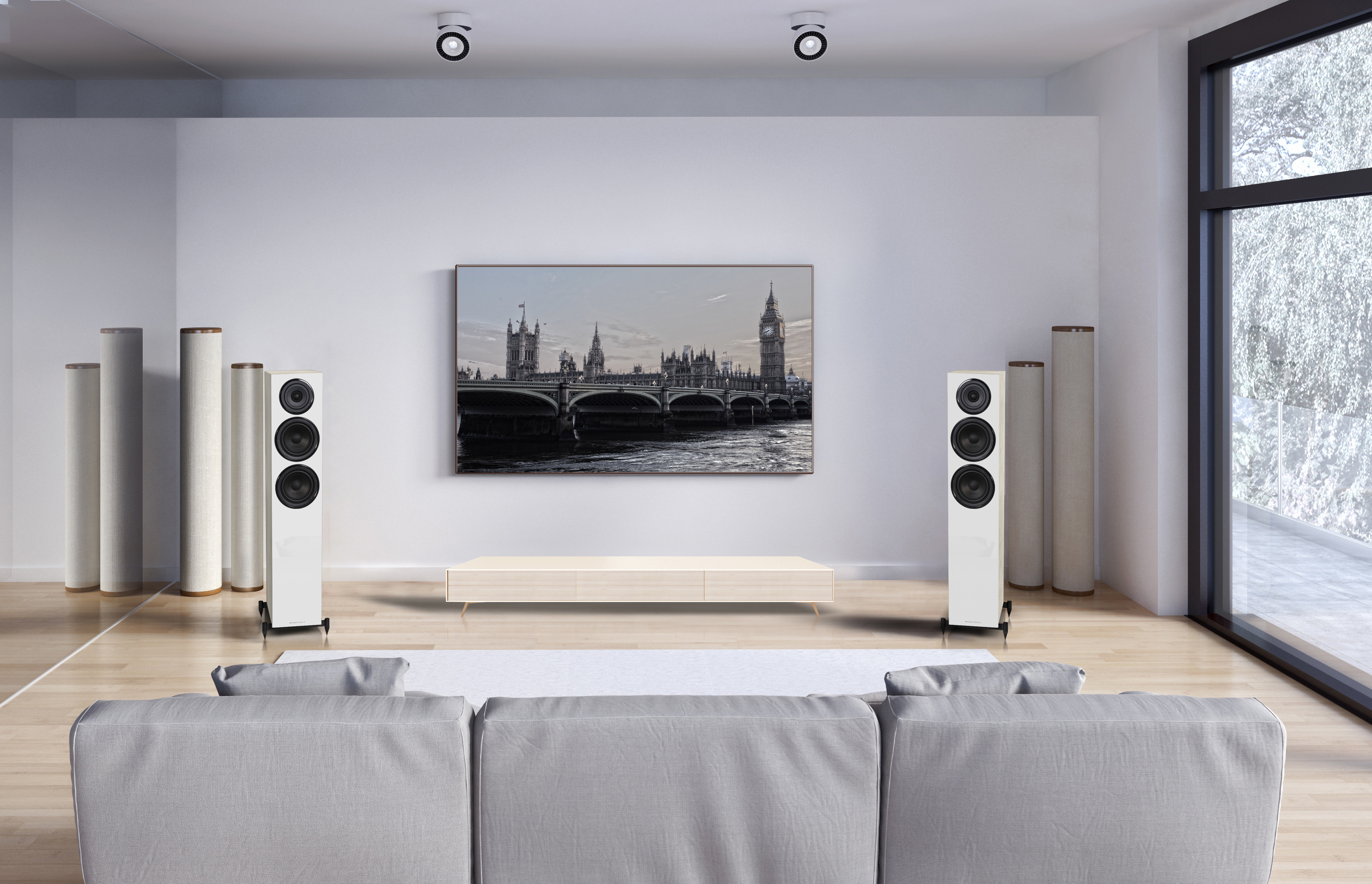
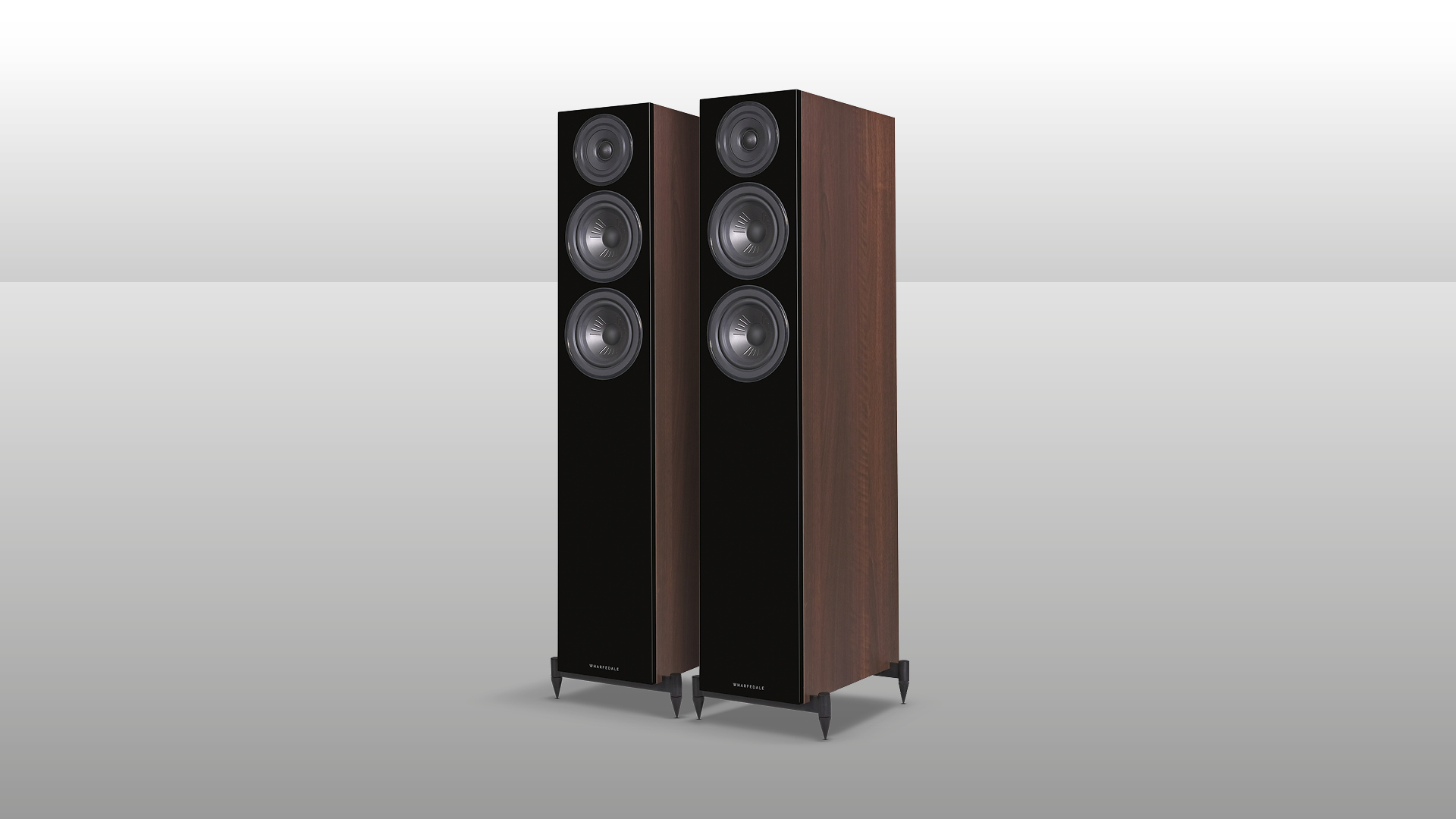
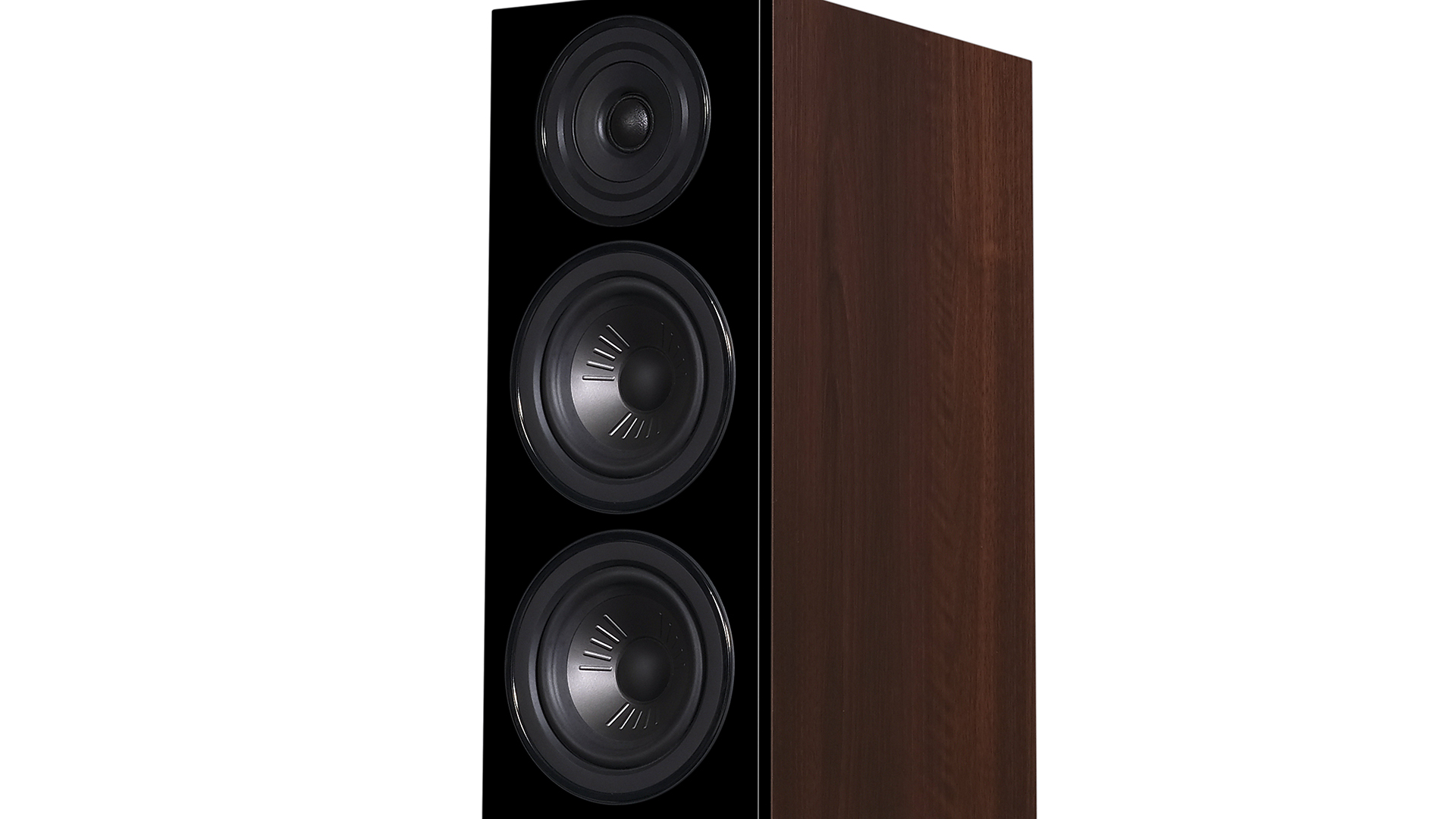
Specifications
Reasons to buy
Reasons to avoid
It’s tough to make a truly talented floorstander and sell them for an affordable price, but that’s exactly what Wharfedale has managed with the Diamond 12.3. And while a newer follow-up has since launched, in the shape of the Diamond 12.3i, until we get those in for review, if you’re looking for a pair of refined, entertaining and well-built turntable speakers, these are a superb, Award-winning buy.
At 98cm tall, the Diamond 12.3 aren't a particularly imposing pair of floorstanders, so they'll fit into most spaces with relative ease, but you will still need to give them a bit of room to breathe.
As for build quality, the cabinets are carefully crafted with a traditional straight-edge design and a tidy feet arrangement. The 12.3 are available in four finishes – black, walnut, white and a classy light oak – all of which belie their relatively modest price tag.
They utilise a 2.5-way design where the upper 13cm driver covers everything from midrange downwards, leaving the second one to reinforce the lows. A carefully shaped faceplate leaves as much of the 25mm tweeter exposed as possible, and the contouring closest to the dome is there to provide a small degree of horn loading.
Thanks to a relatively sophisticated crossover, the Diamond 12.3 have a sensitivity of 89dB/W/m and a minimum impedance of 5ohms, which means these floorstanders are unlikely to give any decent price-compatible amplifier a problem.
The Wharfedale Diamond 12.3 deliver a lovely layered sound that’s brimming with detail and dynamic nuance. They resolve a large amount of information but also present it in an organised and controlled way.
The drive units are well integrated, delivering an articulate and expressive midrange, while the low end is agile, satisfyingly rich and textured, with enough weight to satisfy without spoiling the balance of the presentation.
Crank up the volume and these speakers don’t complain, with punch and power when required, but also a level of subtlety that’s rare to find in a floorstander at this price. They also sound good at lower levels, so you don’t have to push them hard to bring them to life.
Read the full review: Wharfedale Diamond 12.3
Also consider: The fantastic Dali Oberon 5 and refined, spacious B&W 606 S3 are great alternatives if you want even bigger sound and can afford the higher price tags for your turntable set up.
The best premium floorstanders
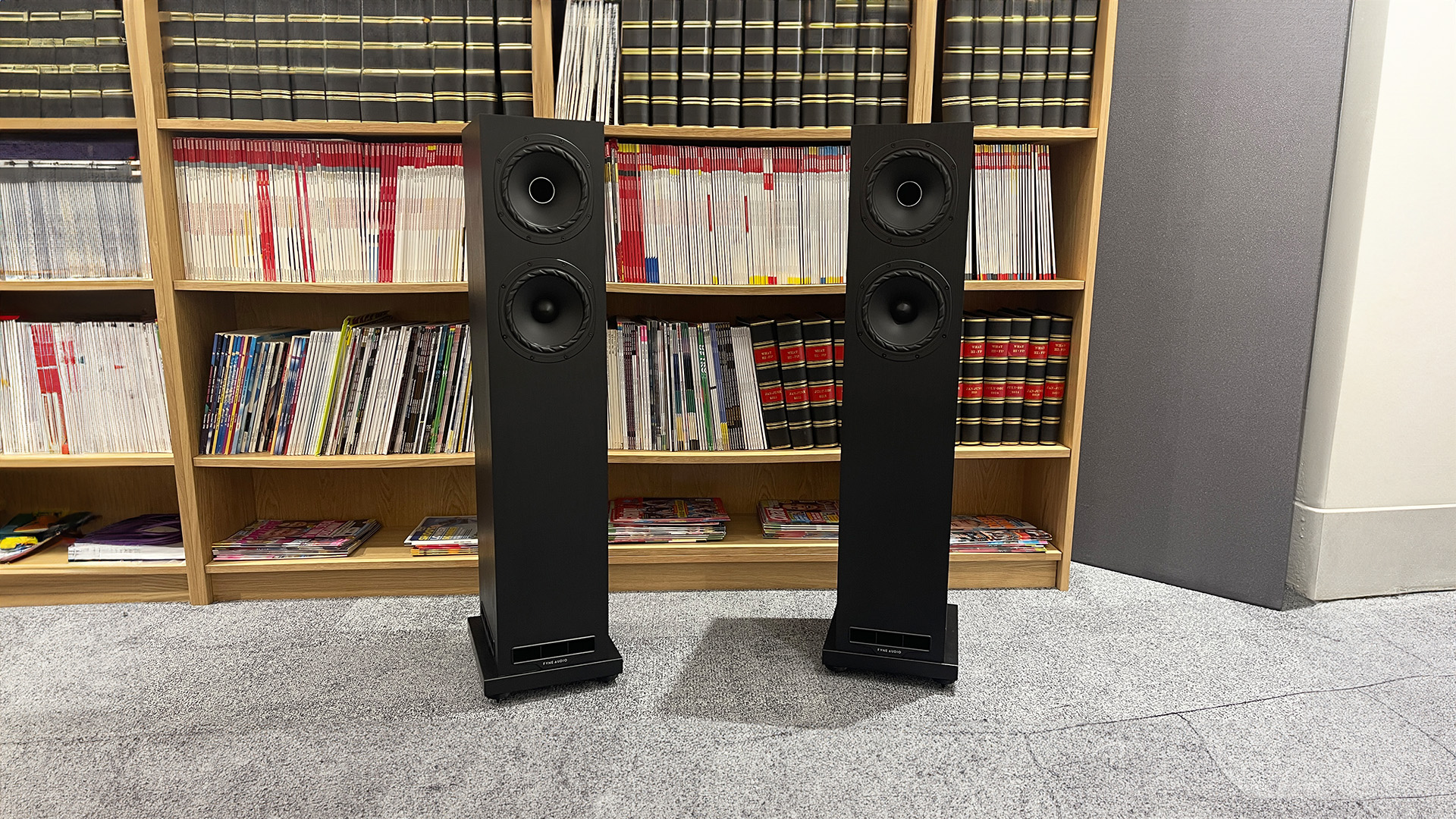
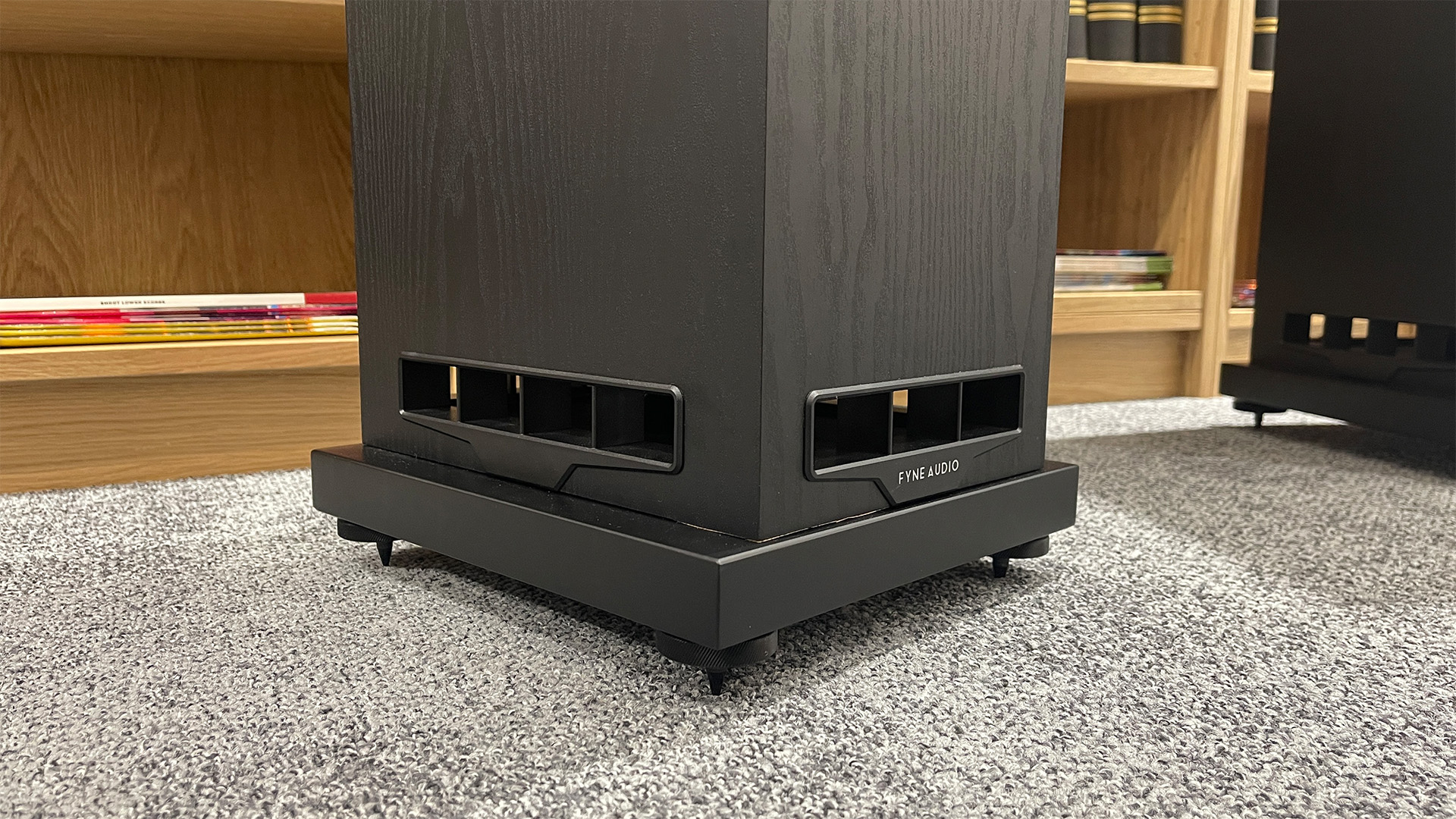
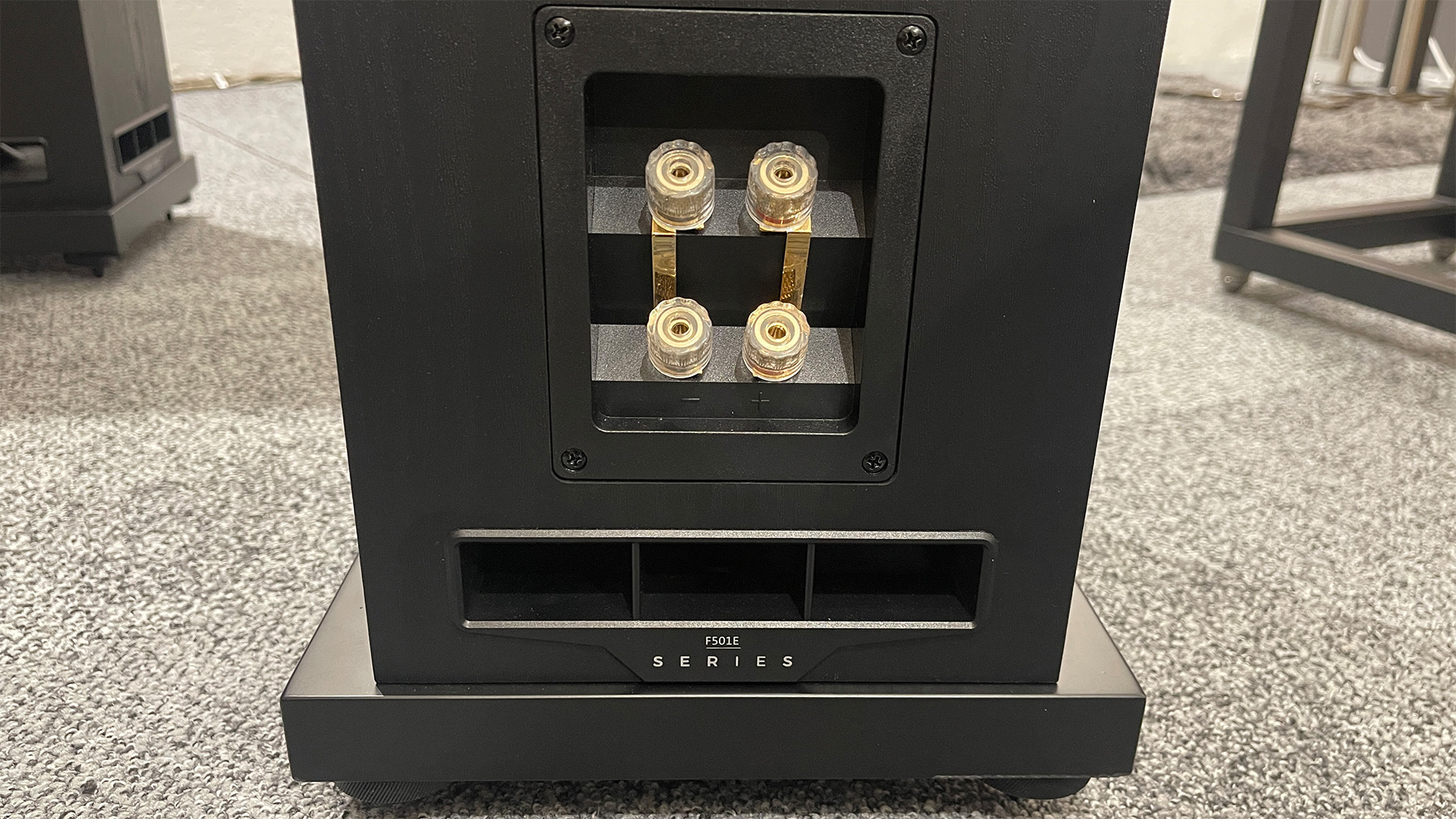
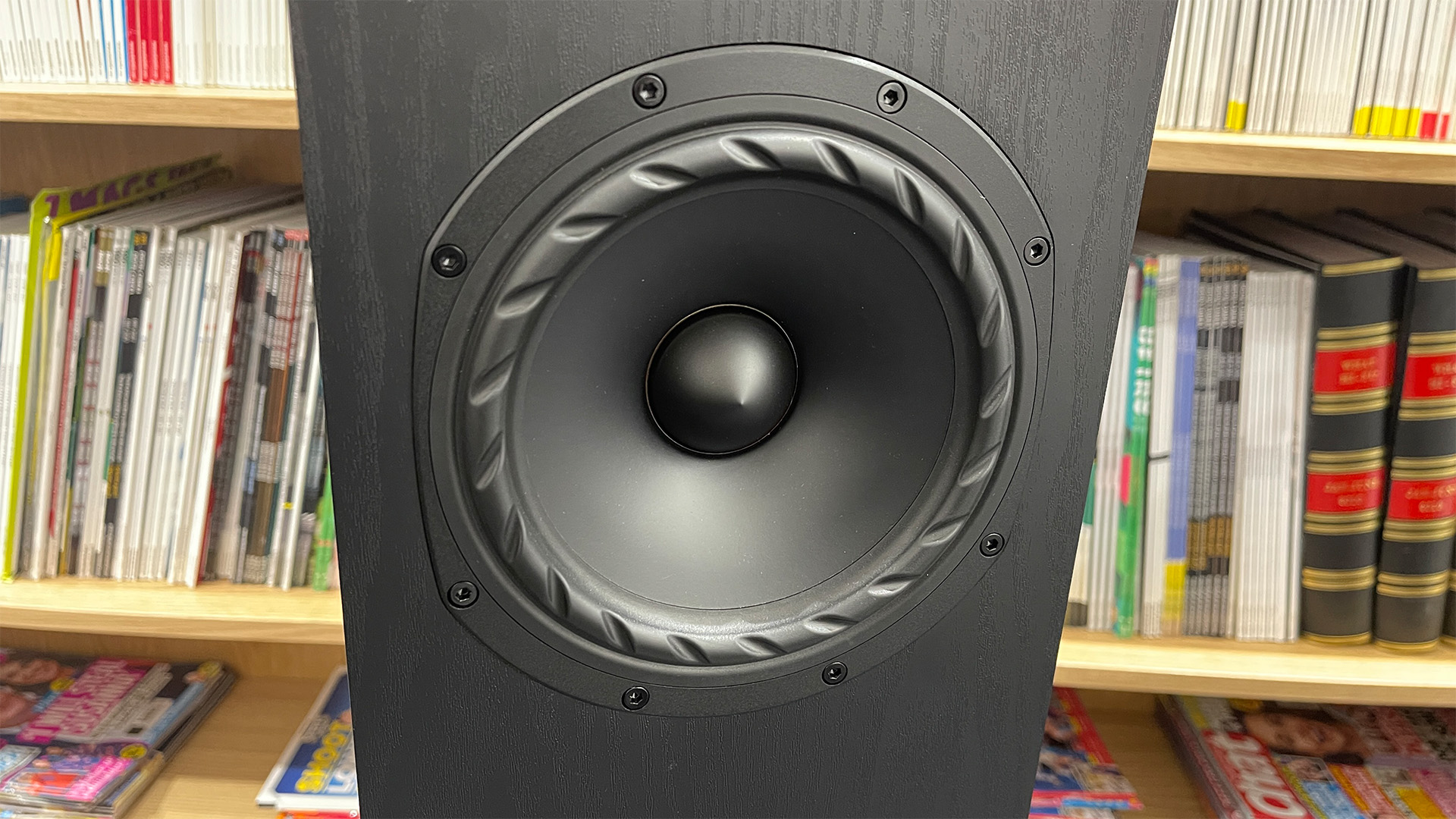
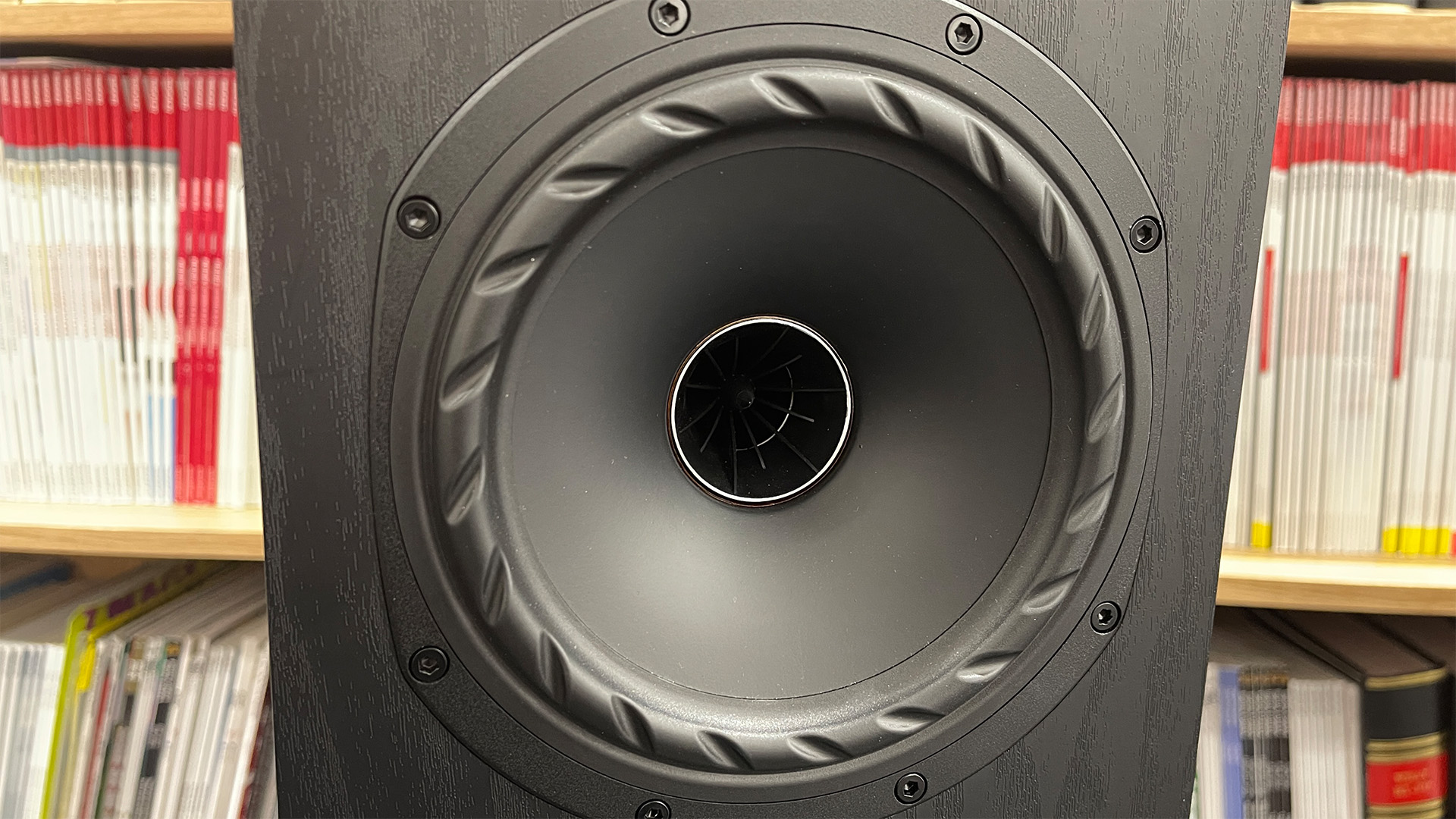
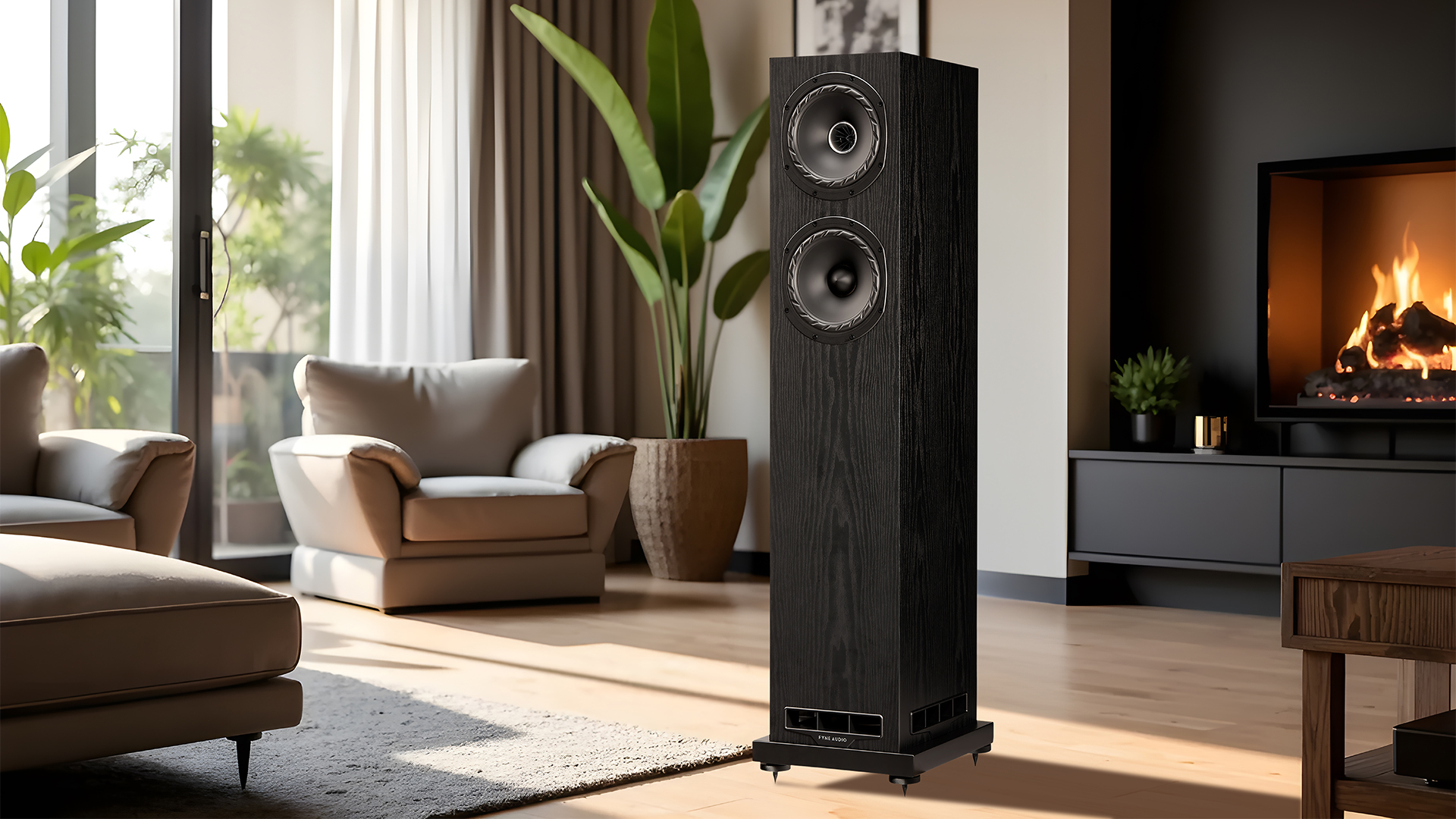
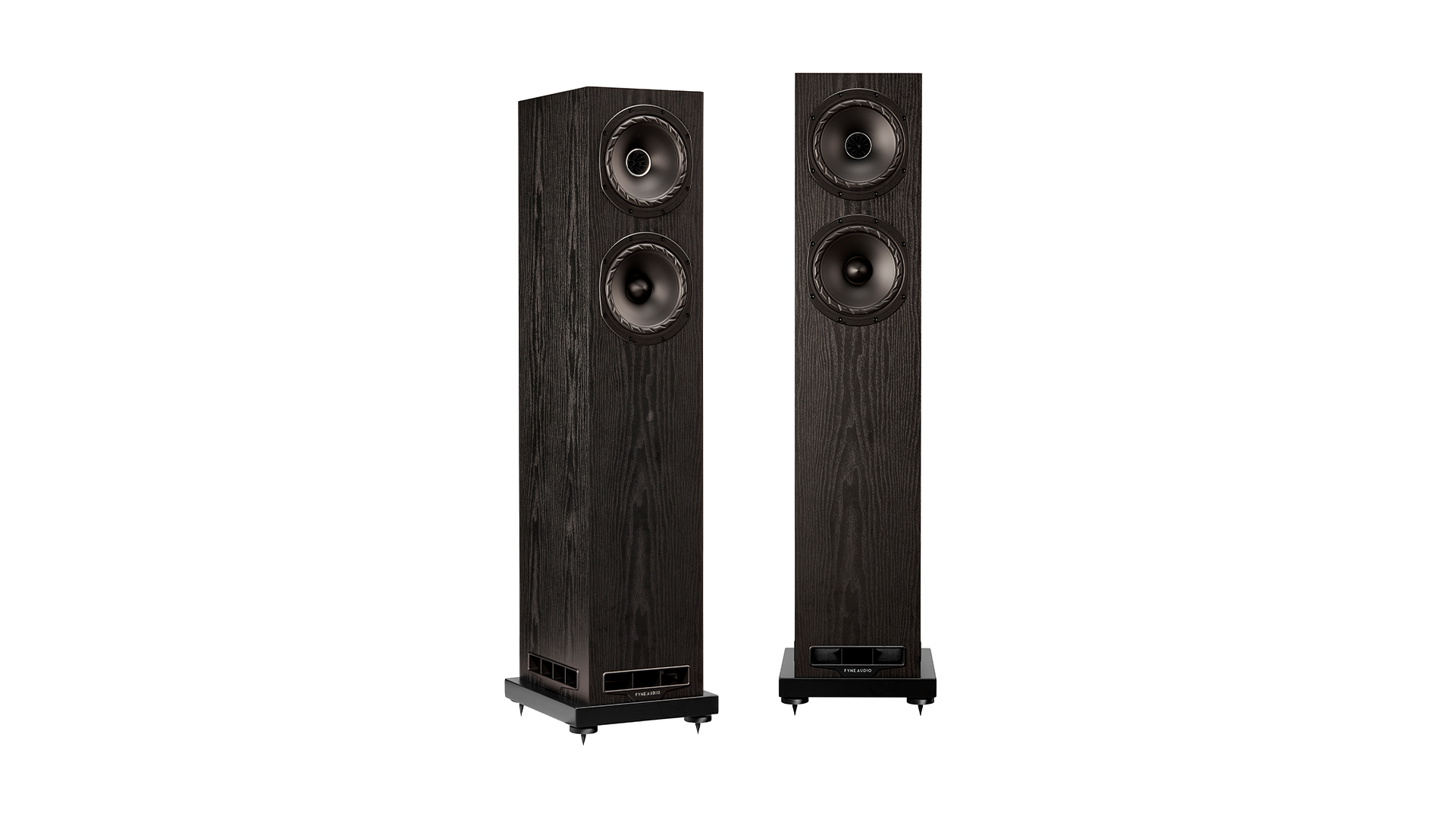
Specifications
Reasons to buy
Reasons to avoid
Fyne Audio's new entry-level floorstanders are aggressively priced. The 501E incorporate the brand's proprietary Isoflare driver technology that we've only seen in more premium models so far, and these floorstanders deliver a performance that outstrips their more established rivals at this midrange price.
To keep prices down, the brand has sacrificed visual cosmetics in exchange for ultimate performance, which means you can only get the 501E floorstanders in a single (and somewhat plain) black ash finish.
The build quality is solid, though, and the speakers are peppered with clever technology to ensure they are relatively unfussy with placement and partnering. The Isoflare arrangement delivers an integrated sound with a very even and wide dispersion.
The low frequencies are spread evenly thanks to a downward port design, vents and Basstrax technology, which disperses bass evenly across a 360-degree spread – allowing these towers to be less fussy about room placement.
The 501E are tremendously fun to listen to, with a fluid and expressive way with all music genres. Rhythm and dynamic shifts are handled with control and subtlety, with instruments and voices sounding natural.
The overall sound is crisp and clear, with a nicely balanced tonality – the top end is refined and doesn't get harsh or bright with challenging material, while the bass remains taut and tuneful while packing ample punch.
We said in our review that the F501 deliver a "forthright performance with vocals that captures nuances and subtle shifts in intensity superbly. The rival Q Acoustics 5050 sound a touch disinterested and mechanical in contrast."
These are wonderfully insightful and capable floorstanders, balancing sophistication with muscularity, being able to communicate intimate recordings as well as full-blown orchestral crescendos with conviction. For their asking price, we couldn't ask for better. We are entertained, and we think you will be too.
Read the full Fyne Audio F501E review
Also consider: The very musical PMC Prodigy 5 would be our choice for the next level up if you have more to spend, but they will set you back twice as much. For more options at this price level, the Award-winning Q Acoustics 5050 and 5040 offer an alternative sonic balance and more finish options.
How to choose the best speakers for your turntable
When it comes to choosing the right speakers for your turntable, you need to do your homework so you know what you are looking for. The vast majority of speakers will need to be partnered with a stereo amplifier that has a phono preamp (aka phono stage) built-in, so they'll work with your turntable. If your amplifier doesn't have a phono stage, you can always add an external one to your system.
Alternatively, your turntable might come with a phono stage built-in already, but you'll still need an amplifier in between the speakers and the deck.
You can also use powered or active speakers that have amplification built-in, but this still doesn't get around the need for a phono stage in the chain. If you're yet to buy your turntable, it's worth thinking about getting one with a phono stage built-in (although we still stand by our assessment that a purist turntable will always sound better). Also, make sure your active speakers have a volume control if you're going down this route.
If your deck has Bluetooth, though, you can wirelessly connect your record player to any Bluetooth speaker, be it a single unit or stereo pair. It's a convenient way to connect, for sure, but perhaps not the best in terms of pure sound quality. It's a trade-off of convenience versus sound quality – and only you can tell whether it's one you're happy to make.
Of course, it's always worth making sure you check your budget and ensure you're buying a speaker that matches the turntable at the right level. A cheap pair of speakers won't do justice to your turntable that's worth thousands, for instance, and it's always worth auditioning speakers, if you're able to, before making a final purchase.
FAQ
What’s the difference between passive and active speakers?
The speakers on our list above can be divided roughly into two categories: passive and active. The former require external amplification, while the latter have it built in.
Even with active speakers, though, you might not be able to just plug them directly into your turntable, which brings us to our next question…
Do I need speakers with a phono stage?
Whether it’s in the turntable, amp or speakers, you will need a phono stage in your system somewhere. Without one your turntable won’t produce a signal loud enough to be heard above a whisper.
The phono stage (sometimes referred to as a pre-amp) takes the output from your turntable and boosts it to a level that’s actually listenable, but what form it takes is largely up to you.
Having the phono stage built into your turntable or speakers means you can really streamline your system and save a lot of space, but using a dedicated one can also have an appreciable benefit to the turntable’s performance.
If that’s a route you decide to go down, make sure to check out our list of the best phono pre-amps before parting with any cash.
Why shouldn’t I just buy a turntable with built-in speakers?
It’s your money and you can do whatever you want with it (as long as it’s legal) but if you want our advice – and we think you do because you’re on our website – buying a turntable with built-in speakers is generally a bad idea.
These are products that prioritise convenience above all else, and in trying to cram so much into such a compact chassis sound quality tends to suffer. In some cases the vibrations produced by the built-in speakers can even cause the tonearm to rattle, which isn’t ideal for obvious reasons.
In the worst instances the tracking weight can also be unusually heavy, which means the cartridge puts undue pressure on your records and could lead to the needle damaging them in the long term.
They might look neat and tidy, and the vintage gramophone vibes are undeniably appealing, but these all-in-one systems tend to introduce too many compromises to deserve our endorsement.
Should I buy floorstanders or bookshelf speakers?
This is largely (if you’ll excuse the pun) a question of how big your space is.
Floorstanders are physically larger and require more room to breathe, so you need a pretty big room to make them a viable option, but sometimes the extra power and bass weight is just what you need to fill a room.
For a full breakdown of the differences between the two, try reading our standmounts vs floorstanders feature.
What are the best record players with built-in speakers?
While we recognise the convenience of an all-in-one record player, and acknowledge that some can be quite nice to look at, we haven't tested any that we recommend. It's a shame, and we're always happy to be proved wrong, but in our experience, the sound quality just isn't up to scratch – you're far better off with a dedicated record deck and separate speakers.
For a more in-depth look, check out the trouble with all-in-one turntables (and what to buy instead).
All-in-one record player vs separate turntable and speakers
As with all things hi-fi, separate devices are going to produce a better sound than an all-in-one system. That's because each distinct unit is dedicated to its task and that alone, meaning there are fewer compromises on materials, space and so on. Especially with turntables, we would always recommend buying separate speakers rather than built-in.
Are all-in-one record players with speakers good?
No. While convenient, they inevitably compromise the sound quality, either by cramming too much in or using poor quality components to keep the price down. Sometimes sound from the speakers can cause the tonearm to vibrate, and in some cases a heavy tracking weight can even damage your records. Avoid.
Are all-in-one record players bad for vinyl?
They can be. It's not always the case, but certain models put too much pressure on the cartridge, which could push the needle into the record and damage the vinyl.
Best budget record player with speakers under $200
We haven't tested every record player with built-in speakers (far from it!), but of those we have tested, we can't recommend any. If you only have this budget to work with, you would be better off buying one of the best budget turntables and then saving up again for some speakers, we're afraid.
How we test speakers for turntables
Here at What Hi-Fi? we review hundreds of products every year, including plenty of speakers of all shapes, sizes and types with a selection of our favourite turntables. So how do we come to our review verdicts? And why can you trust them?
The What Hi-Fi? team has more than 100 years experience of reviewing, testing and writing about consumer electronics. We have state-of-the-art testing facilities, where our team of expert reviewers do all our in-house testing. This gives us complete control over the testing process, ensuring consistency. We always ensure we spend plenty of time with the speakers and turntables, trying them with different electronics and with different music.
All products are tested in comparison with rival products in the same category, and all review verdicts are agreed upon by the team as a whole rather than a single reviewer, helping to ensure consistency and avoid individual subjectivity.
From all of our reviews, we choose the top products to feature in our Best Buys, such as this one. That's why if you take the plunge and buy one of the products recommended above, or on any of our other Best Buy pages, you can be confident you're getting a What Hi-Fi?-approved product.
You can read more about how we test and review products on What Hi-Fi? here.
Recent updates
- January 2026: Ruark MR1 Mk3 added as our new desktop recommendation; Acoustic Energy AE300 Mk2 added as our latest premium standmounts recommendation; Dali Kupid added as our budget standmounts recommendation.
- November 2025: Expanded FAQ section.
- May 2025: Added an FAQ section.
- March 2025: Added the Fyne Audio F501E as the new best premium floorstanders option, with the Q Acoustics 5040 remaining an also consider. Updated relevant product suggestions for entries.
- January 2025: Checked all information and products are correct.
- October 2024: Added 'also consider' alternatives for each product for even greater variety of options at each price/combination, and What Hi-Fi? 2024 Award winners have been labelled.
MORE:
See the best speakers to suit all budgets
Cut your spending with the best budget hi-fi speakers
Or cut the cables with the best wireless speakers
The latest hi-fi, home cinema and tech news, reviews, buying advice and deals, direct to your inbox.

Kashfia is the Hi-Fi and Audio Editor of What Hi-Fi? and first joined the brand 13 years ago. During her time in the consumer tech industry, she has reviewed hundreds of products (including speakers, amplifiers, turntables and headphones), been to countless trade shows across the world and fallen in love with hi-fi kit much bigger than her. In her spare time, Kash can be found tending to an ever-growing houseplant collection and shooing her cat away from spinning records.
- Tom Wiggins
- Alastair StevensonEditor in Chief
